










• Tamper evident
• Totally transferred void message
• Resists chemical and temperature attack
• Both label and surface show void
• Ultra-secure
• Unique subsurface numbers as standard
• Available from stock
• Customisation available
• Tamper evident
• High security
• No residue
• Unique subsurface numbers as standard
• Versatile and customisable
• Simple product range
• Available from stock
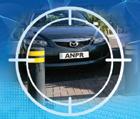
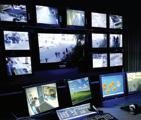



BY
226 High Rd, Loughton, Essex IG10 1ET. Tel: 020 8532 0055 Fax: 020 8532 0066
EDITOR Sofie Lidefjard
ASSISTANT EDITOR Angela Pisanu
PRODUCTION EDITOR Karl O’Sullivan
PRODUCTION ASSISTANT Jacqueline Grist
PRODUCTION CONTROL Reiss Malone
BUSINESS DEVELOPMENT Anthea Astley
SALES ADMINISTRATION Jackie Carnochan
ADMINISTRATION Charlotte Casey, Victoria Leftwich
PUBLISHER Sally Brockman
GROUP PUBLISHER Barry Doyle
REPRODUCTION & PRINT Argent Media
2010 Public Sector Information Limited. No part of this publication can be reproduced, stored in a retrieval system or transmitted in any form or by any other means (electronic, mechanical, photocopying, recording or otherwise) without the prior written permission of the publisher. Whilst every care has been taken to ensure the accuracy of the editorial content the publisher cannot be held responsible for errors or omissions. The views expressed are not necessarily those of the publisher. ISSN 1362 - 2541


THE THREAT OF TERRORIST ATTACKS remains a major concern for governments and private sector organisations worldwide. Counter Terror Business magazine is a specialist publication distributed to heads of security, intelligence officers, procurement officials and department heads in local and central government, to inform about the latest in counter terror intelligence, technology and human resources.
On page 7 we take a look at how public sector organisations can make sure they have the right security systems in place to protect them from a terrorist attack in these financially constrained times. Aviation expert Chris Yates discusses how a resurgence in Al-Qaeda terrorist attacks has promted governments on boths sides of the Atlantic to question their counter-terrorism strategies (p. 62). We also preview the most important security events this spring – Counter Terror Expo, BAPCO, Search & Rescue, and IFSEC.
Enjoy the issue.

How can public sector organisations make sure they have the right security systems in place to protect them from a terrorist attack in these financially constrained times?
Counter Terror Expo brings into focus the formidable and evolving threat of terrorism and addresses the most significant security issues facing the individuals and organisations charged with the prevention and protection against terrorist attacks
BAPCO 2010 focuses on current and emerging technologies in civil contingency response, business continuity, and communications and information management technology. The annual conference and exhibition returns to London in April
CCTV-based Video Content Analysis can detect suspicious activity at the earliest possible stage
Sofie Lidefjard, Editor editorial@psigroupltd.co.ukAshley Smith, the BSIA’s Civil Aviation Security Section Chairman, examines the various measures that are available to enhance an airport’s security system
Aviation expert Chris Yates discusses how a resurgence in Al-Qaeda terrorist attacks has promted governments on boths sides of the Atlantic to question their counter-terrorism strategies. The private security industry is playing an increasing role through its support of CONTEST, the government’s counter-terrorism strategy
67
Search and Rescue 2010 will provide the largest international gathering of SAR experts in Europe. The event will cover SAR and CSAR in the four environments – air, maritime, mountain and urban
69
IFSEC is the world’s leading global annual security event, uniting over 25,000 security professionals with more than 600 world-leading companies
72
Dave Allison, the British Security Industry Association’s Close Protection Section Chairman, examines the role of the CPO in protecting high profile figures
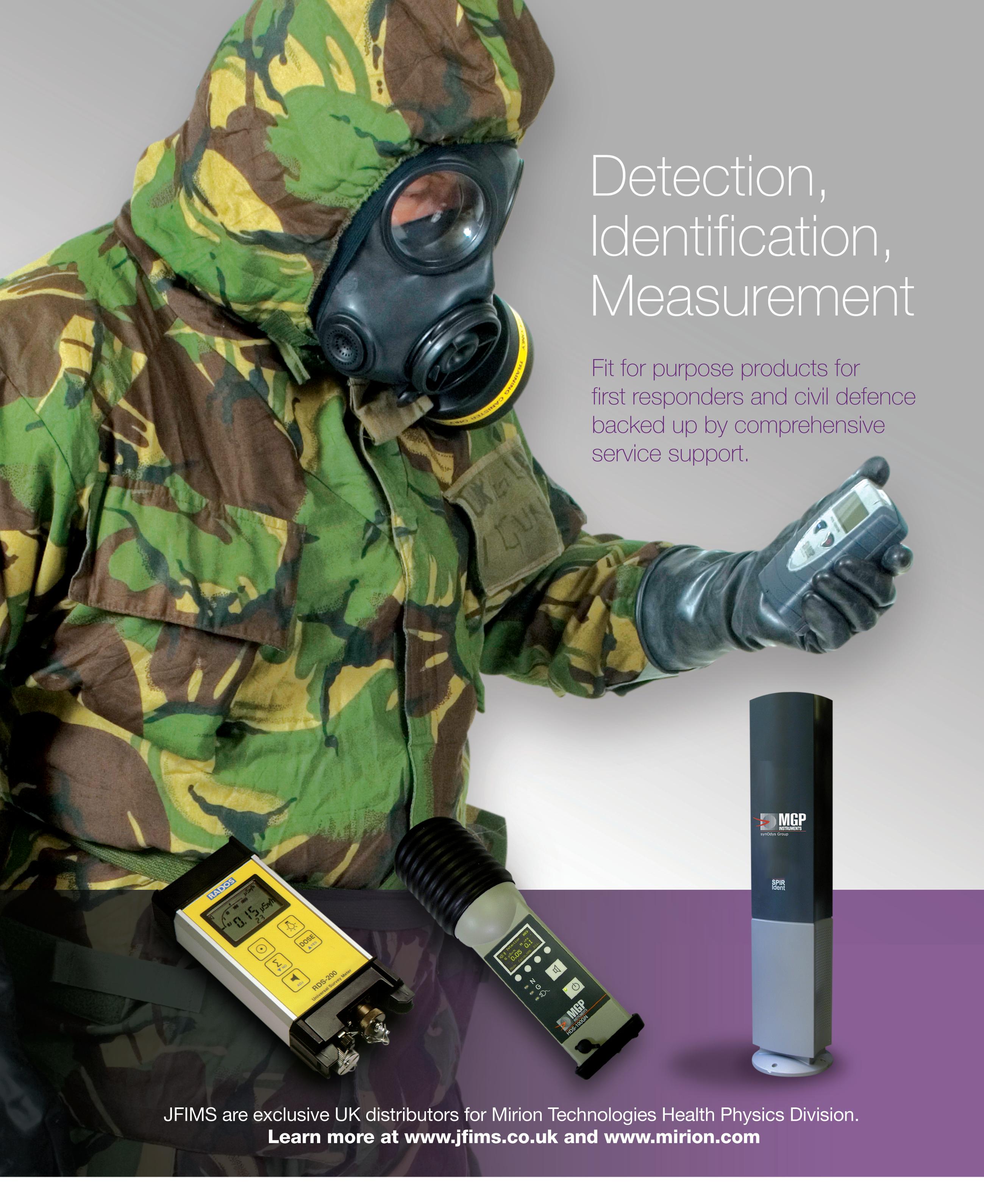

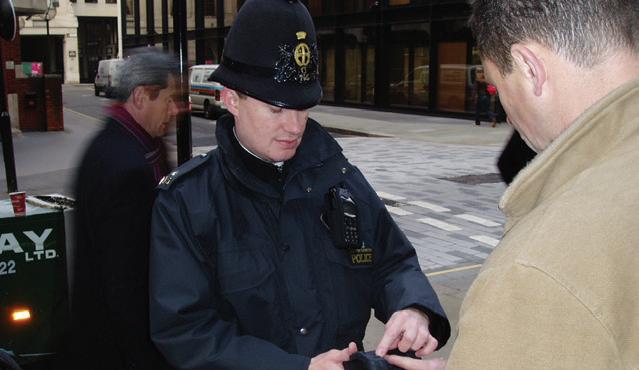
POLICE OFFICERS across the UK will soon be able to check an individual’s identity at the roadside within two minutes, following the introduction of a new mobile fingerprinting device later this year. The National Policing Improvement Agency (NPIA) has signed a contract with Cogent Systems to supply mobile fingerprint identification devices which will allow police officers to scan a person’s fingerprints while on the beat and check them against the national fingerprint database for verification.
The NPIA said the devices will help police to establish whether someone is on the database within two minutes. They electronically scan a suspect’s fingerprint, and send an encrypted wireless transmission to the database for a search. 330 devices have been trialled by 28 forces as part of the Lantern Pilot. Results show that the devices can save an average of 30 minutes, reduce the number of people taken to a police station to establish their identity, and help to identify unconscious of dead victims at a crime or accident scene.

AS PART OF THE £1BN Future Provision Marine Services contract, a brand new range of Marine Service vessels will be completed by the end of the year to support the Navy’s newest ships. Labelled the ‘tugs of the future’, the new fleet of 29 vessels is set to keep pace with the Royal Navy’s Type 45 destroyers and eventually the two new Queen Elizabeth Class aircraft carriers – which will be the largest the Service has ever built.
Half of the new service vessels will be based at Portsmouth where they will also replace the port’s ageing fleet of support vessels. Masters, mates and engineers are being trained up on how to pilot them. The intensive training sees the operators take part in simulator training, go on a tug-handling course, undergo command and control training with the Admiralty Pilots, as well as having practical lessons in the water.
The MOD has signed a £400 million contract to use a new satellite which will enhance military communications, the Minister for Defence Equipment and Support, Quentin Davies, has announced.
The Skynet 5D, which is the fourth satellite of its kind to be used by the MOD, is roughly three times the length of a double decker bus. It will launch in 2013 playing a key role in gathering intelligence on operations.
Royal Air Force Police dogs have received a special ‘Dogs in Action’ bravery award for their service in Iraq and Afghanistan at a ceremony held at the House of Lords this month.
The RAF Police dogs’ team of five personnel and three dogs was the only military or police unit to be recognised in the awards presented by the charity Wetnose Animal Aid. Since 1945, RAF Police dogs have been employed in the protection of RAF airfields and military assets, the recovery of evidence, public order, the detection of drugs, and on anti-terrorist operations.
The free-to-attend workshops at Counter Terror Expo provide a platform for visitors and delegates to learn about the latest specialist security and counter terrorism products. The CBRNE Detection & Protection workshop will take place Wednesday 14 April, and includes a morning session with Mr Collin Singer, managing director, WagTail UK, discussing specialist detection dogs, why use them and how they can help you, with case studies on explosive detection, drug detection and live body detection.

How can public sector organisations make sure they have the right security systems in place to protect them from a terrorist attack in these financially constrained times, asks Ian Johnson, the BSIA’s Security Consultancies Section Chairman
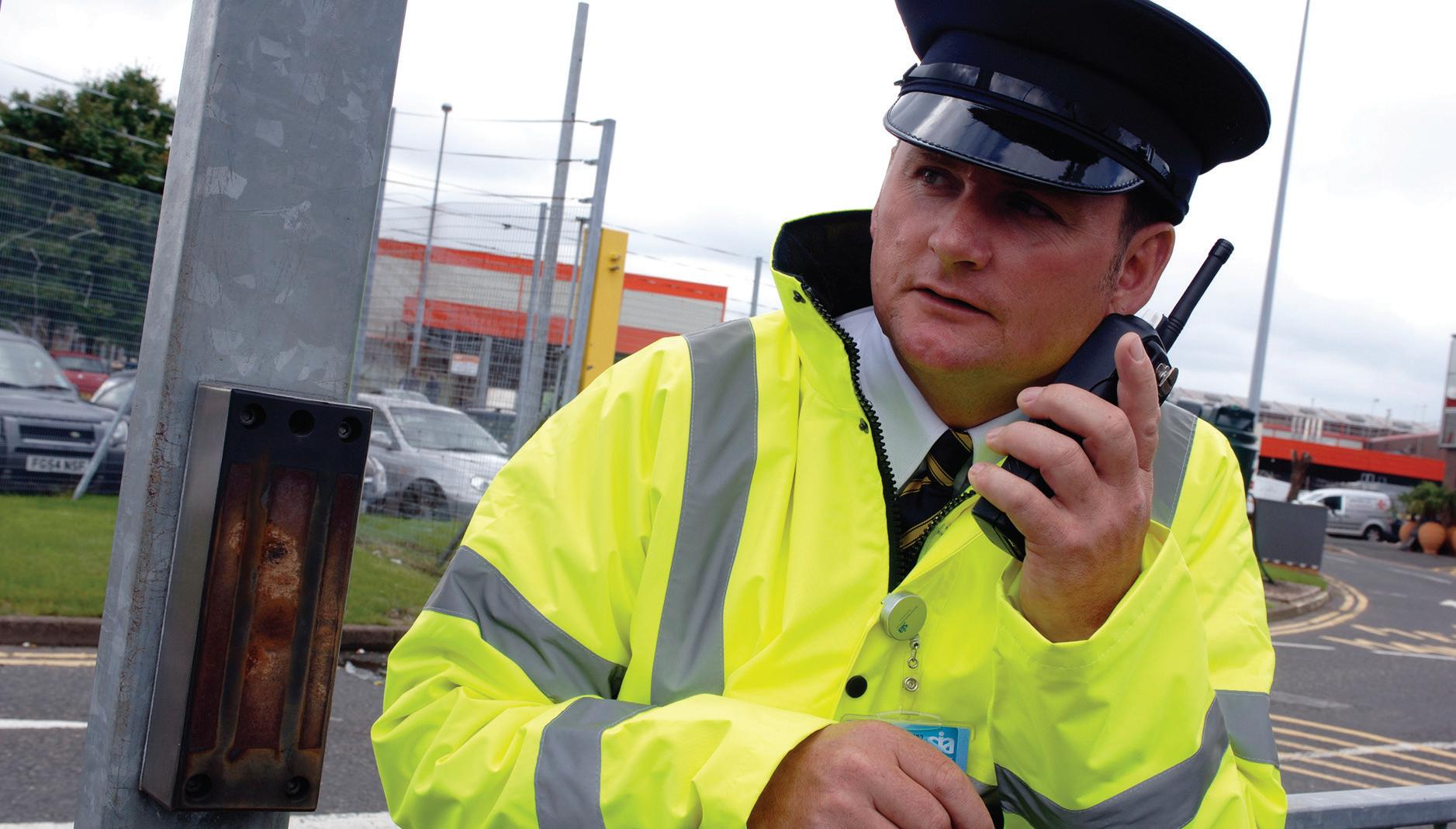
THE CURRENT CREDIT crunch has potentially significant security implications that organisations should be wary of. With everyone expected to contribute towards operational cost cutting, there is the danger that the protection of staff, premises and assets may be compromised. For example, regular reviews of security practices and procedures may suffer, allowing chinks in the armour to develop. In terms of countering possible terrorist action, it’s important to maintain high standards of security, both in terms of the equipment and systems used, as well as the way they are operated, maintained and monitored. Once installed, the natural assumption that systems remain effective can combine with the temptation to overlook or accommodate any shortcomings, leaving employees and buildings exposed to possible attack. So how can public sector organisations ‘square the circle’ in these financially constrained times? After all, staff with security responsibilities may find themselves more stretched and with a broader range of responsibilities during times of economic uncertainty. The possible additional use of more agency or temporary/contract workers creates issues surrounding continuity and consistency and may open the ‘back door’ to anyone intent on causing harm.
SECURITY AUDITS
To effectively guard against terrorist threats, regular audits and reviews should be an intrinsic part of daily security activities, yet the staff working within an organisation are not always best placed to carry this out. Their subjectivity may hinder
this – the syndrome of not being able to see the wood from the trees. Their other tasks/responsibilities might also mean they are insufficiently experienced about the most appropriate and effective technology, processes and related response procedures. Besides the serious risks posed to public sector staff by ineffectual security, other concerns include the financial, legal and insurance-related implications of a terrorism-related incident. For instance, the consequences range from the harm that can be caused to employees right through to the commercial disruption/losses incurred and the longer-term negative effects on staff morale/ turnover, compensation claims, impact on reputation, insurance premium increases and other operational problems that could close down the organisation altogether.
Compared with all these downsides, a security consultancy provides the costeffective reassurance of expert advice and an objective, unclouded view of the most appropriate solutions to implement. What’s more, restrictions on the depth and breadth of security expertise within both commercial and public organisations, following departmental restructuring, are another drawback that external consultancies can also remedy.
The first stage in any meaningful security review involves a thorough evaluation of the premises’ geographical location and site configuration, the nature of its activities, its existing security arrangements and related factors such as the organisation’s future operational requirements. For example, a tourist attraction might wish to entice significantly more visitors, which
will have an impact on risks and related procedures. As part of this whole process BSIA member security consultancies are keenly aware of the need to cost recommended courses of action in detail, as well as produce an analysis of the savings and tangible benefits they will provide. This information can then, in turn, be used to justify the investment by demonstrating its value in terms of ensuring business continuity and other gains, such as the enhanced efficiency of electronic systems.
The process of reviewing and strengthening external physical defences is an important element within the security audit but it should form one part of what needs to be a multi-pronged strategy. Static equipment such as perimeter fencing can be enhanced through the use of complementary electronic detection devices such as movement sensors, antihaulage barriers and x-ray equipment.
Helping to counter potential terroristrelated action, the security ‘envelope’ around an organisation’s staff, buildings, stock and other assets is best served by an integrated approach. An external security consultancy can help extract best value from these different, but related systems, allowing them to amount to more than the sum of their parts. Aside from physical and electronic protection is the equally important guarded response to any developing incidents. Technological capabilities enable potential intruders to be detected and identified at an early stage, but the capacity to intervene and intercept at an early stage is a fundamental aspect of reacting to any developing problem on-site. A BSIA security consultancy can analyse existing systems and guarding practices to see how better value could be achieved, for example by interfacing technology with manpower more effectively or by amalgamating several sites into one monitoring facility. A consultancy can also provide expert advice during a construction or refurbishment project to ensure security measures are designed in at this stage. The alternative, involving a piecemeal application of various protective solutions, compromises their effectiveness and exposes an organisation to legal challenges under health and safety legislation. With the UK’s threat level now at substantial and security remaining an important issue for British business, now is a good time to invest in a security consultancy. A BSIA member security consultancy service can reduce costs by protecting premises against terrorism and safeguarding staff using the most cost effective and appropriate combination of systems and manpower.
Web: www.bsia.co.uk
E-mail info@bsia.co.uk Tel: 0845 389 3889

Hawkmoor are recognised world-wide for their design of field catering equipment utilising highly efficient

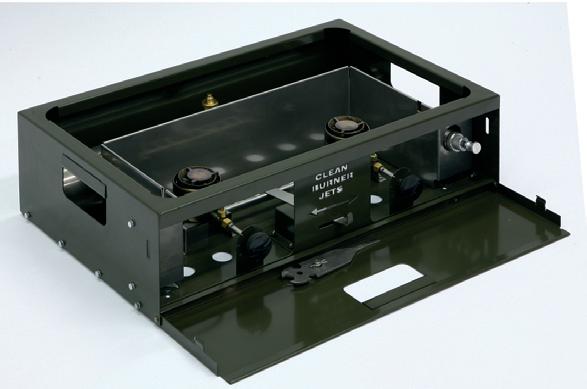
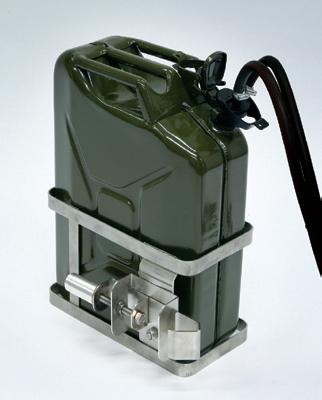
Hawkmoor continually strive to enhance their catering equipment range in order to meet the demands of changing operational environments.
Modules comprise hotplate, fan assisted temperature controlled oven and water auxiliary, heated by a single burner


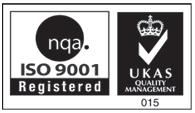


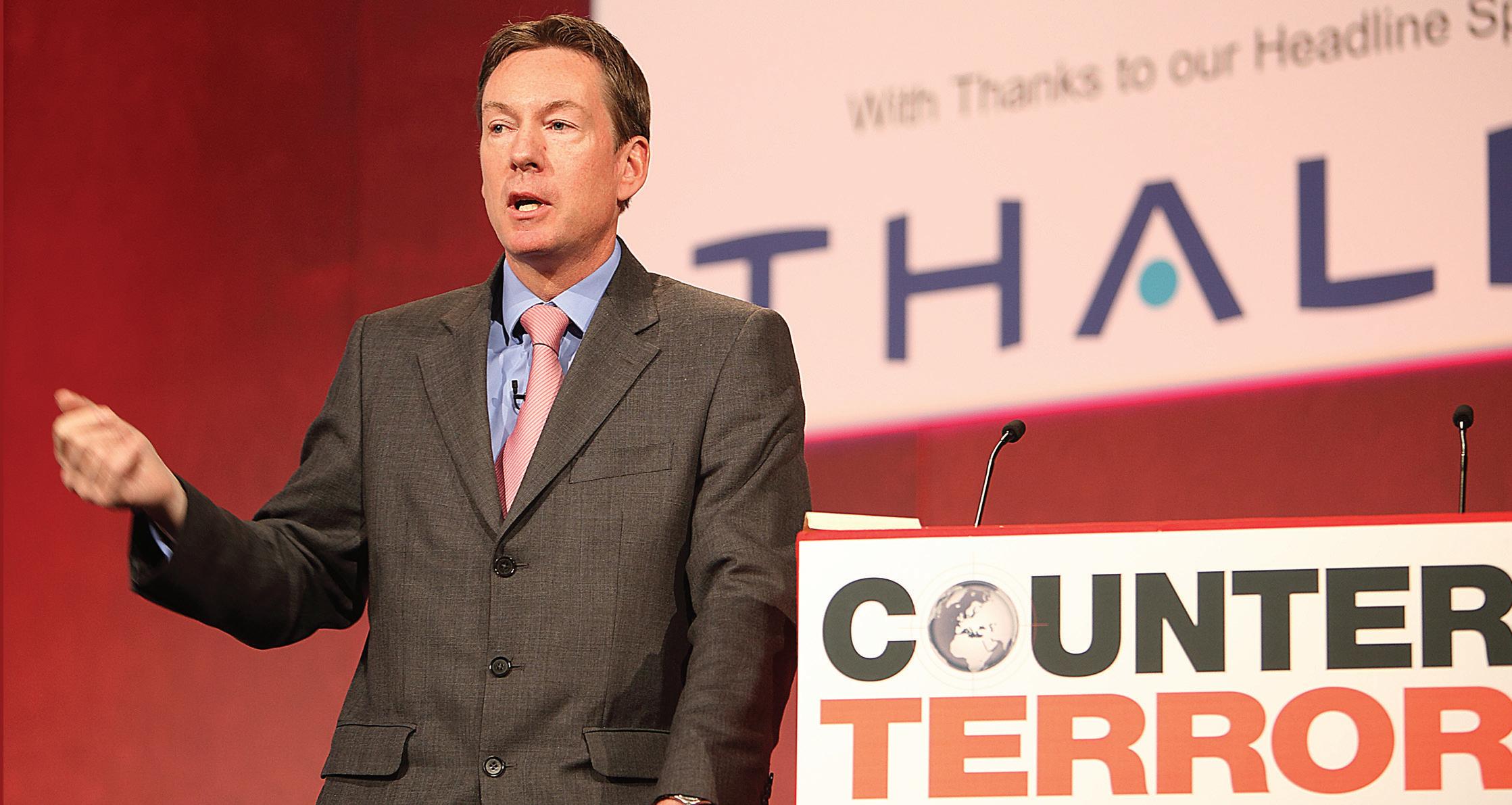
COUNTER TERROR EXPO is the only major international exhibition and conference of its kind to take place in the UK, dedicated to addressing the continuing worldwide threat from terrorism. The preeminent specialist event will take centre stage at London Olympia 14-15 April 2010.
The event, now in its second successful year, broke expected attendance figures by a factor of 50 per cent when in excess of 4,000 qualified personnel from government, military, law enforcement, intelligence and private sector organisations from the UK and overseas attended the 2009 edition at the Queen Elizabeth Centre in London.
Such was the success of the event, that the event was moved to Olympia, to accommodate the demand for exhibition space and to accommodate a much expanded conference and specialist workshop programme.
Counter Terror Expo brings together the world’s leading thinkers in the counter terrorism arena through the annual event. The event provides a platform for those tasked with turning strategy into meaningful deliverables from across the globe. The event seeks to foster much
closer ties between agencies tasked with preventing terrorist outrages and is actively supported by leading organisations such as: NATO, The Security Institute, Intellect, London First, National Counter Terrorism Security Office (NaCTSO) and Association of Chief Police Officer (ACPO).
The event comprises an extensive highlevel conference, multiple supporting specialist workshops and one of the biggest technology exhibitions of its kind in the world today. The secure exhibition seeks to showcase the latest specialist security technologies, products and solutions which form a crucial part of counter terror capabilities internationally. Leading companies involved in the exhibition include: Thales DLJ UK who are the headline sponsors, Rapiscan Systems, EADS, Lockheed Martin, Smiths Detection, Panasonic, Bosch, L-3 Security & Detection Systems, Bruker Daltonics, Zaun Fencing, RSDecon, Corus Bi-Steel, Allen Fencing, G4S Technology, Gunnebo, and many others.
Counter Terror Expo’s key component is a conference featuring over 90 leading international expert speakers who will discuss the most critical and topical issues
concerning the international counter terrorism community. Over two full days, the conference will debate how we should ensure a multilateral response to terrorism, tackle threat diversity, counter transnational terrorism, deliver critical national infrastructure and provide cutting edge security for high profile international events, amongst many other issues. Organisations speaking at the event include: United Nations, Australian Federal Police, NATO, European Commission, Home Office, European Union, Danish Security and Intelligence Service, Office of Cyber Security, Centre for the Protection of National Infrastructure (CPNI), Swedish Defence Research Agency, London First, London Fire Brigade, and Interagency Council for Applied Homeland Security Technology (ICAHST), The Pentagon and many more. Alongside the main conference, Counter Terror Expo will also feature a range of practical and technology focused free-toattend workshops. The workshops format will allow an in depth look at specific technologies being deployed in the counter terrorism arena. The technologies will be explored through a series of real life case studies to provide understanding on the equipment and its role in the fight against terror. Topics covered for 2010 include: CBRNE Detection and Protection, Building and Facilities Protection, CCTV and Surveillance, Perimeter Protection and Intrusion Detection, Personal Protection Equipment (PPE), EOD and IEDD, Information and Communication Systems, and Human Factors & Training. The event is being held just under 18 months after the Mumbai terrorist attacks and against the backdrop of London soon becoming the focus of world attention as it plays host to the upcoming Olympic Games. High profile sporting events and their


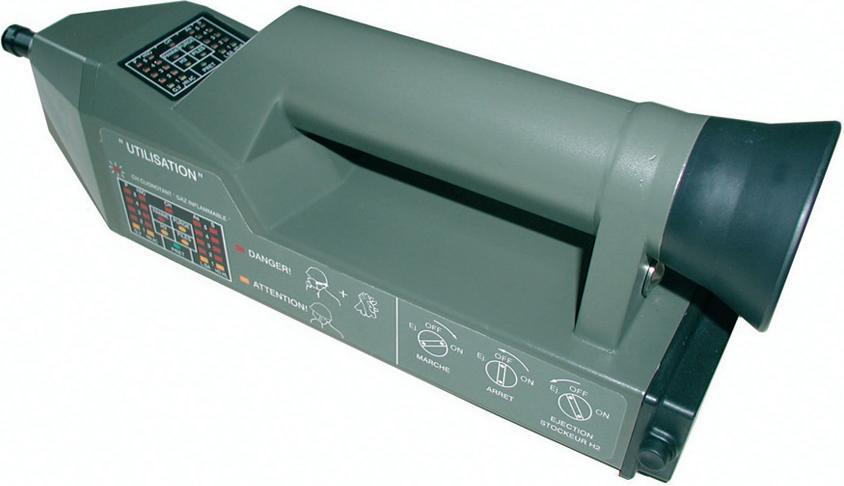

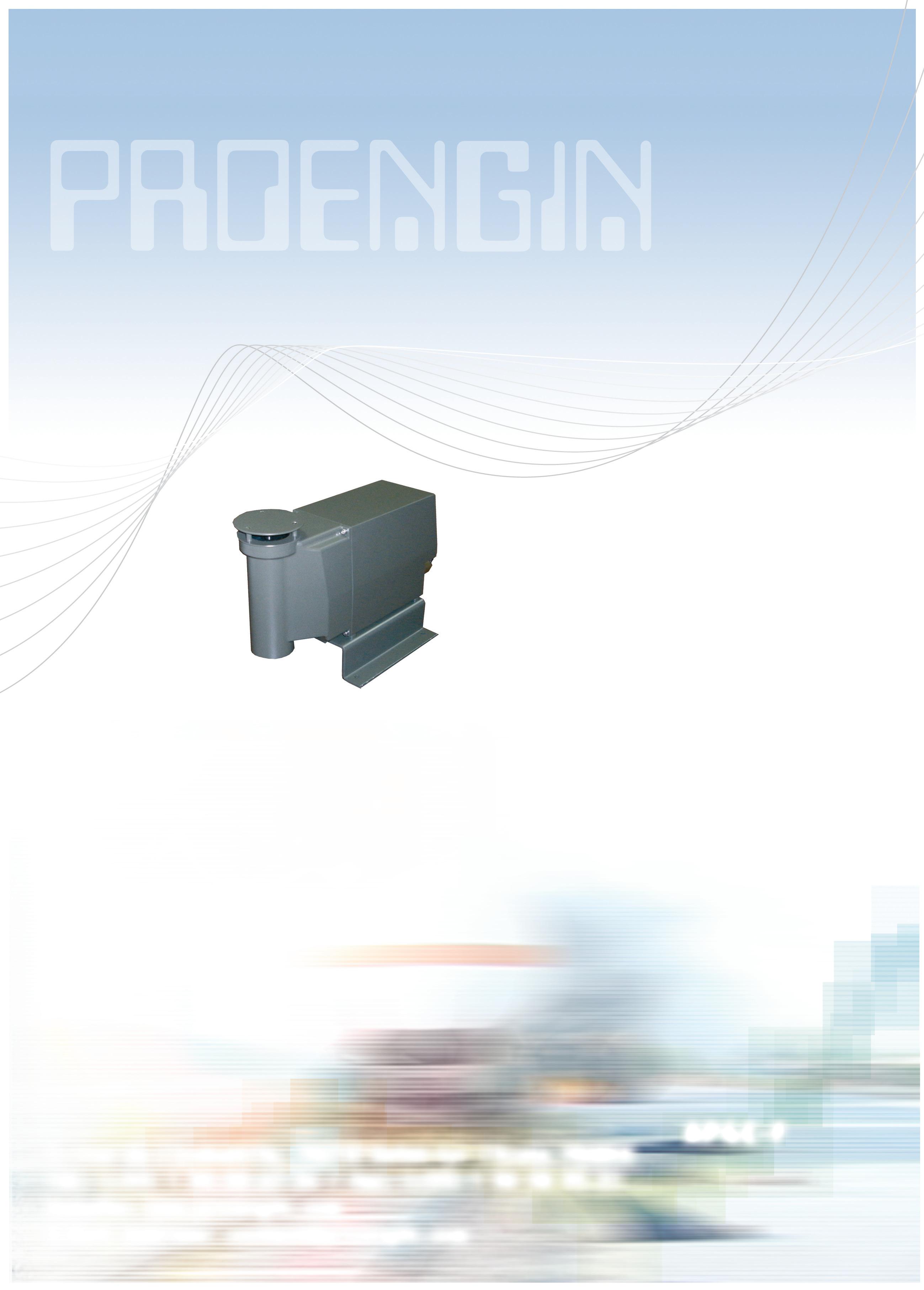




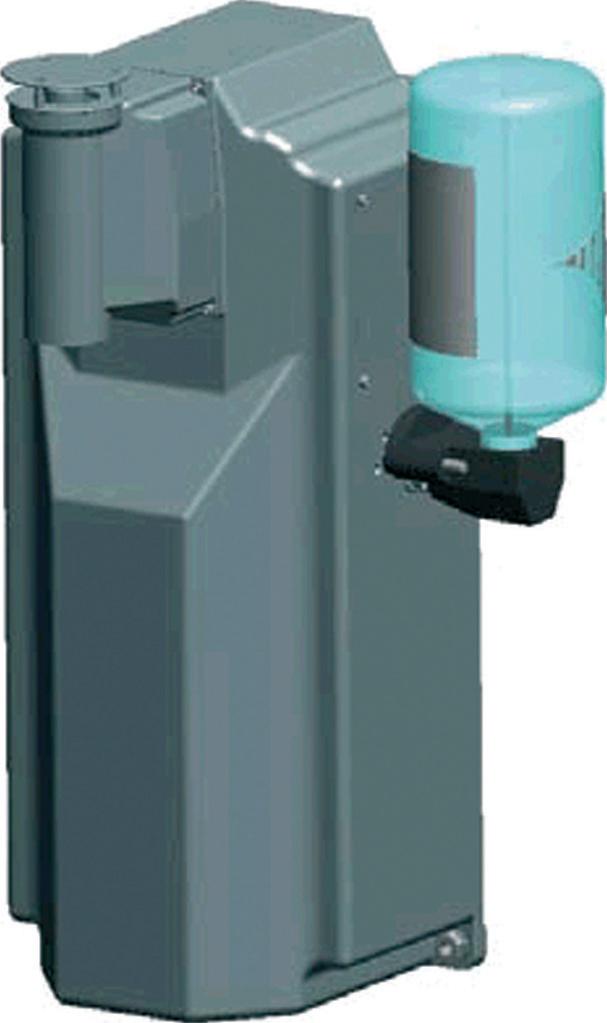


star performers like the Olympic Games represent a high value target and in the challenge to protect them from a terrorist atrocity, it is becoming increasingly evident that some countries are better equipped than others. The commando style terrorist attack against the visiting Sri Lankan cricket team in Lahore last year, served to emphasise what many in the counterterrorism and security fields have known for a long while; that in uncertain times the idea that the global and unifying nature of sport can be reflected in all the venues at which it is practiced no longer holds true.
The challenge of securing major sporting events is one that the major sports governing bodies such as the International Olympics Committee (IOC), Fédération Internationale de Football Association (FIFA), International Cricket Committee (ICC) and many others have to come to terms with as the risk of terrorist attack becomes increasingly acute. This challenge will be explored in-depth at the forthcoming Counter Terror Expo. The event brings the counter terrorism experts together with those tasked with the unenviable role of keeping sport safe, to debate the issues faced and help to identify best practice solutions to address current and future needs. Delegates with special responsibility and a professional interest in sports security will be immersed over the two days of Counter Terror Expo in the terrorist threat to crowded places, the implications for those tasked with ensuring a safe and secure environment, and the methodologies and techniques necessary to ensure sport remains safe.
Sporting events present some pretty big security challenges and not least because of the sheer number of spectators who attend them. The United Kingdom has long experience in staging safe and secure international sporting events. But the UK will soon face its ultimate challenge when it plays host to the 2012 Olympic Games. Lessons learned from the biggest security challenge in the sporting world, have clear application in the wider sports community.
The range of threats we face in the modern age is constantly changing and the countermeasures in place must therefore constantly evolve to effectively meet them. In recent years the threat of terrorism has increased considerably. High scale terrorist attacks such as 9/11 and 7/7, expose the rising power of terrorism and poses the question of how to deal with such extremist and fragile issues.
The attempted downing of Northwest Airlines (NWA) flight 253 as it approached Detroit Metro airport on Christmas Day 2009 exposed a fatal flaw in US intelligence gathering and dissemination, and renewed calls for greater levels of information sharing amongst agencies nationally and internationally.
The incident has particular resonance for speakers and delegates at the forthcoming Counter Terror Expo conference and exhibition, over two full days high level attendees will review issues such as intelligence sharing and greater cross border cooperation in the
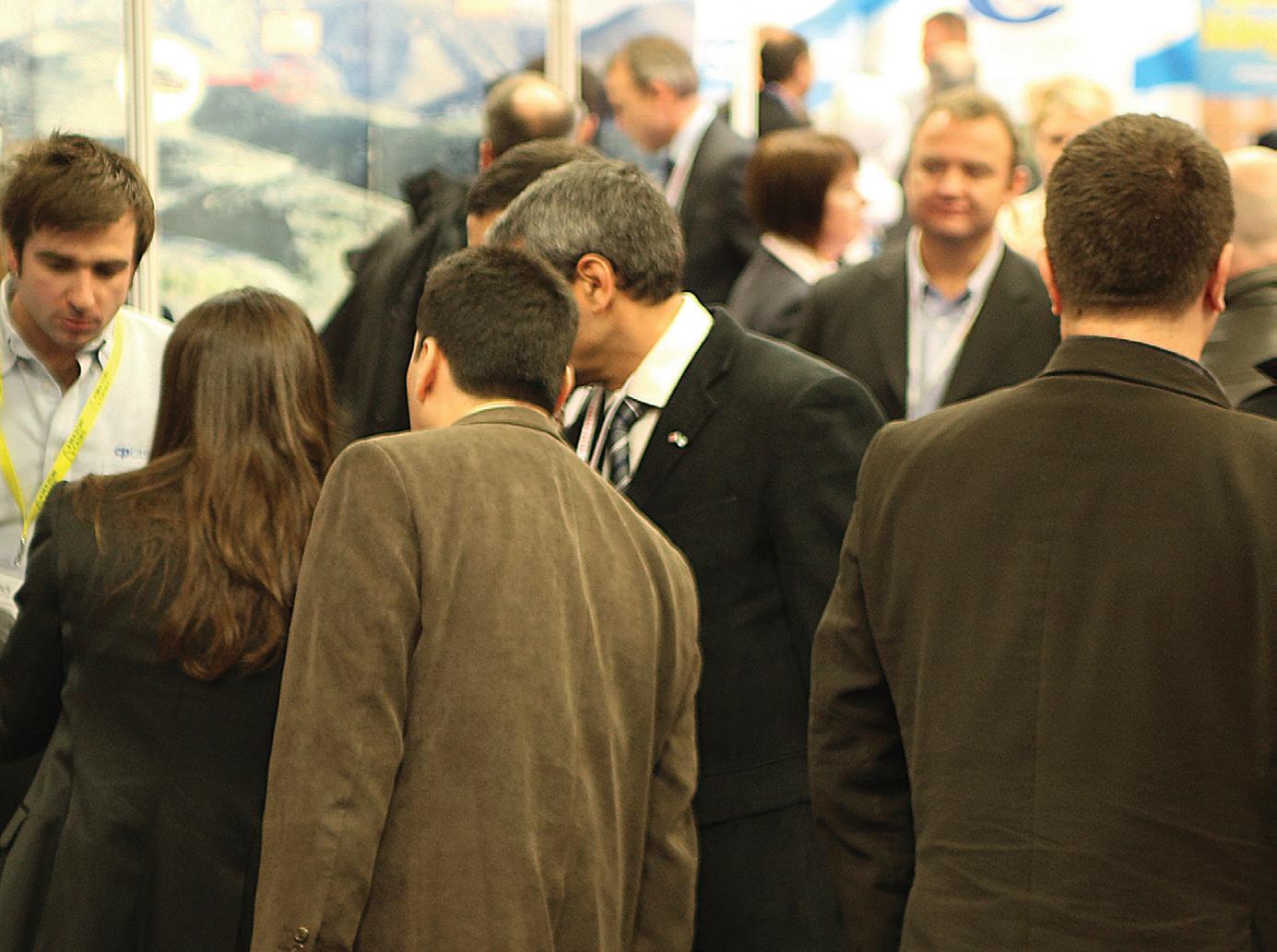
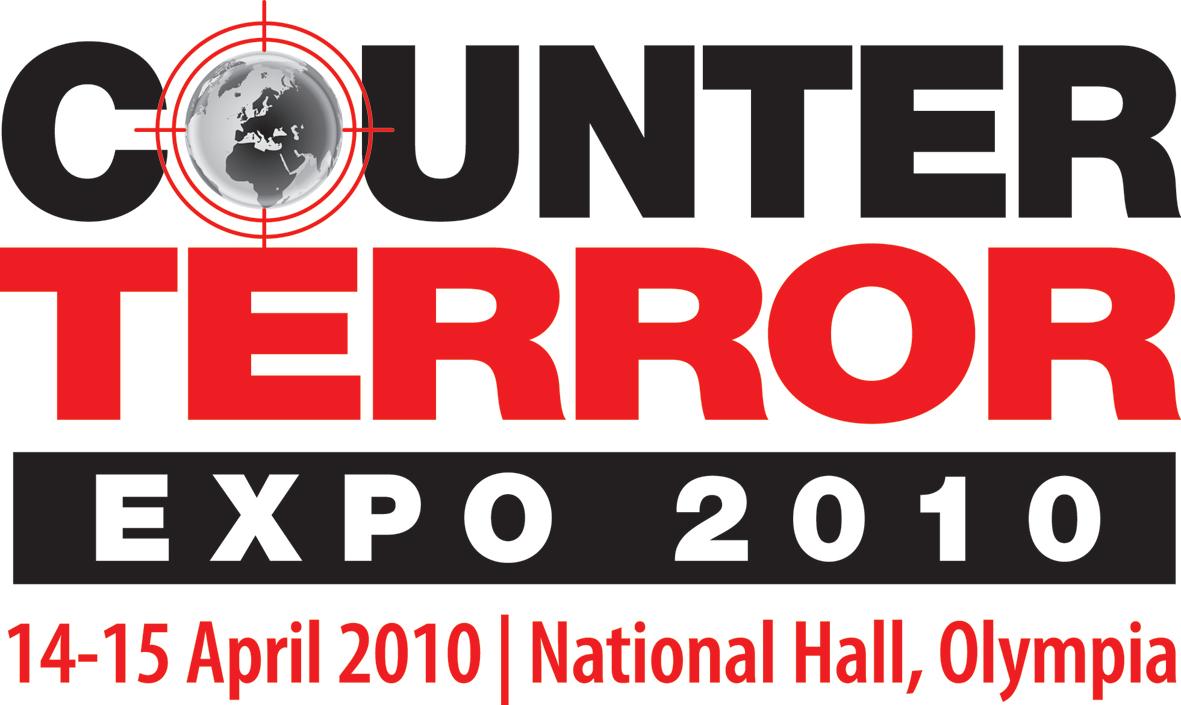
fight against international terrorism.
The Northwest Airlines (NWA) flight 253 incident is a text book example of how systemic failures and human factor issues conspired to allow a lone individual with direct links to al-Qaeda in the Arabian Peninsula to get far too close for comfort to achieving a goal of blowing up a passenger jet over a major United States city.
In light of this incident President Obama has ordered a full scale review of the incident in order to ensure it doesn’t happen in the foreseeable future. The lessons learned from this review will doubtless filter down and be subjected to peer review at this globally significant Counter Terror Expo event.
Principal conference themes with particular importance in light of current events include Building Cooperation across Europe and Internationally to Combat Terrorism in the Current Climate; Cooperative Counter Terror Strategies with South East Asian Countries; Facilitating Transatlantic Action in Response to Terrorism; and The Role of the United States in Countering the Changing Face of
International Terrorism amongst others.
Today the threat from terrorism is a global one which demands global, inter regional and domestic solutions working in harmony to protect our citizens. By drawing together knowledge and expertise from in and around the world, Counter Terror Expo seeks to provide viable solutions to effectively safeguard the public with a goal not only to prevent terrorism but ultimately defeat it: “We are delighted at the unprecedented interest in and demand for this mission critical event and Counter Terror Expo 2010 is set to become the biggest and most talked about event of its kind,” comments Peter Jones, managing director, Niche Events.
Counter Terror Expo 2010 will be held on the 14-15 April at Olympia in London. Further information on the event can be found by visiting www.counterterrorexpo.com or by contacting Nicola Greenaway, operations director, +44 (0)20 8542 9090 or e-mail: ngreenaway@niche-events.com
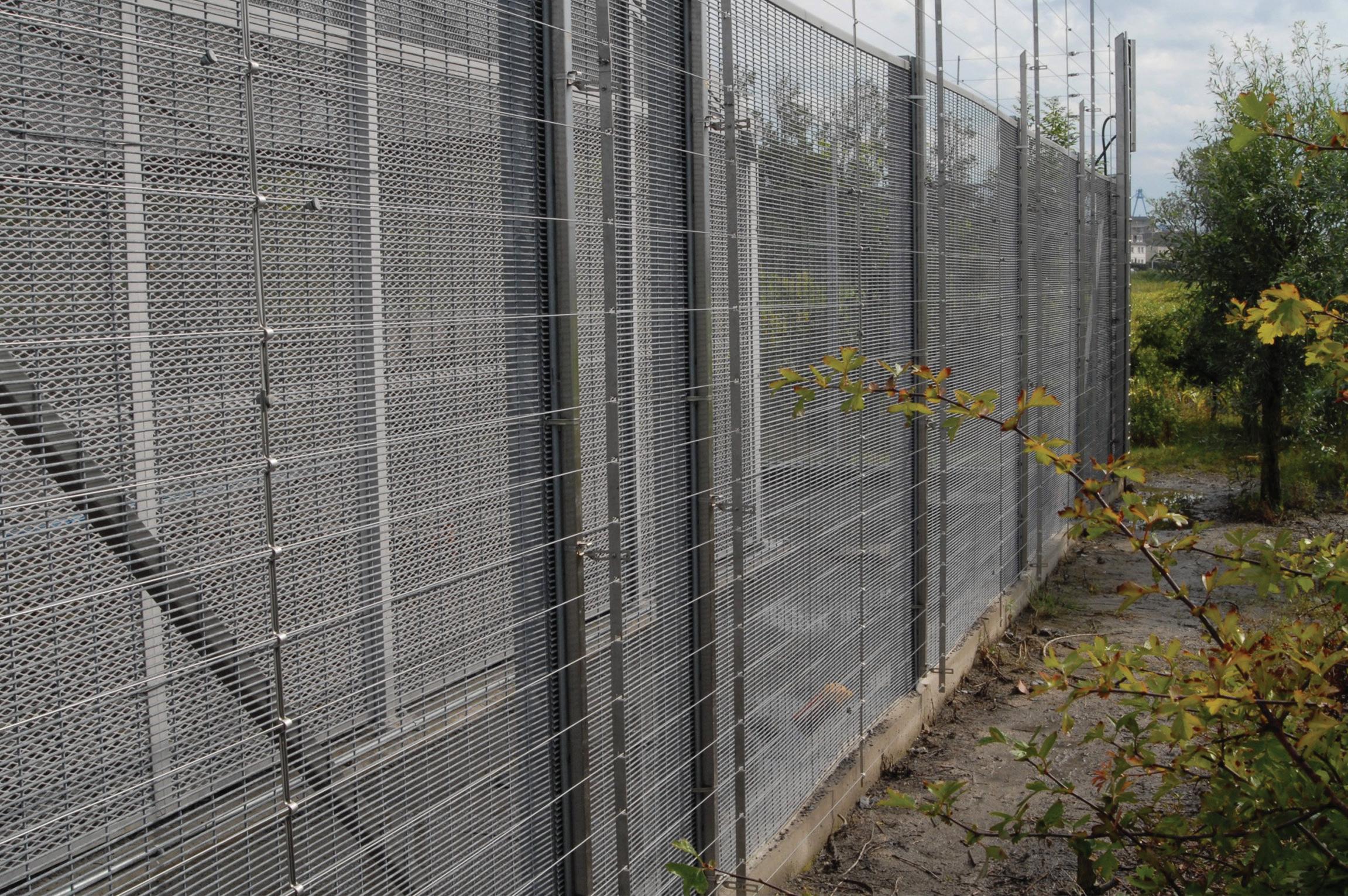


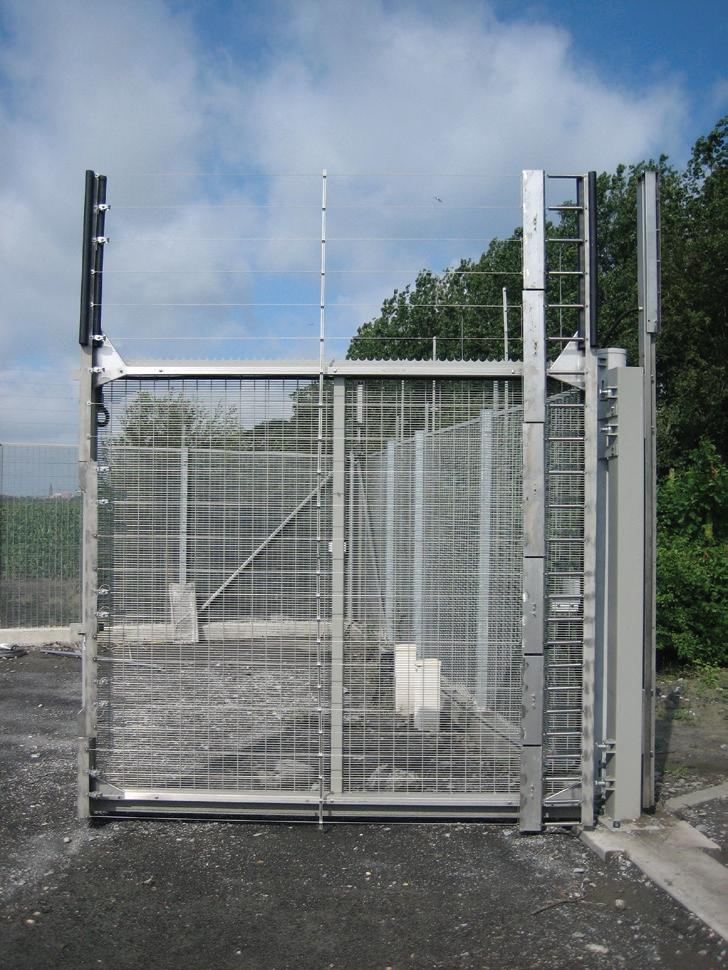
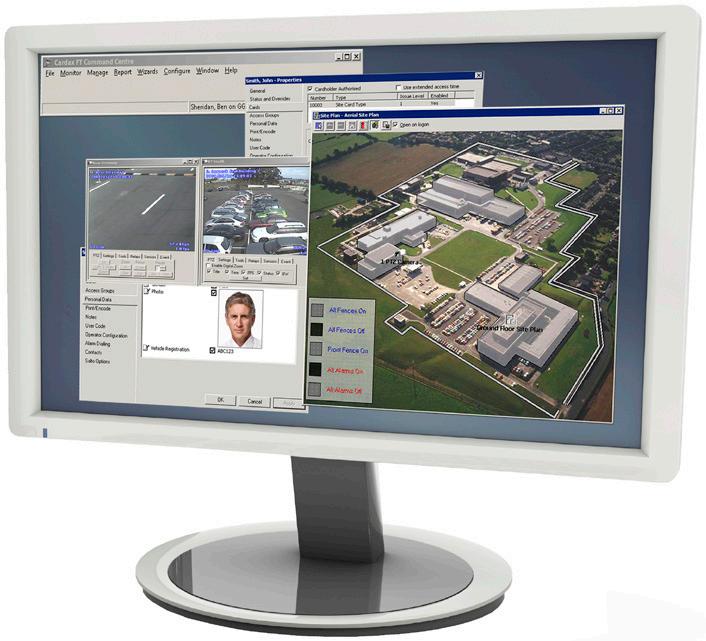

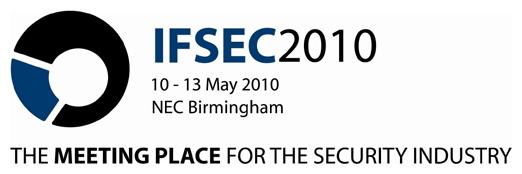



Samsung digital video recorders are designed to provide stunning real-time recording and playback quality up to D1 resolution to ensure that you never miss a thing. What’s more, with Samsung’s remote viewing software, users are able to view, control and administer their system from any PC, anywhere in the world.
From 4 to 32 channels you can be assured there is a suitable model for your next application. With up to 8TB internal storage and up to 24TB storage using Samsung expansion units and with features such as quick hard disk upgrade capability, Samsung video recorders are designed to economically expand with your system. All Samsung DVRs are provided with a three-year warranty for complete peace of mind.
Seeing is believing. Why not contact us today to arrange a demonstration?



DAY 1 WEDNESDAY 14TH APRIL 2010
08:40 – 08:45
HEADLINE SPONSORS WELCOME
Greg Roberts, Managing Director, National Security Resilience, Thales DLJ UK
08:45 – 09:00
CHAIRMAN’S MORNING WELCOME & OPENING REMARKS
Margaret Gilmore, Writer & Broadcaster, Senior Research Fellow RUSI and former BBC Senior Home Affairs Correspondent
ENSURING A MULTILATERAL RESPONSE TO TERRORISM
09:00 – 09:30
PEACE AND SECURITY
– A PRIORITY FOR ACTION
Jean-Paul Laborde, Chair of the Counter Terrorism Implementation Task Force (CTITF), United Nations
09:30 – 10:00
BUILDING COOPERATION ACROSS EUROPE AND INTERNATIONALLY TO COMBAT TERRORISM IN THE CURRENT CLIMATE
Senior Representative, EU CounterTerrorism, Council of the European Union
10:00 – 10:30
COOPERATIVE COUNTER TERROR STRATEGIES WITH SOUTH EAST ASIAN COUNTRIES
Peter Drennan, APM, Assistant Commissioner Counter Terrorism, Australian Federal police
11:00 – 11:30
FACILITATING TRANSATLANTIC ACTION IN RESPONSE TO TERRORISM
Richard Froh, Deputy Assistant Secretary General for Armaments, IS-DI, NATO
11:30 – 12:00
THE ROLE OF THE UNITED STATES IN COUNTERING THE CHANGING OF FACE OF INTERNATIONAL TERRORISM
Ambassador-at-Large Dell Dailey (Lieutenant General, USA, ret) and formerly the Department of State’s Coordinator for Counterterrorism
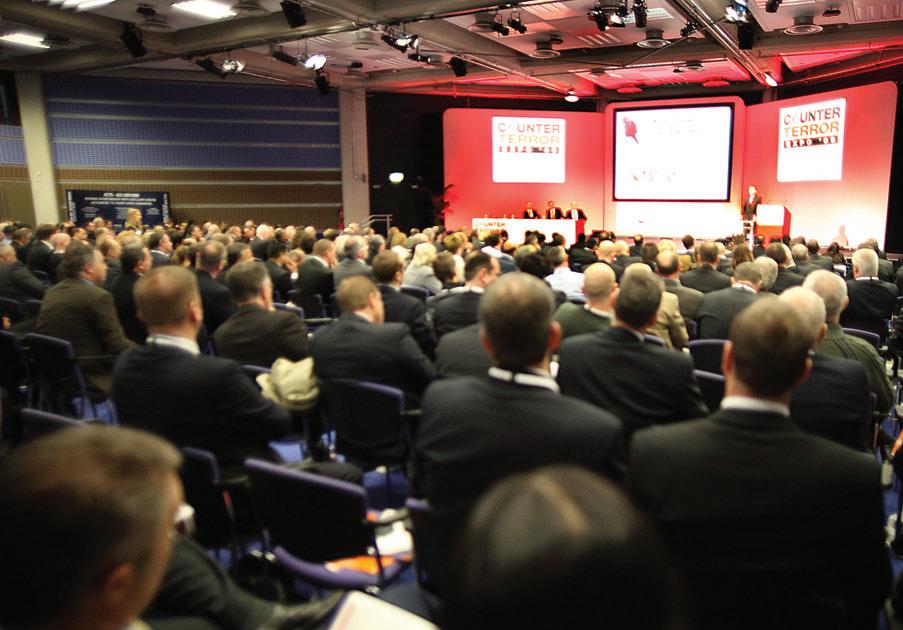
12:00 – 12:30
ACHIEVING NATIONAL SECURITY IN THE CONTEXT OF CURRENT TERRORIST ACTIVITY
Lord Carlile of Berriew QC, Independent Reviewer of Terrorism Legislation; Bencher, Gray’s Inn, London; Deputy High Court Judge and Chairman of the Competition Appeal Tribunal, UK; Fellow, King’s College London
TACKLING THREAT DIVERSITY
14:00 – 14:25
CHALLENGING DOMESTIC EXTREMISM & POLITICAL VIOLENCE
John Yates QPM, Assistant Commissioner, Specialist Operations, Metropolitan Police & Head: Terrorism & Allied Matters, ACPO
14:25 – 14:50
RADICALISATION – A NEW SECURITY DILEMMA FOR EUROPE?
Lorenzo Vidino, Research Fellow-Initiative on Religion in International Affairs/ International Security Program, Belfar Center for Science and International Affairs, John F. Kennedy School of Government, Harvard University & Peace Scholar, United States Institute of Peace.
14:50 – 15:15
THREAT DIVERSITY – AN URGENT POLITICAL PROBLEM FOR MODERN SOCIETY
Professor Richard English, Professor of Politics, Queens University, Belfast and Author of Terrorism: How to Respond (2009)
15:15 – 15:40
PANEL DEBATE
All Speakers
THE ROLE OF BUSINESS IN COUNTERING THE TERRORIST THREAT
16:00 – 16:20
A GLOBAL THREAT ASSESSMENT
Sir David Veness, Chairman of the London First Security & Policing Advisory Board and Former Under-Secretary-General for Safety and Security, United Nations
PANEL SESSION
Chairman: Sir David Veness
16:20 – 16:40
HAS BUSINESS LEARNED THE LESSONS OF 9/11?
Emily Landis Walker, Member of the Private Sector Advisory Council, US DHS and London First Security & Policing Advisory Board Member
16:40 – 17:00
MUMBAI – AN ATTACK ON ‘NEW INDIA’ – HOW BUSINESS RESPONDED Hagai Segal, Counter Terror Analyst, Lecturer New York University in London and London First Security & Policing Advisory Board Member
17:00 – 17:20
BUSINESS AND THE POLICE –A VITAL ALLIANCE
Peter Clarke, former Assistant Commissioner and Head of the Counter Terror Command, MPS
17:20 – 17:40
PANEL DISCUSSION
All Speakers
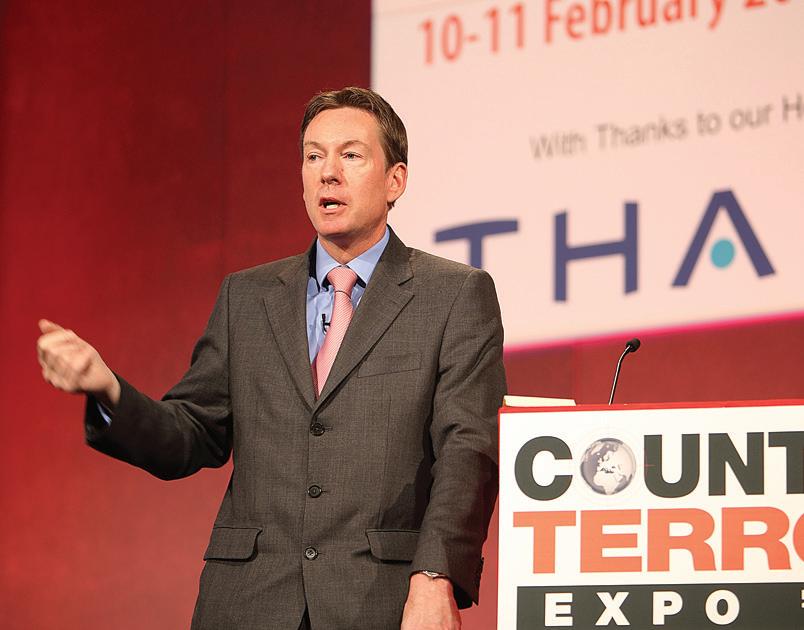
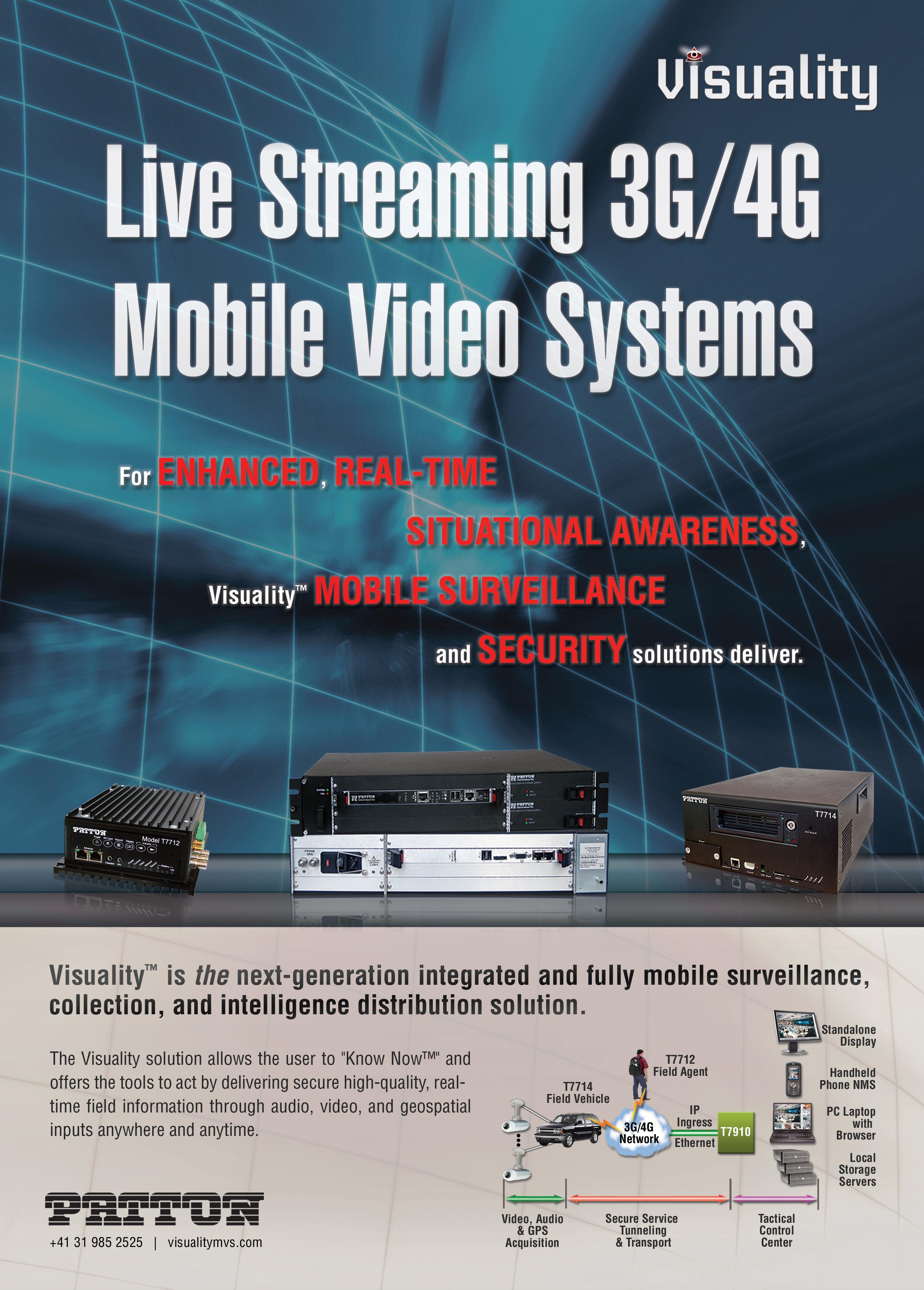

DAY 1 WEDNESDAY 14TH APRIL 2010
08:45 – 9:00
CHAIRMAN’S MORNING WELCOME & OPENING REMARKS
Professor Paul Wilkinson, Emeritus Professor of International Relations and Chairman of the Advisory board of the Centre for the Study of Terrorism and Political Violence (CSTPV) University of St Andrews
COUNTER TERRORISM IN THE CURRENT CLIMATE
09:00 – 09:15
THE THREAT IN CONTEXT
Justin Crump, Head of Terrorism and Country Risk, Stirling International Group
09:15 – 09:35
AFFORDING & IMPLEMENTING ANTI TERRORISM MEASURES
Chris Tomlinson, Principal Consultant, Security and Risk Consulting, Arup
09:35 – 09:55
IMPACT OF ECONOMIC CONDITIONS ON SECURITY SUPPLIERS AND THE UK COUNTER TERROR EFFECT
Hugo Rosemont, Policy Advisor – Security, A/D/S and Secretary to the UK Security and Resilience Industry Suppliers’ Community (RISC) International Group
09:55 – 10:15
BUILDING CAPACITY TO PREVENT AND ADDRESS 21ST CENTURY CRIME AND TERRORISM
Arvinder Sambei, Director & Barrister, Amicus Legal Consultants Ltd, former Head of Criminal Law at the Commonwealth Secretariat and co-author of ‘CounterTerrorism Law & Practice’, 2009
10:15 – 10:40
PANEL DISCUSSION All Speakers
THE WORLD AT RISK –COUNTERING CBRNE THREATS
11:00 – 11:10
CHAIRMAN’S INTRODUCTION
Chief Superintendent Andrew Sigsworth, Head of Centre, Police
National CBRN Centre Inspector
Adie Costello Staff Inspector
11:10 – 11:30
COUNTERING BIOLOGICAL AND NUCLEAR TERRORISM
Professor Paul Rogers, Professor of Peace Studies – Bradford Disarmament Research Centre, The School of Social & International Studies, University of Bradford
11:30 – 11:50
BIOTERRORISM – A WEAPON OF MASS DESTRUCTION
Richard Lennane, Head – BWC Implementation Support Unit, UN Office for Disarmament Affairs
11:50 – 12:10
MANAGING CHEMICALS OF SECURITY CONCERN – A GOVERNMENT/ BUSINESS PARTNERSHIP
Alex Webling, Branch Head – Protective Security Policy, National Security Resilience Policy Division, Australian Attorney General’s Office
12:10 – 12:30
DETECTING, RESPONDING TO AND RECOVERING FROM CBRNE EVENTS
Deputy Assistant Commissioner Bernie Higgins, Head of Special Operations Group, London Fire Brigade
THE ROLE OF TECHNOLOGY IN COMBATING TERRORISM
14:00 – 14:20
THE UK’S SCIENCE AND TECHNOLOGY STRATEGY FOR COUNTERING INTERNATIONAL TERRORISM
Professor Adam Ogilvie-Smith, Deputy Director, CONTEST Science and Technology, Office for Security and Counter Terrorism, Home Office
14:20 – 14:40
ADVANCED INFORMATION
TECHNOLOGIES TO INFORM AND ADVANCE COUNTER TERRORISM
Frederick Thomas Martin, Executive Agent, Interagency Council for Applied Homeland Security Technology (ICAHST)
14:40 – 15:00
DETECTING BOMBS AT A DISTANCE – THE LOCALISATION OF THREAT SUBSTANCES IN URBAN SOCIETY (LOTUS) PROJECT
Dr. Sara Wallin, Coordinator – LOTUS Project, Department of Energetic Materials, FOI, Swedish Defence Research Agency
15:00 – 15:20
TECHNOLOGY INNOVATION IN AVIATION SECURITY
Dominique R. Antonini, Aviation Security Officer, Geneva International Airport, Consulting Engineer & Director, AVS&C
SA and former Chief AVSEC, International Civil Aviation Organization (ICAO)
15:20 – 15:40
PANEL DISCUSSION
CYBERSPACE AND NATIONAL SECURITY
16:00 – 16:20
EXPLOITING THE INTERNET – THE MOST IMMINENT GLOBAL CHALLENGE FROM TERRORISTS AND EXTREMISTS?
Raphael F. Perl, Head Action against Terrorism Unit, Organization for Security and Co-operation in Europe (OSCE)
16:20 – 16:40
ENHANCING THE GLOBAL COMMUNITY’S CAPACITY TO PREVENT, DEFEND AND RESPOND TO CYBER-TERRORISM
Philip Victor, Acting Director – Training, Skills Development & Outreach, Centre for Training & Skills Development, International Multilateral Partnership Against Cyber Threats (IMPACT)
16:40 – 17:00
SECURING THE UK’S POSITION IN CYBERSPACE
Air Commodore Graham Wright CBE, Deputy Director, Office of Cyber Security, Cabinet Office
17:00 – 17:20
CYBER CRIME AND TERRORISM – OUR DEPENDENCE ON, AND VULNERABILITY TO, GLOBAL CONNECTIVITY
Richard Nethercott, Global Managing Director of Security, Logica
17:20 – 17:40
PANEL DISCUSSION All Speakers
For expert and informed discussion on how to face your CBRN threat contact:
UK Tel: +44 (0)845 241 2990
Email: frontline@remploy.co.uk
USA Tel: +1 703 647 7404
Email: frontline@remploy.com
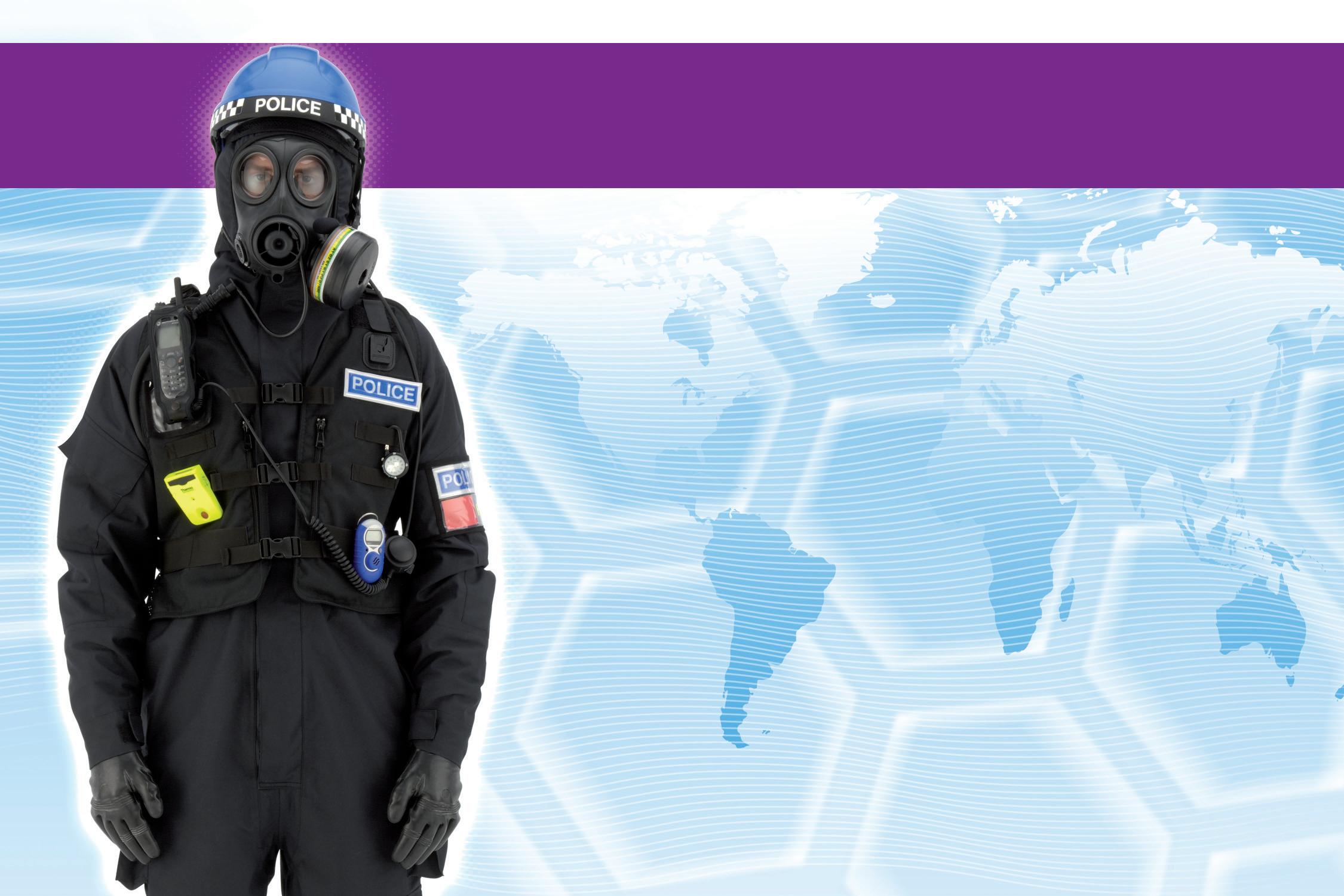
‘Dons
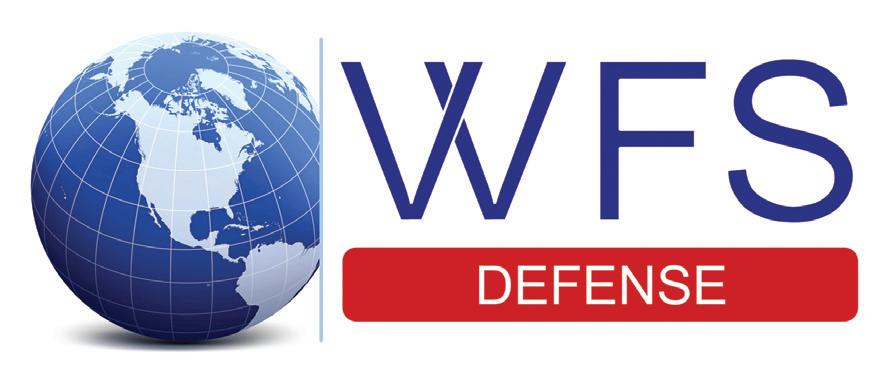
WFS is the world’s leading developer of through-water and through-ground electromagnetic (EM) communications and sensing products. With over 70 patent applications filed in Europe and North America, our revolutionary products deliver cost savings and new capabilities to the Homeland Security & Defence and Oil & Gas and Environmental Industries.
The technology is revolutionising command & control and communications in underground and underwater environments. WFS radio modems will pass through concrete, rock, mud, earth and hitherto impenetrable materials; into the air to provide secure communications. This removes the need for impractical cabled solutions and enables such applications as emergency communications in underground public transport networks, and extended command and control of Unmanned Underground Vehicles.
Underwater Radio Frequency (RF) technology has the distinct advantage that it will operate in adverse water conditions, is unaffected by acoustic noise and will support data transmission across the water/air boundaries; penetrating the surf zone, ice and harbour walls.
Tel: 0845 862 1589 Fax: 0845 862 6601
E-mail: vince.dobbin@wfsdefense.com Web: www.wfsdefense.com
World leaders in through-water & through-ground communication, sensing & navigation technology
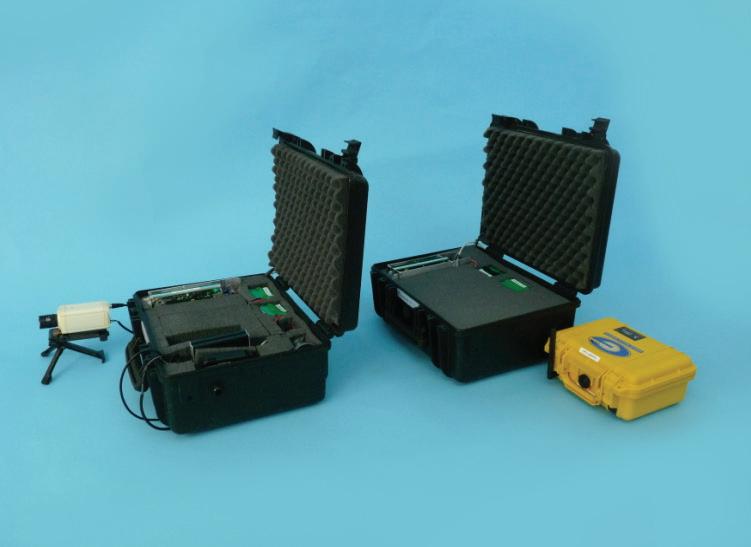
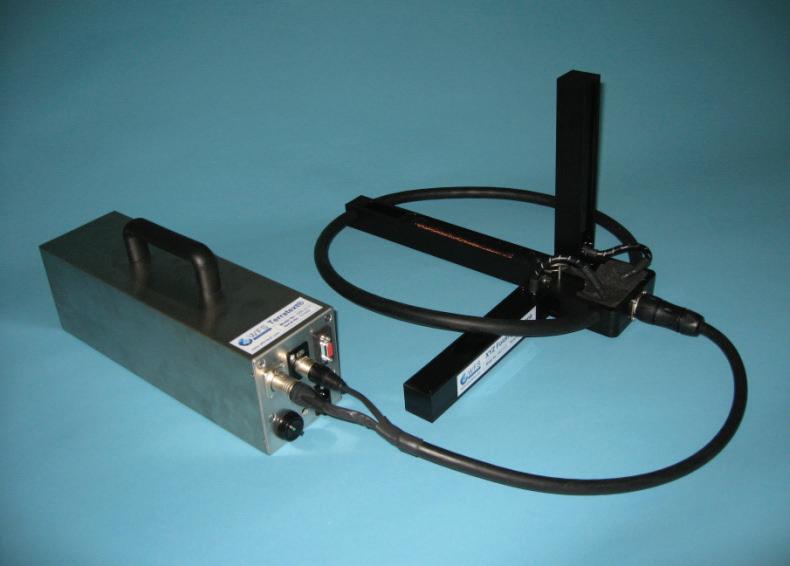
DAY 2 THURSDAY 15TH APRIL 2010
08:45 – 09:00
CHAIRMAN’S MORNING WELCOME & OPENING REMARKS
Margaret Gilmore, Writer & Broadcaster, Senior Research Fellow RUSI and former BBC Senior Home Affairs Correspondent COUNTERING TRANSITIONAL TERRORISM
09:00 – 09:30
TRANSATLANTIC VS. INTERNATIONAL SECURITY – WHICH TAKES PRECEDENCE IN A CHANGED WORLD?
Rt Hon Patrick Mercer MP, Chair AllParty Civil Contingency Group; Member Select Committee on Home Affairs; Chair Select Committee on Home Affairs SubCommittee; Vice-chair All-Party Transatlantic and International Security Group
09:30 – 10:00
AN INTERNATIONAL PROBLEM WITH INTERNATIONAL SOLUTIONS
– THE UNITED KINGDOM’S STRATEGY FOR COUNTERING
TRANSNATIONAL TERRORISM
Charles Farr, Director General, Office for Security and Counter Terrorism (OSCT)
10:00 – 10:30
BEYOND AFGHANISTAN AND IRAQ
Brigadier General Raymond A.
Thomas III, US Army and Deputy Director for Special Operations, J-37, The Joint Staff, The Pentagon
11:00 – 11:25
COUNTERING TECHNO AND CYBER TERRORISM – ENEMIES WITHOUT BORDERS
Roger Cressey, President and Founder, Good Harbor Consulting LLC and NBS News Terrorism Analyst and formerly Chief of staff to the President’s Critical Infrastructure Protection Board and Director for Transnational Threats on the National Security Council Staff
11:25 – 11:50
EARLY AND PREVENTATIVE SECURITY – A FIRST LINE OF DEFENCE AGAINST TERRORISM
Dr. Anja Dalgaard-Nielsen, Director of the Preventative Security Department, Danish Security and Intelligence Service (Politiets Efterretningstjeneste - PET)
11:50 – 12:15
CONTENDING WITH TRANSNATIONAL THREATS – CHALLENGING CONVENTIONAL THINKING
Dr. Matthew Levitt, Director, Stein Program on Counterterrorism and Intelligence, The Washington Institute for Near East Policy
12:15 – 12:40
DEALING WITH THE THREAT OF INTERNATIONAL TERRORISM
Andy Hayman, former Assistant Commissioner Specialist Operations, Metropolitan Police
08:30 – 08:50
Chairman’s Morning Welcome & Opening Remarks
DI Kevin Bolton, Department World, NaCTSO 08:50 – 09:15
Keynote Address
Admiral Lord West of Spithead, Parliamentary Under-Secretary for Security and Counter Terrorism 09:15 – 10:00
14:00 – 14:30
SECURING AND PROTECTING THE UK’S CRITICAL NATIONAL INFRASTRUCTURE
Liz Siberry, Director, Centre for the Protection of National Infrastructure (CPNI)
14:30 – 15:00
PROTECTING INFRASTRUCTURE OF PAN-EUROPEAN IMPORTANCE
Dick Heimans, Head of Sector, Counter Terrorism, DG Justice, Freedom and Security, European Commission
SECURING INTERNATIONAL EVENTS
15:00 – 15:30
SECURING INTERNATIONAL EVENTS & INFRASTRUCTURE AGAINST TERRORISM
Commander Ian Quinton, Head of Security Architecture & Design, Olympic Security Directorate, Home Office
15:30 – 16:00
SECURING THE 2010 WINTER OLYMPIC AND PARALYMPIC GAMES
Francesco Norante, Director Security
Integration VANOC (Vancouver Organizing Committee for the 2010 Olympic and Paralympic Winter Games) and Former Head of Security for Turin 2006
16:00 – 16:30
PANEL DISCUSSION
All Speakers
UK CT Strategy to Protecting Crowded Places...
DCI Chris Phillips GCGI, MSyl, Head, NaCTSO 10:45 – 11:15
Terrorist Attacks on Crowded Places
Andy Williams, Regional Security, Marriott Hotel 11:15 – 11:45
Design & Management Issues for Shopping Centres to Counter Terrorism
Martin Taylor, Chair of Security & Safer Shopping Committee British Council of Shopping Centres 11:45 – 12:30
Helping Business to Help Itself
DS Richard Flynn, NaCTSO 14:00 – 14:30
Communities Defeat Terrorism
DS Dylan Aplin, Avon & Somerset Special Branch 14:30 – 15:15
Operation INTERSECT: Linking People, Processes and Technology through Effective Governance and Standard Operating Procedures
– a Canadian Perspective
Dep Chief Sue O’Sullivan, Ottawa Police Department 15:15 – 16:00
Securing London Olympics 2012
Detective Superintendent Jim Busby, Head of Secure Venues, London 2012 16:00 – 16:30
Blast Resilience – from Strategy to Delivery
Mark Whyte, Director of Security Consulting and Explosions Effects 16:30 Session Summary & Close
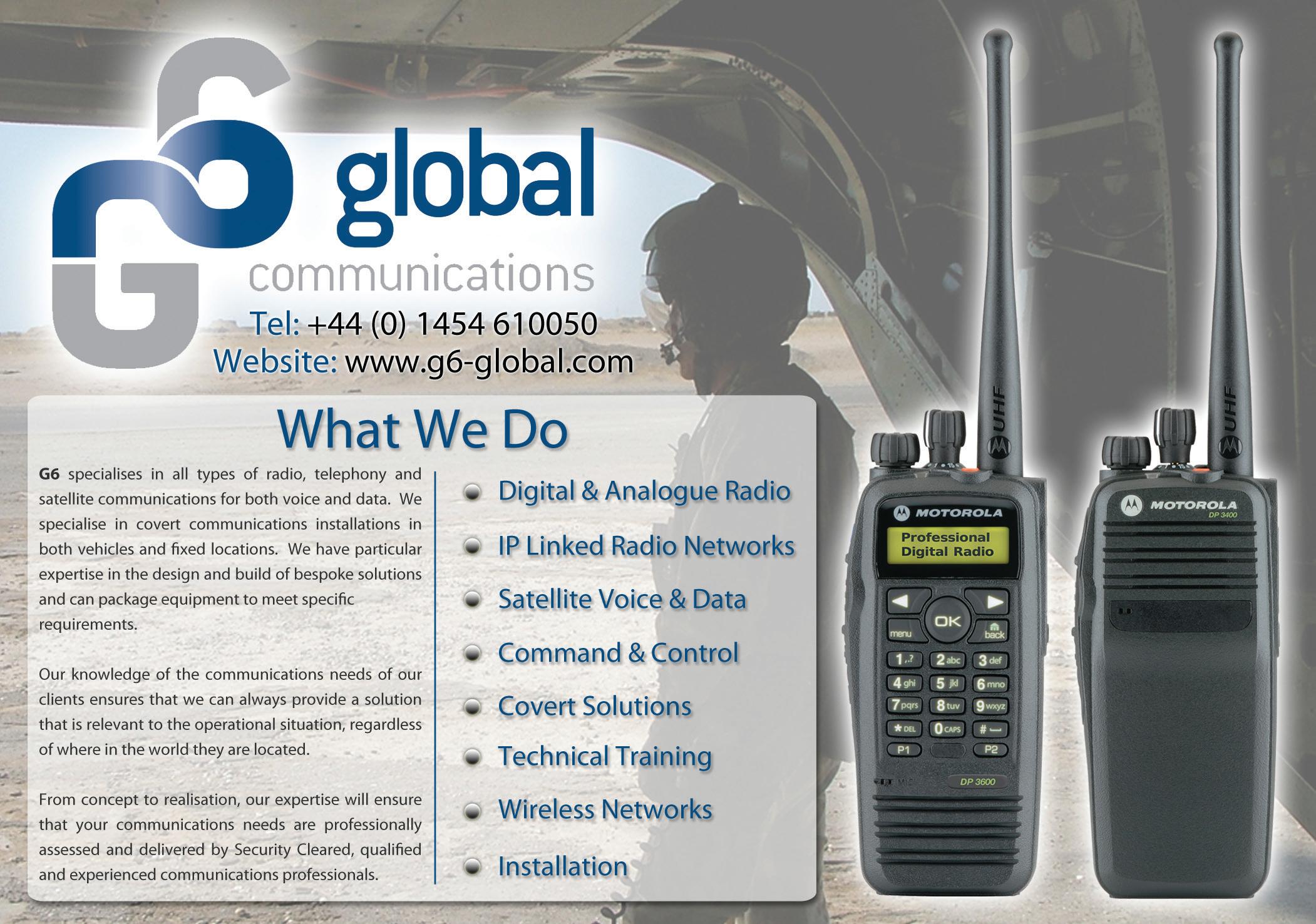

ABP have been established for over 40 years and have achieved a Worldwide reputation for excellence in the design, manufacture and supply of Explosive Ordnance Disposal (EOD) and Improvised Explosive Device Disposal (IEDD) equipment. We supply military, law enforcement and security agencies around the world with cutting-edge Bomb Disposal Tools including:
Guardian ROV
• 2.6m Vertical reach
• 40kg Lift capacity
• 17’’ TFT Monitor and 10.5” Touch screen display

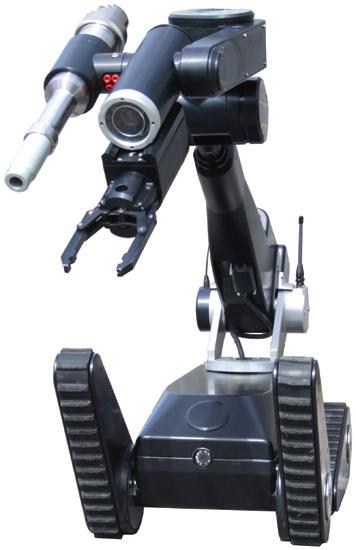

• Extensive range of Conventional, Recoiless & Ultra Lightweight units
• Special fluids for Stand-back attack disruption capability
• Range of De-armer and underwater Disruptors


2 THURSDAY 15TH APRIL 2010
08:45 – 09:00
CHAIRMAN’S MORNING WELCOME & OPENING REMARKS
Robert de la Poer, Editor, Intersec
PROTECTING CRITICAL INFRASTRUCTURE
09:00 – 09:20
THE STATE OF THE NATION: DEFENDING CRITICAL INFRASTRUCTURE
Alan Stilwell, Chair – State of the Nation Steering Group, The Institution of Civil Engineers (ICE)
09:20 – 09:40
FACING UP TO THE CHALLENGE OF PROTECTING THE UK’S TRANSPORT NETWORK
Adrian Dwyer OBE, Force Counter Terrorism Risk Advisor, British Transport Police
09:40 – 10:00
EXPLOITING TECHNICAL
INNOVATION TO PROTECT AGAINST VEHICLE BORNE THREATS
Government Security Adviser, Centre for the Protection of National Infrastructure (CPNI)
10:00 – 10:20
MANAGING SECURITY RISK AND BUILDING RESILIENCE
Richard Bell, Security Audit Manager, Transport for London (TfL)
10:20 – 10:40
THREAT VULNERABILITY PEER REVIEW
Philip Hannah, Consultant, Aldersgate Partners LLP
EUROPEAN & BORDER SECURITY
11:00 – 11:20
BORDER SECURITY AS A MAJOR ELEMENT IN THE WAR ON TERRORISM
Steven Rocke, Counter Terrorism and Airport SecurityExpert, The World Border Organization – BORDERPOL and Security Intelligence Officer, Peel Regional Police – Airport Division
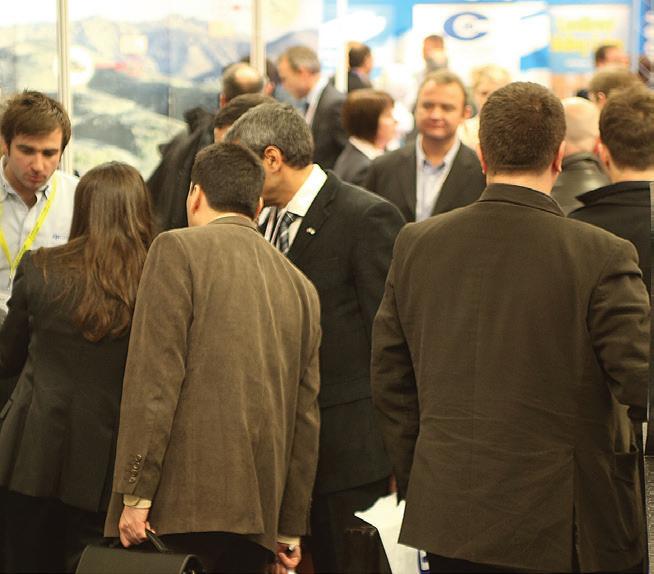
11:20 – 11:40
TACKLING TRANS-BORDER CRIME & TERRORISM
Michele Coninsx, Vice-President, Chair of the Counter-Terrorism Team and Belgian National Member, Eurojust
11:40 – 12:00
NEW SECURITY CHALLENGES IN THE TRANSATLANTIC REGION
Dr John Clarke, Director of Professor, The George C. Marshall European Center for Security Studies
12:00 – 12:20
U.S FOREIGN POLICY-THE IMPACT ON EUROPEAN SECURITY
Dr Lamont C. Colucci, Assistant Professor of Politics and Government and National Security Studies Coordinator, Ripon College and Former U.S Diplomat and Author
12:20 – 12:40
PANEL DISCUSSION
All Speakers
13:55 – 14:05
CHAIRMAN’S WELCOME
Security Institute
14:00 – 14:25
COUNTERING RADICALISATIONEXTENDING SOCIAL COHESION
Douglas Murray, Director of the Centre for Social Cohesion (CSC), and Author and Commentator
14:25 - 14:50
RECRUITMENT, MOTIVATION AND THE PSYCHOLOGY OF SACRED TERROR
Dr James W. Jones, Professor of Religion and Adjunct Professor of Clinical Psychology, Rutgers – The State University of New Jersey
14:50 – 15:15
UPHOLDING HUMAN RIGHTS IN THE FIGHT AGAINST TERRORISM
Maajid Nawaz, Director and co-founder of Quilliam
15:15 – 15:40
ANTI-MONEY LAUNDERING MEASURES
John Rigguth, Executive Secretary, MONEYVAL (Council of Europe’s Committee of Experts on the Evaluation of Anti-Money Laundering Measures and the Financing of Terrorism)
15:40 – 16:05
THE NEED FOR MULTILATERALISM IN COMBATING TERRORIST FINANCING
Dr. Matthew Levitt, Director, Stein Program on Counterterrorism and Intelligence, The Washington Institute for Near East Policy
16:05 – 16:30
THE REALITY OF COUNTERING TERRORIST FINANCING
James Muncie, Head of Proscription and Terrorist Finance, Office of Security & Counter Terrorism, Home Office
16:30
SUMMARY & CONFERENCE CLOSE FOR MORE INFORMATION
Web: www.counterterrorexpo. com/counterterrorconf

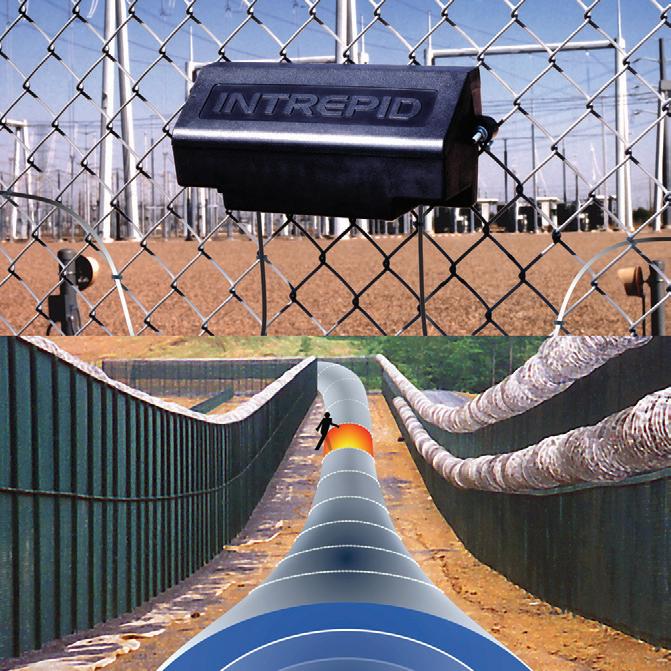
Two revolutionary outdoor perimeter detection systems from Southwest Microwave. Engineered to protect the highest security sites and perform in harsh climatic extremes. MicroPoint™ Cable for perimeter fence applications. MicroTrack™ for covert protection.
INTREPID™ smart sensors offer unrivalled features and detection capabilities. Precise location of intrusion attempts to within 3 metres. Nuisance alarm problems solved via a unique technology that distinguishes legitimate attacks from harmless disturbances. Uniform detection along the entire protected area via Sensitivity Leveling™, a patented calibration feature that adjusts for variations in fence fabric or site terrain.
And since detection zones are specified in system software at any point along the sensor cables, hardware requirements are minimised, total cost of ownership is reduced, and superior detection is assured.
Southwest Microwave Ltd.
INTELLIGENT PERIMETER DETECTION SYSTEMS
Suite 3, Deer Park Business Centre, Woollas Hill, Eckington, Pershore, Worcestershire, WR10 3DN UK
Telephone: +44 (0) 1386 75 15 11 Fax: +44 (0) 1386 75 07 05 Email: infossd@southwestmicrowave.com www.southwestmicrowave.com
Fence Detection System Buried Cable Detection SystemWITH NEARLY FOUR MILLION metres of cable protecting security sensitive sites worldwide, the INTREPID™ MicroPoint™ cable fence detection system is the perimeter security solution of choice across government, military and industrial applications due to its ability to pinpoint intrusion attempts to within three metres and eliminate nuisance alarms common to most fence sensors.
INTREPID MicroPoint™ cable reliably detects attempts to climb or cut a fence, while ignoring distributed noise from rain, wind or vehicle traffic. The system also successfully identifies the source of each disturbance – preventing nuisance alarms. With MicroPoint™ cable, operating power, system communications and alarm signals are all transmitted using a single, patented MicroPoint™ cable, eliminating the need for extensive wiring. Patented MicroPoint™ technology allows the assignment of alarm zones anywhere along the cable, reducing hardware requirements and lowering installed cost versus traditional fence sensors. MicroPoint™ cable uniquely compensates for variations in fence fabric, making each fence section as sensitive as the next to intrusion attempts. The system is easy to set up using intuitive, Windows®-based installation tools.
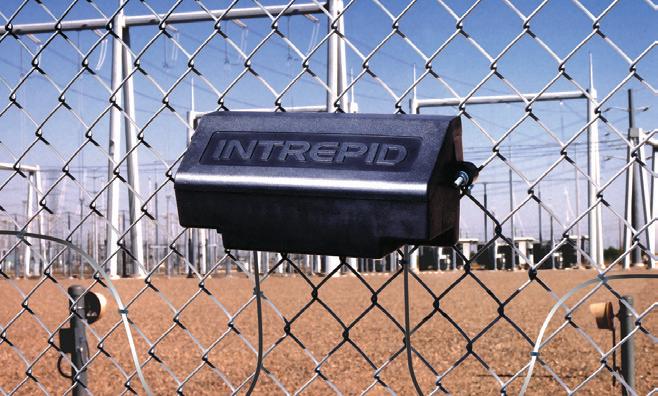
INTREPID™ MicroTrack™ is a revolutionary, covert buried cable detection system engineered to protect high security sites and perform in harsh climatic extremes. This volumetric smart sensor offers unrivalled features and unique detection capabilities, including precise location of walking, running or crawling intruders to within three meters. MicroTrack’s terrain-following capabilities allow the sensor to follow ground contours and handle tight turns with ease.
The MicroTrack™ system consists of a processor and two pairs of transmitter/ receiver cables buried 18 to 28 cm underground. An electromagnetic detection field created around each cable pair detects disturbances and precisely locates intruders.
Each system is capable of securing up to 400 meters (1,300 ft). Multiple systems are networked to secure larger sites. MicroTrack™ is simple to configure and system parameters can be set to individual site requirements. Patented Sensitivity Leveling™ calibrates the sensor to account for variations in ground composition or site conditions – resulting in uniform detection across the protected area. Software-controlled zoning lets users assign detection zones anywhere along the cable, keeping hardware requirements low and assuring superior detection.

Both INTREPID™ systems feature a variety of monitoring options, ranging from full-colour map displays that detail precise alarm location and integrate auxiliary perimeter security devices to advanced security management tools for centralised control of perimeter security operations across multiple sites.
FOR MORE INFORMATION
Web: www.southwestmicrowave.com
WITH MORE THAN 53,000 installations in 80+ countries, Southwest Microwave Ltd. is a global leader in the design and manufacture of outdoor, electronic perimeter intrusion detection equipment. Southwest Microwave offers a complete range of field-proven intrusion detection solutions, engineered to perform unfailingly in security-sensitive applications and harsh exterior environments. Our systems are trusted to address broadranging perimeter security requirements within the government, military, transportation, utilities, correctional, industrial and VIP residential sectors. Each Southwest Microwave system provides reliable, immediate detection of perimeter disturbances – reducing the risk of intrusion, theft, vandalism or other
harm to infrastructure, assets or personnel. Detection solutions include INTREPID™ MicroTrack™ buried cable detection system, INTREPID™ MicroPoint™ cable perimeter fence detection system, fixed and relocatable microwave sensors, infrared detection devices and dual-technology sensors. A variety of robust security management tools assure the seamless integration of all elements of a facility’s perimeter security program. Product excellence reflects only one component of the Southwest Microwave customer commitment. Our pledge to provide world-class customer care is backed by extensive technical capabilities, including system design and commissioning services, comprehensive training programs and responsive tech support. By delivering proven technologies and broad-reaching

value-added services, Southwest Microwave offers a solid foundation for long-term integrated perimeter security solutions. We encourage you to visit our European subsidiary, Southwest Microwave Ltd., based in Worcestershire, UK. These offices are staffed with experienced applications engineers, sales consultants and technical service personnel dedicated exclusively to servicing our European clientele. Southwest Microwave Ltd. features an internationallyacclaimed 2,000 square metre sensor test and demonstration facility and a state-ofthe-art onsite product training centre.
Tel: +44 (0) 1386 75 15 11
Web: www.southwestmicrowave.com

Kinesense LE was developed specifically for Law Enforcement agencies to transform video investigation from a manual, resource-intensive and error prone process to an automated, efficient, reliable and accurate one.
Facilitates Video Recuperation
� Helps retrieves video from third party video security systems
� Quickly extracts analog video to viewable format
� Converts digital video from non standard proprietary files into viewable and useable formats
Automatic & Time Efficient Video Search
� Automatically searches hours of video displaying search results in seconds
� Saves time to search video by up to 95%
� Eliminates a time-consuming and arduous task
� Cuts down on operator cost reviewing video footage
� Enables better utilisation of staff time
User-Friendly
� No complicated set-up or extensive training required
� Quick and easy to use
SYSCO HAS LAUNCHED a new product for the government and high security market. The Atlas fence is a combination of an existing NATO approved digital taut wire detection system combined with an electric security fence.
The system has been designed to provide proven taut wire detection performance in combination with the deterrent factor provided by traditional electric fence technology.
The taut wire element will work independently of the electric fence allowing the user to isolate the electric fence element at any time.
The Atlas fence can be integrated with other third party control interfaces or can be supplied with its own dedicated Graphic User Interface including an HDLC bi-directional data highway. The outstations can be used to gather alarm data from third party sensors and switch on floodlights, sound klaxons and operate electric locks etr.
The Atlas fence can be attached to certain existing fence types or it can be installed as a stand alone fence with selected fence fabrics attached.
The taut wire hardware can be

In addition to the Atlas fence, Sysco has also launched a cost effective retrofit solution to turn a conventional electric security fence into a dual technology electric fence combined with a taut wire detector. This product has been designed to be easily installed onto an existing electric
fence installation without the necessity of altering the electric fence construction and subsequently, characteristics. Like the Atlas fence, it has been designed to work and operate independently of the electric fence to maximise the detection characteristics and provide true taut wire performance.
Cost of ownership, ease of installation together with excellent taut wire detection performance make this product ideal as a cost effective solution to increase the performance of existing and planned electric fence installations while overcoming the fundamental vulnerability to defeat that a conventional electric security fence may have.
Sysco is best known for its Sona-5 addressable point sensor systems which allows its detection zones to be electronically configured tp match fields of view of the cctv system cameras. The product is widely used in government installations throughout Europe.
Sysco also manufactures an easily installed covert buried detection system.
FOR MORE INFORMATION E-mail: psmsysco@aol.com
PROENGIN AND BERTIN Technologies develop and manufacture chemical and biological detection systems used by armed forces, civil defense, police and first responders in more than 40 countries.
The two companies exhibit a complementary and comprehensive range of products: Stand off chemical detection, hand-held or vehicle mounted or fixed site point chemical detection, biological threat alarm system associated with air samplers and accurate field analysis systems.

Designed for field usage, they provide demanding users with reliable information about the presence and the nature of chemical and biological threats. They can work in a urban environment without false alarms, (proven in London Subway).
Second sight stand off chemical detection has been recently adopted by Singapore Civil Defense Forces as well as the AP4C hand held chemical alarm monitor.
AP4C and AP4CV have been selected
by German Armed Forces for installation on a CBRN reconnaissance vehicle and AP4C is widely used by UK Home Office and British Armed Forces .They use flame spectrophotometry technology allowing a reliable detection of toxic gases and their precursors.
AP4C- F is a version for fixed sites and critical infrastructures. It runs 24/7 during one year without maintenance and only one liter of water every month as a consumable. A version including biological alarm detection and radiological detection will be ready in June 2010.
The Three-Step-Process for Biological
Detection (MAB+Coriolis+KIM) has been recently adopted by French Forces for overseas missions; it consists in a bio alarm device (MAB) triggering a biosampler, Coriolis. Coriolis will deliver a liquid sample in less than 10 minutes. This sample can be tested with various technologies, in particular with the KIM developed by Bertin technologies. The complete system allows to have an answer about the level of danger of a threat without 20 minutes after its first detection.
Bertin Technologies and Proengin have been awarded R&D contracts by the French MOD for the development of future technologies to be implemented in chemical and biological detectors of the years 2015-2020.
FOR MORE INFORMATION
Tel: +33 1 30584734
Fax: +33 1 30589351
E-mail: eric.damiens@proengin.com
Web: www.proengin.com
KINESENSE LTD IS A VIDEO analytics company specialising in video retrieval, search and analysis solutions for the security and surveillance market. Based on a branch of artificial intelligence, Kinesense transforms video surveillance and investigation from a manual, resource intensive and error prone process into an automated, efficient and accurate one.
The Law Enforcement Challenge: CCTV video surveillance footage is a useful resource to help solve crimes and convict criminals. However, the issue for law enforcement agencies is the time and effort to retrieve, view, analyse and report on video footage as evidence. Even a small investigation may comprise hundreds of hours of video footage that have to be watched and analysed. The manpower resources to review such volumes of video footage is time consuming and costly. Furthermore, the ability of monitoring personnel to hold attention and to react to rarely occurring events
is extremely demanding and prone to error, due to lapses in human attention.
Kinesense LE Solution: In response, Kinesense has developed a cutting edge newly launched search and video analytics product, Kinesense LE, specifically for the law enforcement market. Kinesense LE helps to retrieve video from incident locations by extracting analogue and non standard proprietary video files into viewable formats. Then using an advanced approach to video event detection, automatically searches and analyses video footage for defined events of interest and presents search results in a viewable format, eliminating the time and effort to watch and sift through endless hours of CCTV footage.
Kinesense LE searches video by event or search criteria including person, vehicle and colour, as defined by the user. For example, one can search for people entering a building during a 24hr period. Search results are displayed on an easy to use timeline. The timeline allows you to play just the events in the video, skipping long sections of the video with unimportant or irrelevant video. This search feature cuts the time to review a CCTV video, reducing investigation time from hours to just minutes.
FOR MORE INFORMATION
Tel: +353 (0) 1 612 1420
E-mail: info@kinesensevca.com
Web: www.kinesense-vca.com
SAMSUNG HAS BEEN developing high performance professional security products incorporating leading edge technology for many years. A strategic decision in March 2008 to create a dedicated security division however quickly led to Samsung becoming one of the fastest growing brands of professional security equipment throughout Europe.
Samsung professional security products are not only highly respected for their quality but also for their superb value, backed-up by unbeatable pre and post sales support.
Heavy investment into research and development has resulted in a massive expansion of the Samsung product range and the company is now able to provide complete security solutions for any number of applications including retail, transport, government, banking, utilities, stadia, commercial, education and healthcare. By listening carefully to its clients, Samsung continues to develop products to meet the current and future needs of security professionals. By following this path the company has developed a number of unique technologies specifically for
use in security applications. These new technologies have ensured that Samsung professional security products have been highly rated in independent product tests.
With a Head Office in the UK and with local offices in France, Germany, Italy, Czech Republic, Spain and Russia, Samsung’s professional security products are supplied and supported by Samsung Techwin Europe Ltd across Europe, Russia and CIS. Samsung Techwin Europe Ltd provides a fully comprehensive three-year warranty, a free system design service to help customers choose the ideal products and expert technical support. Samsung’s professional security
products have consistently proved to be reliable but in order to provide customers with complete peace of mind, the company offers a five-day turnaround promise on all product repairs.
FOR MORE INFORMATION
Tel: 01932 455 308
Fax: 01932 455 325
E-mail: STEsecurity@samsung.com
Web: www.samsungsecurity.com
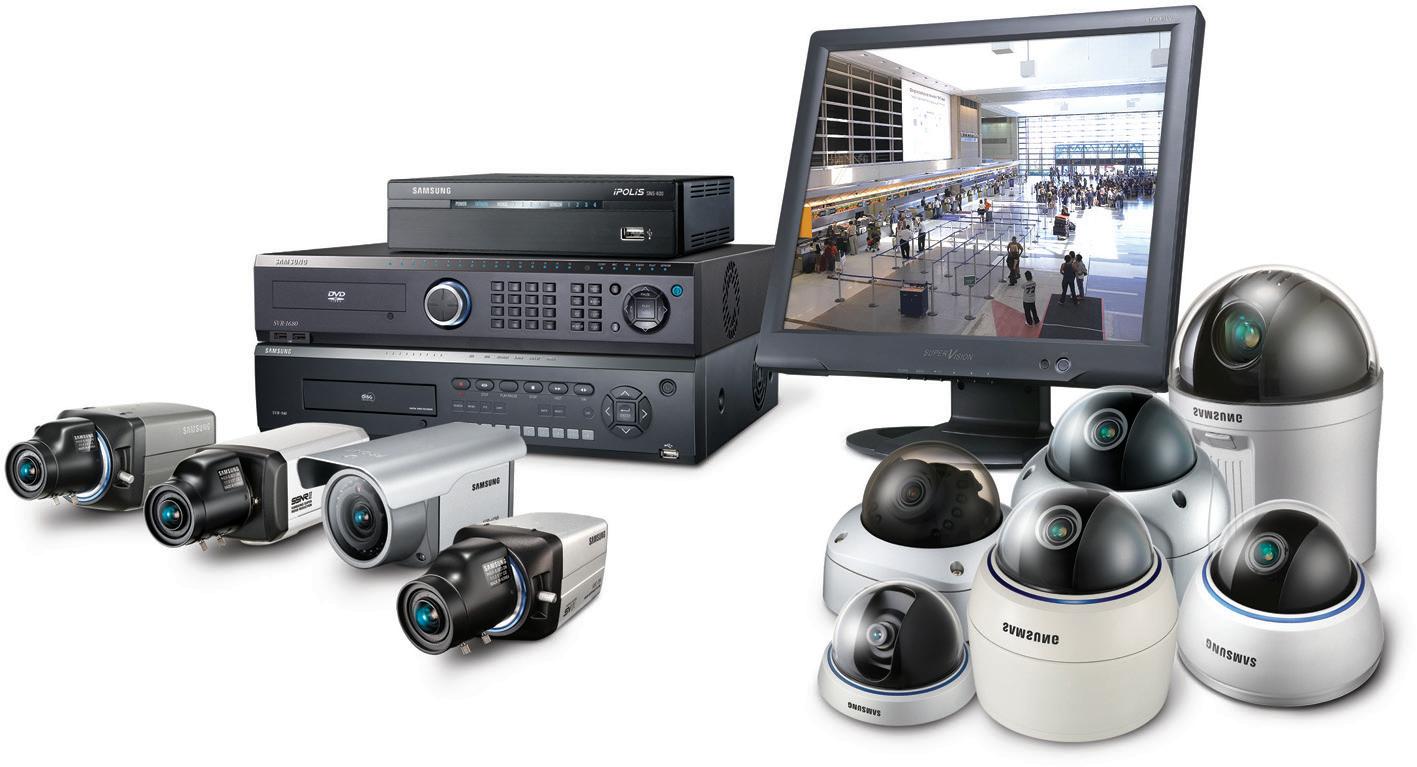
HAWKMOOR LIMITED has been at the forefront of improvements in field catering for over 25 years and has developed a reputation worldwide for rugged and reliable equipment.
The company’s Research and Development department plays a vital part in the search for more efficient ways of delivering nutritional field feeding to personnel. Equipment is reviewed and tested on an on-going basis to keep abreast of operational requirements.
A full spectrum of services can be procured from Hawkmoor in one logistical package. The company has the resources to design and build unique solutions for specific needs. Equipment is available through agents worldwide. Hawkmoor operates a quality management system, which has been assessed to the quality system standard BS EN 9001. Products range from one-man burner stoves together with portable modular kitchens, through to trailer-mounted field kitchens and containerised utilities and services.
Hawkmoor field catering systems are integrated to provide all necessary facilities from storage, preparation, cooking, serving and distribution of meals in all environments. Equipment is engineered for rapid deployment and functionality.
The Modular Field Kitchen (MFK), Deep
Fat Fryer (DFF) and Field Water Boiler (FWB) are the latest additions to the Hawkmoor portable kitchen range. They run on diesel/kerosene fuel. Trailer-mounted kitchens, provide autonomous field catering remote from main catering bases. Deployment of Hawkmoor portable fridge/ freezers, ensures that fresh, chilled or frozen food is stored at appropriate temperatures.
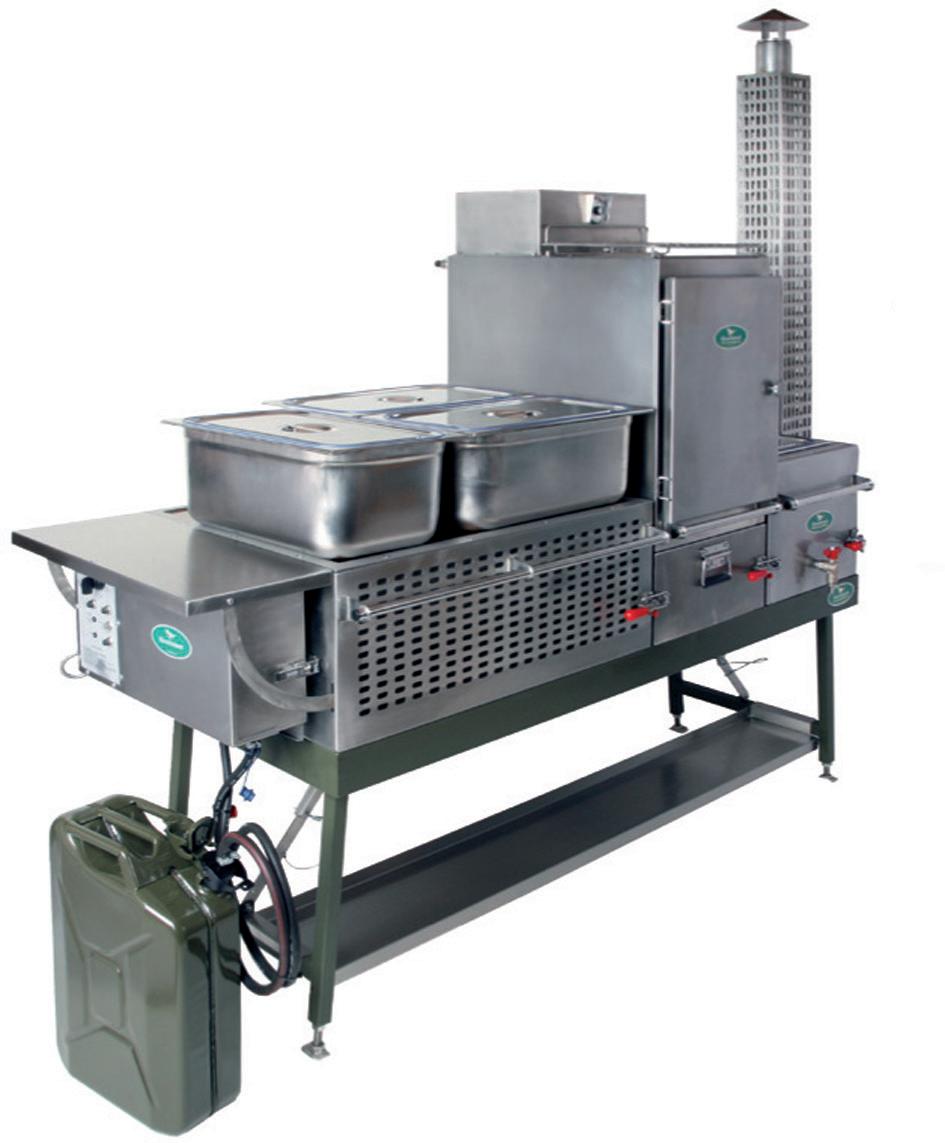
FOR MORE INFORMATION
The company has a range of insulated food and beverage containers (the NATO 18-litre container being the best known) for disbursement of prepared hot or cold meals to remote groups. Hawkmoor also supplies ancillary utilities and support equipment to augment facilities at operational bases, such as power generators, water treatment, ablutions, laundries, or mortuary facilities. Hawkmoor provides training, spares and support and has the capability to design and manufacture bespoke products tailored to clients’ requirements.
Unit 2, Skyways, Exeter Airport Business Park, Exeter, Devon EX5 2UL
Tel: +44 1392 449080
Fax: +44 1392 449088
E-mail: info@hawkmoor.com
Web: www.hawkmoor.com
DO SYSTEMS IS A UK based company, specialising in Intelligence, Surveillance and Reconnaissance (ISR) operations. DO Systems has a proven track record in delivering a variety of high profile and high value projects for government and corporate clients, including operating in the Middle East for the UK military.
Our DA-42 M aircraft and Beechcraft King Air aircraft are well equipped with the latest imagery and communications equipment, providing a variety of live feeds from an area of interest. The aircraft can be individually configured to customer requirements, incorporating synthetic aperture radar, threat detection for CBRN, beyond-line-of-sight (BLOS) satellite voice and picture transmissions, and the full spectrum of microwave downlinks. With its composite airframe and diesel engines, the DA 42 is in audible above 3000 ft agl and with an endurance of more than 8 hours it is the ideal platform for covert surveillance. The company operates self-contained
engineering and operations departments, deployable worldwide.
With our own Part 145 approval and globally approved locations, DO systems can maintain aircraft to the highest standards in any required location. Our design team have a wealth of experience designing and integrating systems on to airborne platforms taking concept from the drawing board to certification. DO Systems Mission Support provided a Gap Analysis and the subsequent training in Counter Terror and Search and Rescue to Qatar in preparation for the Asian Games. Our ex-military staff are able to provide instruction in a variety of specialisations operating to recognised UK and international doctrine.

our own fleet of aircraft and all elements of the operation allows us the flexibility to provide bespoke solutions that dovetail into existing security infrastructures or standalone packages that require no local assistance. Whether protecting your border, national infrastructure or being able to respond to a critical disaster, DO Systems provides the technology, knowledge and capability to deliver the task.
FOR MORE INFORMATION
Tel: 01722 333394
DO Systems has developed a product that covers all elements of manned and unmanned airborne surveillance. Owning
Fax: 01722 333395
E-mail: enquires@dosystems.com
Web: www.dosystems.com

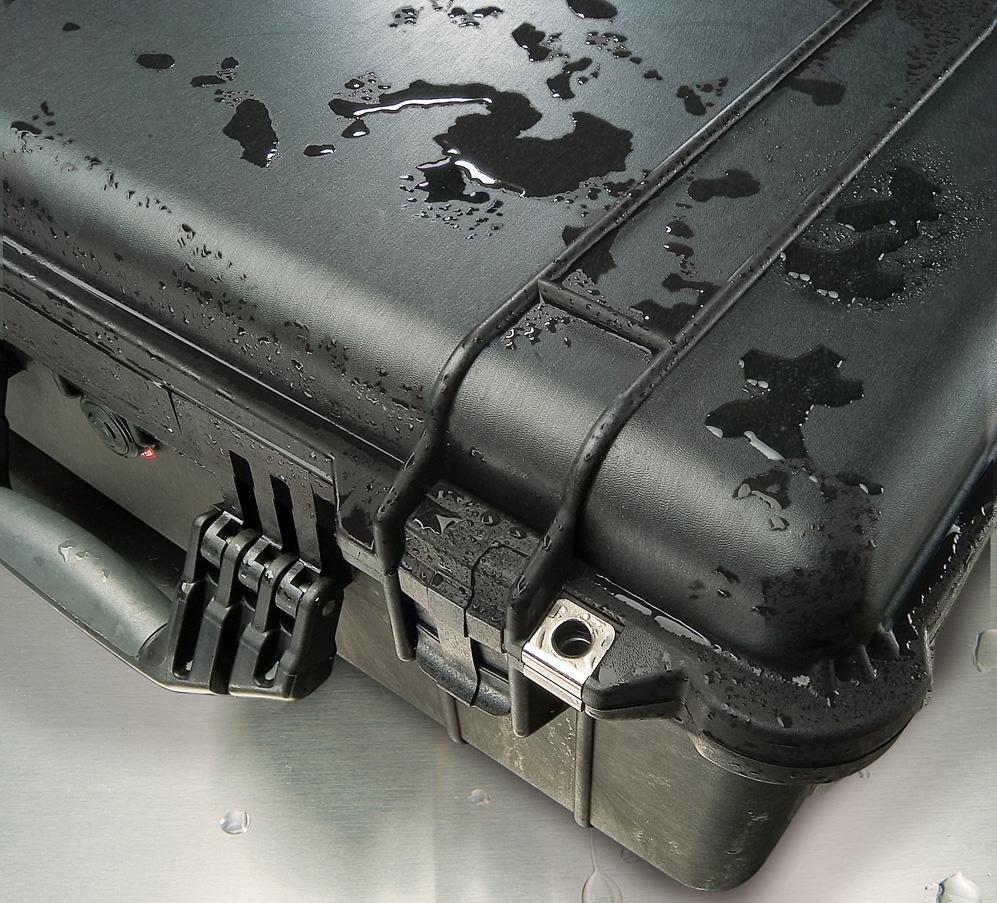
The evidence is clear; a “tongue and groove” fit and a neoprene 0-ring around the lid creates a seal. The open core cell and solid wall construction makes the case lightweight yet virtually indestructible. You can travel light with heavy duty protection against hard knocks, chemicals and the weather.
Need more proof? Go to www.peliproducts.co.uk or Tel: 01457 869999.
The full power of IT connectivity is realised through AR&T’s NetWatch surveillance suite.
• • Video analytics
•
•
• • Recording & data storage
• • Networked transmission
•
• • • Monitoring and review

NetWatch bringsall the elements of CCTV surveillance into a single easy to manage package that can be tailored to suit changing securit y requirements. In addition tocomprehensive IT connectivity, the NetWatch suite includes facilities for:
•
•
• • Video data protection
• • Archiving
•
•
• • Editing
• Enhancement
•
•
•
• • Evidence submission management
In use by government, military and major utility companies with over 1000 installations, NetWatchis established as a reliable and effective system contributing to the fight against terrorism and crime.
Advanced Research & Technology Ltd

Telephone: 01623 477320
Fax: 01623 477322
Web: www.ar-t.co.uk e-mail: sales@ar-t.co.uk
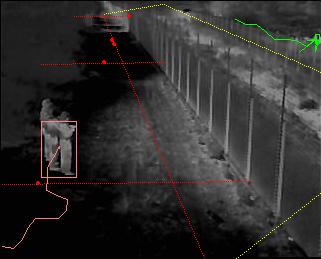

Technology provides NetWatch with a powerful function to detect intruders under all weather conditions on land, sea and air.
Using thermal imaging cameras, and new imageprocessing techniques, the system alerts operators when objects, of pre-defined sizes, enter protected areas.
A MIST system can protect compounds, airfield perimeters, and country borders. The system uses ‘Virtual Sensors’ drawn into the video image. All objects detected by the TI cameras are tracked; any that meet pre-defined criteria and interact with the virtual sensors raise an alarm.
FOR SITUATIONAL awareness, intelligence distribution, VIP protection, asset security, and more--Patton’s Visuality™ is the only mobile video surveillance solution in its class.
Providing real-time stream-and-store video from up to four cameras, synchronized with audio, sensor, and geospatial information, Visuality equips your responders with the tools to act--anywhere and anytime. By delivering secure, highquality, realtime information directly from the field, Visuality ensures your agents “Know Now™.”
The integrated, intelligent and scalable media-server platform employs end-to-end tunnels with user-defined encryption options to offer fully-secure communication over a standard 3G/4G cellular or private wireless network to a remote command and control center.
The Visuality Command Server offers secure head-end operations center with centralized or distributed control. The Command Server provides configuration and location management for the field-unit fleet with end-toend management and coordination.
The Patton Visuality System
playout of up to 24 unique sources.
T7712 Portable Video System – The Patton® Visuality™ Model T7712 Portable Video Server and DVR provides featurepacked, affordable mobile video for security applications, VIP protection, and situational awareness improvement
T7714 Mobile Video System – The Patton® Visuality™ Model T7714
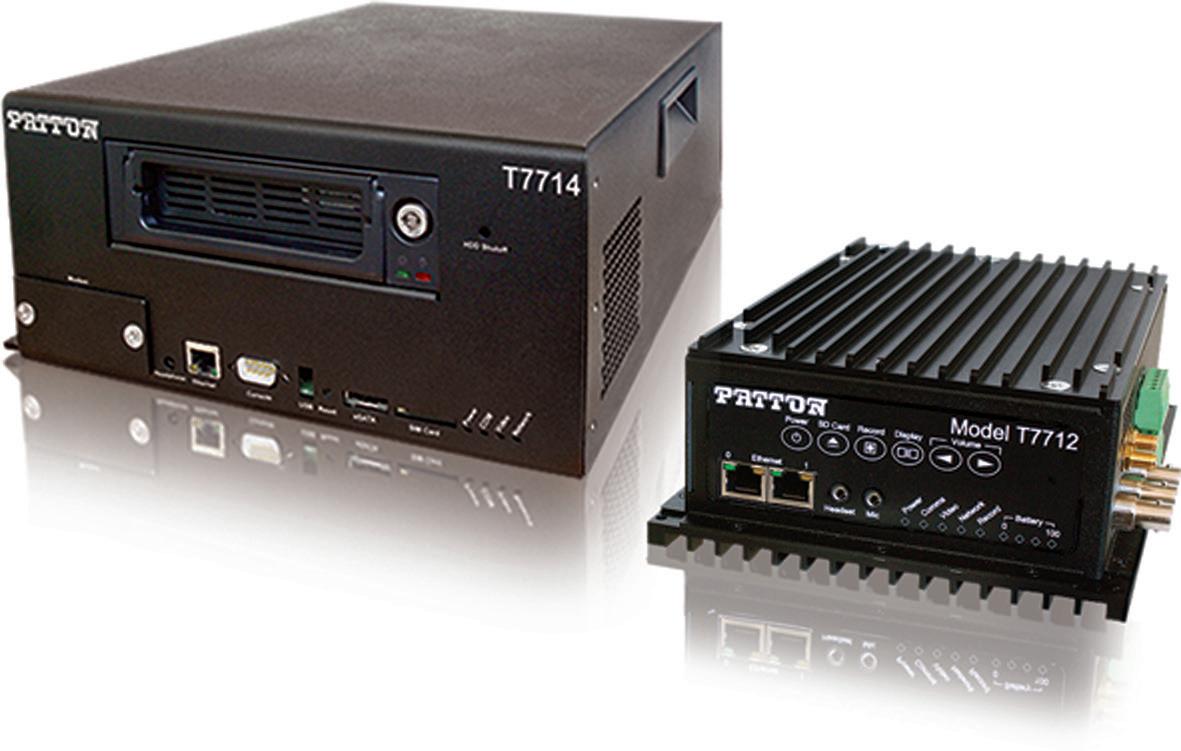
consists of the following components:
T7900 Command Server – provides tunnel termination, user credentials, and complete remote unit control, manages simultaneous recording and re-streaming
Multichannel Store and Stream DVR provides a complete and secure video, audio, and GPS surveillance solution with integrated capture, DVR storage, and streaming.
Patton is a multi-national organization that designs, develops, and manufactures electronic communications equipment for mobile-videosurveillance, network-access, connectivity, voice-over-IP, and triple-play applications. Incorporated in the state of Maryland since 1984, Patton is ISO 9001 certified.
FOR MORE INFORMATION
Tel: +41 31 985 25 25
Fax: +41 31 985 25 26
E-mail: europe@patton.com
BP HAS BEEN established for over 40 years and has achieved a worldwide reputation for excellence in the design, manufacture and supply of Explosive Ordnance Disposal (EOD) and Improvised Explosive Device Disposal (IEDD) equipment.

DToday we supply military, law enforcement and security agencies around the world with leading-edge bomb disposal tools and specialist military equipment, including Remotely Operated Vehicles, Conventional Disruptors and De-Armers and Recoilless Disruptors and De-Armers.
As a Prime Contractor to the UK’s Ministry of Defence, ABP has engineered a proven range of innovative products now widely recognised as the de-facto standard against which others are judged.
In addition, our extensive experience in the field of EOD enables us to modify existing products to deliver bespoke solutions that meet precise customer requirements.
Our in-house capability comprises a unique blend of practical EOD experience and innovative engineering expertise, allowing us to develop and supply equipment that our customers can count on no matter how tough their environment.
FOR MORE INFORMATION
Tel: +44 (0) 1202 665000
Fax: +44 (0) 1202 441666
E-mail: eod@abprecision.co.uk
Web: www.abp-eod.com
MS technologies, an ISO9001:2008 accredited company, has a long experience of developing battery-based portable power solutions across a broad range of market sectors, notably where wide operating parameters are required. Our expertise encompasses all battery technologies including NiMH, Lithium, NiCd and sealed lead acid.

We have designed and manufactured a range of Red Flash™ Remote Portable Power Units. These have been designed for operating in the field in remote and rugged environments, particularly suitable for tactical units who require silent, odourless power for ancillary equipment, and are available in 600W AC or 44Ah DC outputs. The packs incorporate connectors permitting re-charge from either vehicles or mains voltage. They can also be linked for added run-time/capacity.
Rugged cases enable the units to withstand high impacts and extreme environments. Another aspect of our business encompasses engine start for 12v and 24V vehicles, aircraft and generators. These rugged powerpacks, available with a range of suitable connectors, are in service with military customers, emergency services and roadside assistance organisations as well as commercial fleet operators. In addition to our built packs, we are able to supply high performance batteries for applications including specialist vehicles, marine, telecommunications and rail infrastructure.
FOR MORE INFORMATION
Tel: +44 (0)1794 525400
Fax: +44 (0)1794 525450
E-mail: sales@dmstech.co.uk
Web: www.dmstech.co.uk

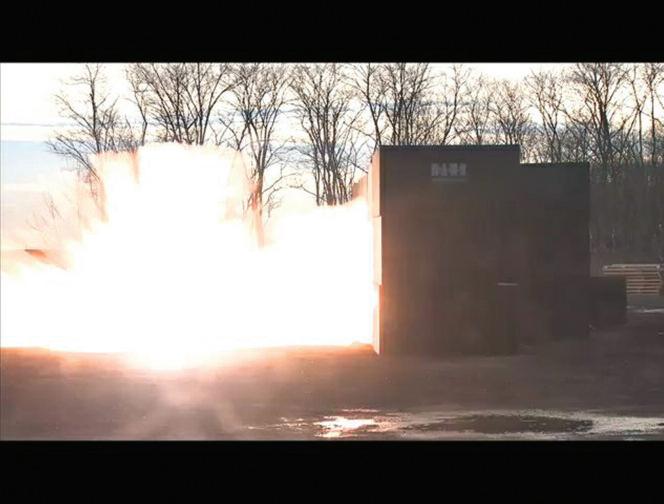


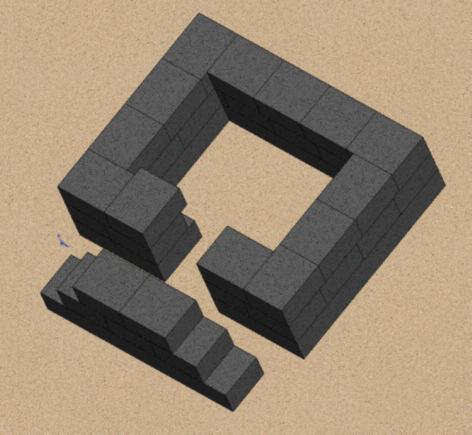
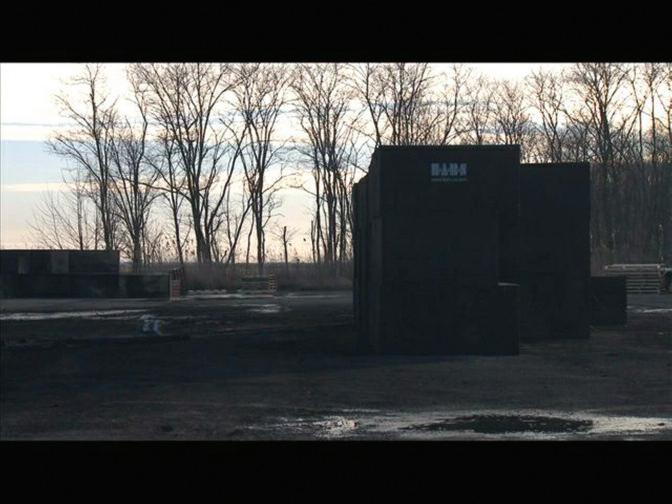
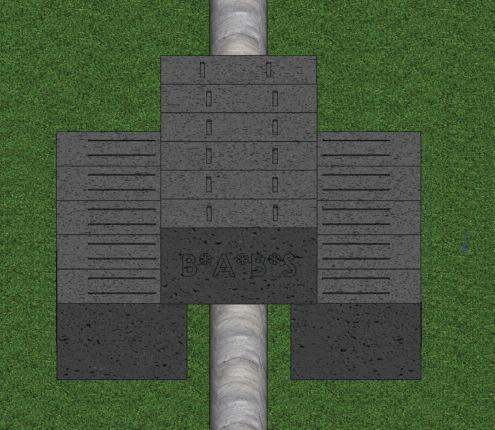
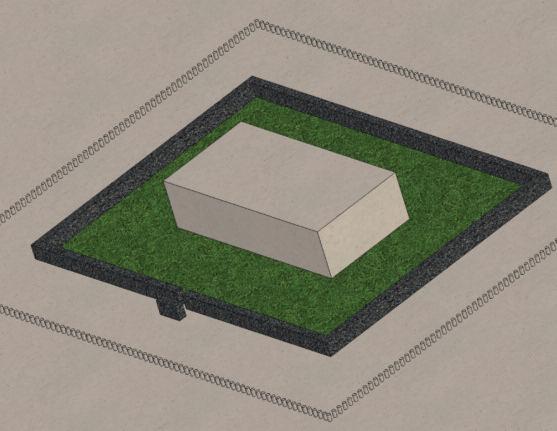
During blast survivability testing conducted at the Aberdeen Test Center (Maryland, USA) a wall constructed of BABS blocks showed 99% blast attenuation (Ballistic Absorption Barrier Systems) blocks are a revolutionary new product utilizing ‘green technology’ to manufacture a new method of protection against ballistic and blast events are

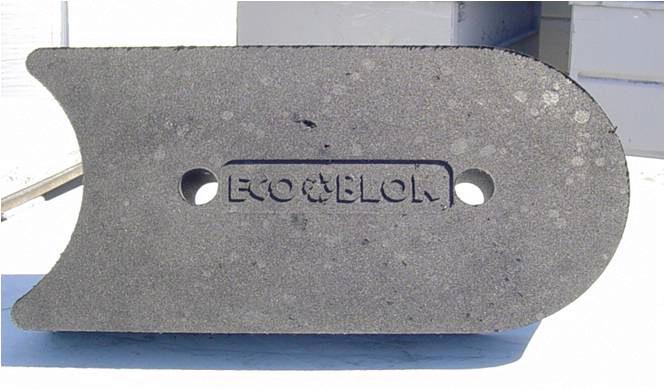

(Ballistic Absorption Barrier Systems) utilize recycled scrap tires to create blast absorption barriers for use in perimeter and check point security, embassy fortification, pipeline protection, and major event security


Scrap tires are one of the world’s largest environmental problems. Hundreds of millions of tires are produced each year increasing the total number of tires worldwide Most current applications for scrap tires involve burning or burying tires These options can have a large environmental impact
blocks have been demonstrated at Quantico Marine base and tested at the US Army Aberdeen Test Center Testing results showed 99% attenuation of the pressure from the blast event
wall was tested successfully against multiple blasts designed to validate survivability against repeated blast events.
have been designed for ease of movement and quick deployment. They are constructed to be positioned similar to building blocks They are portable, reusable, and protective
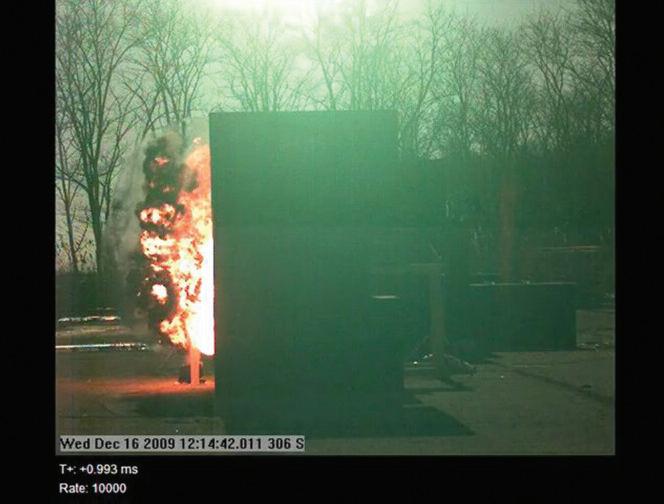
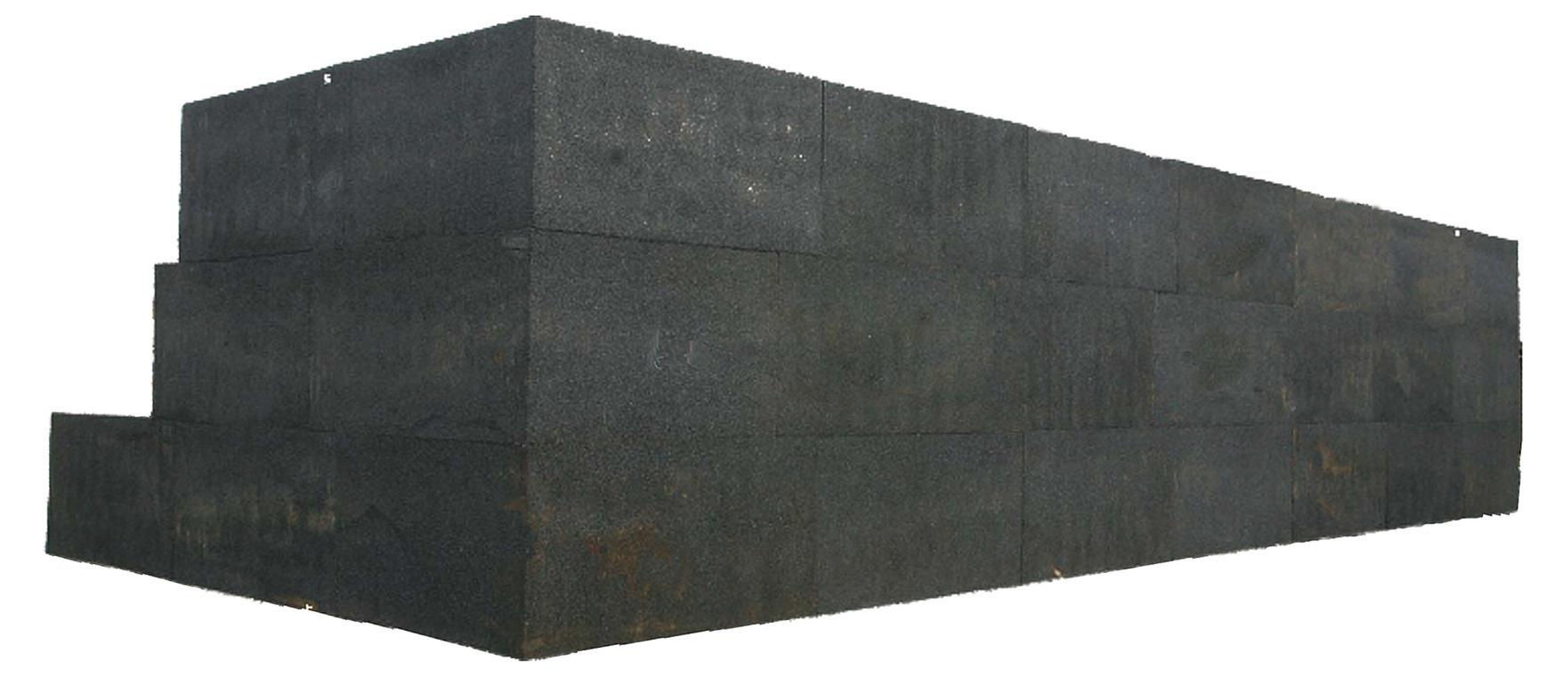

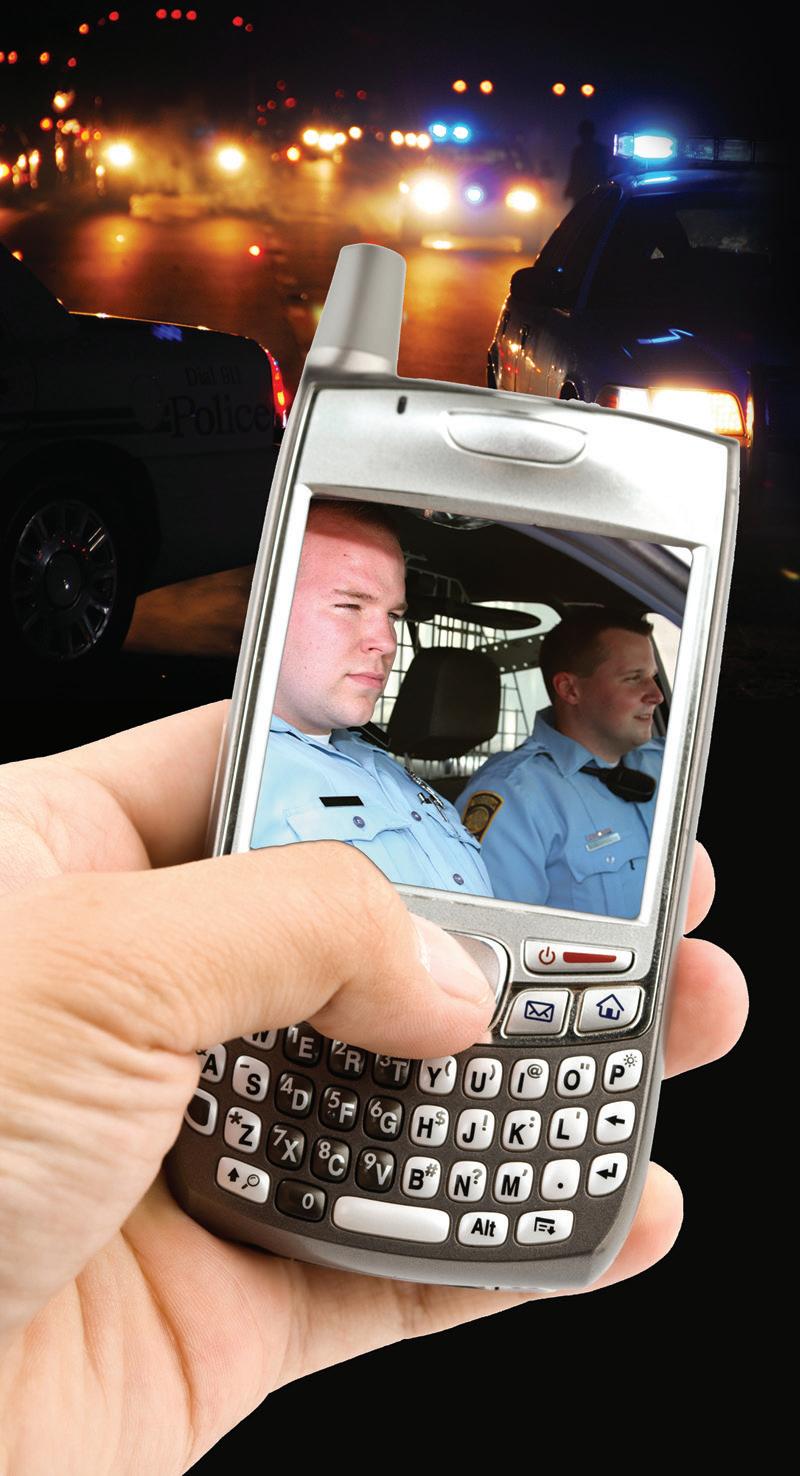
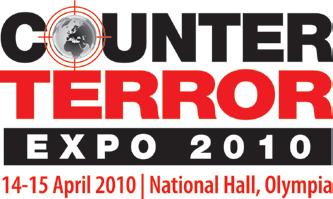
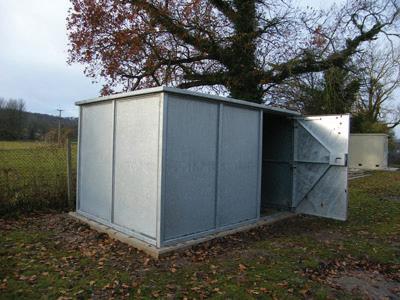
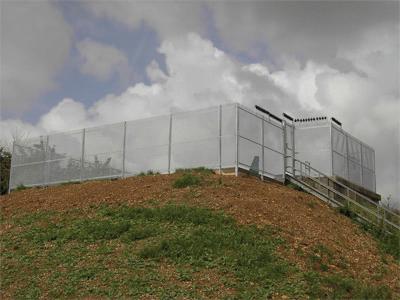
ProTel Solutions providing security solutions to counter international terrorism
n SECURITY SURVEILLANCE
n MOBILE VIDEO
n VIA PDA PHONE
n UP TO 4 CAMERAS PER SERVER
LIVE DEMONSTRATIONS
Combining video surveillance and mobile phone technology to see live streaming video of a surveillance system on a PDA
phone providing a complete mobile and surveillance solution for enhanced real time situational awareness.
Olixir rugged, high capacity transportable hard drives for Mobile Digital Video Surveillance ideal for Government, Military & Defence requirements.
Tel +44 (0)845 057 0176 www.protelsolutions.co.uk
ProTel Solutions
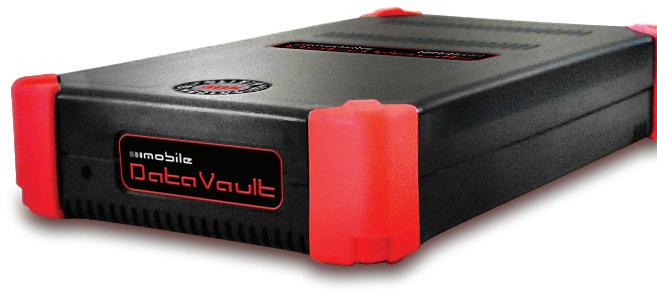
Tel +44 (0)845 057 0176 sales@protelsolutions.co.uk www.protelsolutions.co.uk
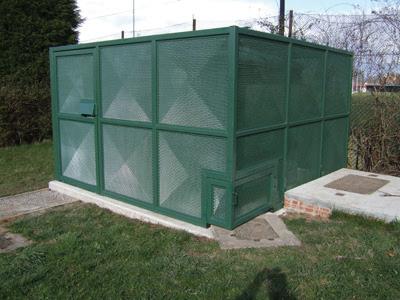
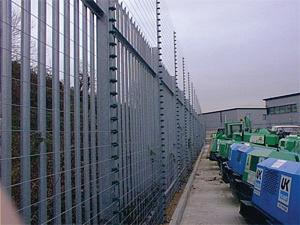
• Electrified fencing 0117 963 7111 www.lowrey-contractors.co.uk


ABIL PROVIDES comprehensive electronics design, production and product management services to global electronics and technology companies. Jabil’s UK site in Livingston, Scotland is specialised in high-complexity, low-volume electronics manufacturing for a range of industries, including medical, industrial, surveillance, aerospace and defence.
Our AS9100 certified facility is structured for companies seeking a local or regional EMS provider and offers the full range of electronic manufacturing services required for product industrialisation. The site applies lean manufacturing principles, driving waste – and cost – out of manufacturing.
At Jabil, each customer, regardless of size, has one point of contact and a support
team to ensure optimal performance. It is our role to provide to our customers a high quality, cost competitive, on time manufacturing service.
Jabil establishes longterm customer partnerships by delivering the most comprehensive manufacturing services available. Our goal is to achieve customer satisfaction through excellence in design, supply chain management, manufacturing and repair solutions. Through our culture, our drive, and the expertise of each individual employee, we are uniquely positioned to provide best-in-class services to a global customer base.
FOR MORE INFORMATION
More information can be found on www.jabil.com
HE SIMBARS LOWREY product range has been designed for potable water protection but has subsequently been tagged as ‘The Next Generation of Physical Security’ for environments where security is of paramount importance.
Lowrey Contractors have for over three decades been specialising in perimeter protection installing fencing solutions supported with electronics where required.
We still provide this service but our focus and attention has been redirected on providing solutions that ‘protect the spoon rather than the whole plate’ ensuring the higher levels of security are applied only where it is needed.
We continually modify our product range to meet clients requirements and were the first in the UK to achieve LPS 1175 Security Rating (SR) 3 and SR 4 on our modular barsets complimenting our existing

range of SR rated cages, kiosks and ventilation panels.
Our vision is to provide our clients with a ‘total solutions’ package including surveying, advice through to delivering any preparatory civils works. We bespokely design and manufacture and if required by the client undertake the installation and commissioning works. With our knowledge of the utility market and our ‘next generation’ product range we believe we can provide you with the level of asset protection required.
FOR MORE INFORMATION
Tel: 0117 963 7111
Fax: 0117 978 6099
E-mail: johnwelch@lowreycontractors.co.uk
Web: www.lowreycontractors.co.uk
ANY COMMERCIAL organisations have invested in X-ray technology to protect their staff, buildings and visitors from potential threats. However, buying an X-ray machine is only the beginning. The development of searching policies, procedures and staff training should also be in place prior to machine installation.
TLT Security Solutions Ltd can help.

designed specifically to meet a client’s individual requirements, ensuring that their unique learning objectives are met. TLT writes, develops and implements X-ray standards for organisations that fall outside of recognised standards such as the Department for Transports.
We are major players in the X-ray training industry in the UK and worldwide. Specialising in X-ray threat recognition and detection training and consultancies, we pride ourselves in helping to create safe and secure environments. Specialising in gate entry security systems and having over 40 years operational experience we offer the very best in professional training. Whatever the perceived threat is, our training programmes are
Our high profile customers include: HM Prison Service, UK Border Agency, HM Customs, Ministry of Defence, Home Office, Foreign Office, Tower Bridge, City Hall, Metropolitan Police Force, NHS secure hospitals, ports, secure training units and many commercial organisations including airports, banks, call centres, railway stations, and many more.
FOR MORE INFORMATION
Tel: +44 (0)7887 553509
Fax: +44 (0)1924 264283
E-mail: enquiries@ tltsecuritysolutions.co.uk Web: www. tltsecuritysolutions.co.uk

OUNDED IN 1974 BY managing director Melvyn Tindall, Tindall Engineering Ltd, has emerged as the market leader in high security locking systems, with its MICO brand meeting the highest security requirements.
The MICO range, designed, developed and manufactured by Tindall Engineering Ltd, is the UK’s highest rated single and multi-point locking solution with a range of functions including panic and emergency escape, key operated and solenoid deadlocking.
The new single point ABRYLL range is the first single point locking range to achieve security ratings to LPCB SR 4 and 5 (Issue 6) on selected doorsets, whilst maintaining all BS and EN safety standards. The range has been so successful that it
has also achieved HM government approvals for security. Tindall Engineering, working in partnership with leading door and gate manufacturers in the UK and overseas, has also successfully installed accredited bespoke MICO units on Blast Resistant aluminium doorsets, personnel gates and railway platform edge doors.
As well as designers of bespoke locking systems, Tindall Engineering also offer fully comprehensive product training, sales and customer service.
“Combining aesthetics with functionality to provide safety and security with style”
FOR MORE INFORMATION
Tel: +44 (0)161 6200 666
Fax: +44 (0)161 6203 966
E-mail: sales@mico-tindall.com
Web: www.mico-tindall.com
Design, Installation & Management of Critical National Infrastructure
CNI Security Solutions:
• Survey, Design and Security Assessments.
• Maintenance and Asset Management.
• Bespoke Innovative Security Measures.
• SEAP / LPCB Rated Fencing and Gate Solutions.
• LPCB Building Hardening.
• Integrated Access Control.
• PIDS (Perimeter Intruder Detection Systems).
• Comprehensive Alarm Systems.
• Total CCTV Solutions.
National Coverage for:
• Security Vulnerability Assessments.
• Design and Build.
• Programme Management (for all 9 CNI Sectors).
• Product Proposals.
• Statutory Permissions.
• Regulatory Compliance.
• DNO Management.
• Asset Portfolio Management.
• Security System Maintenance.
Visit us on stand G75 at Counter Terror Expo 2010, 14-15th April, National Hall, Olympia
Enquires to: Justin Mitchell
Tel: 01455 222792
Mob: 07843 369837
Fax: 01455 222758
Email: security@gallifordtry.co.uk
Galliford Try Infrastructure Security Leicester Road, Wolvey Leicestershire LE10 3JF www.gallifordtry.co.uk/infrastructure
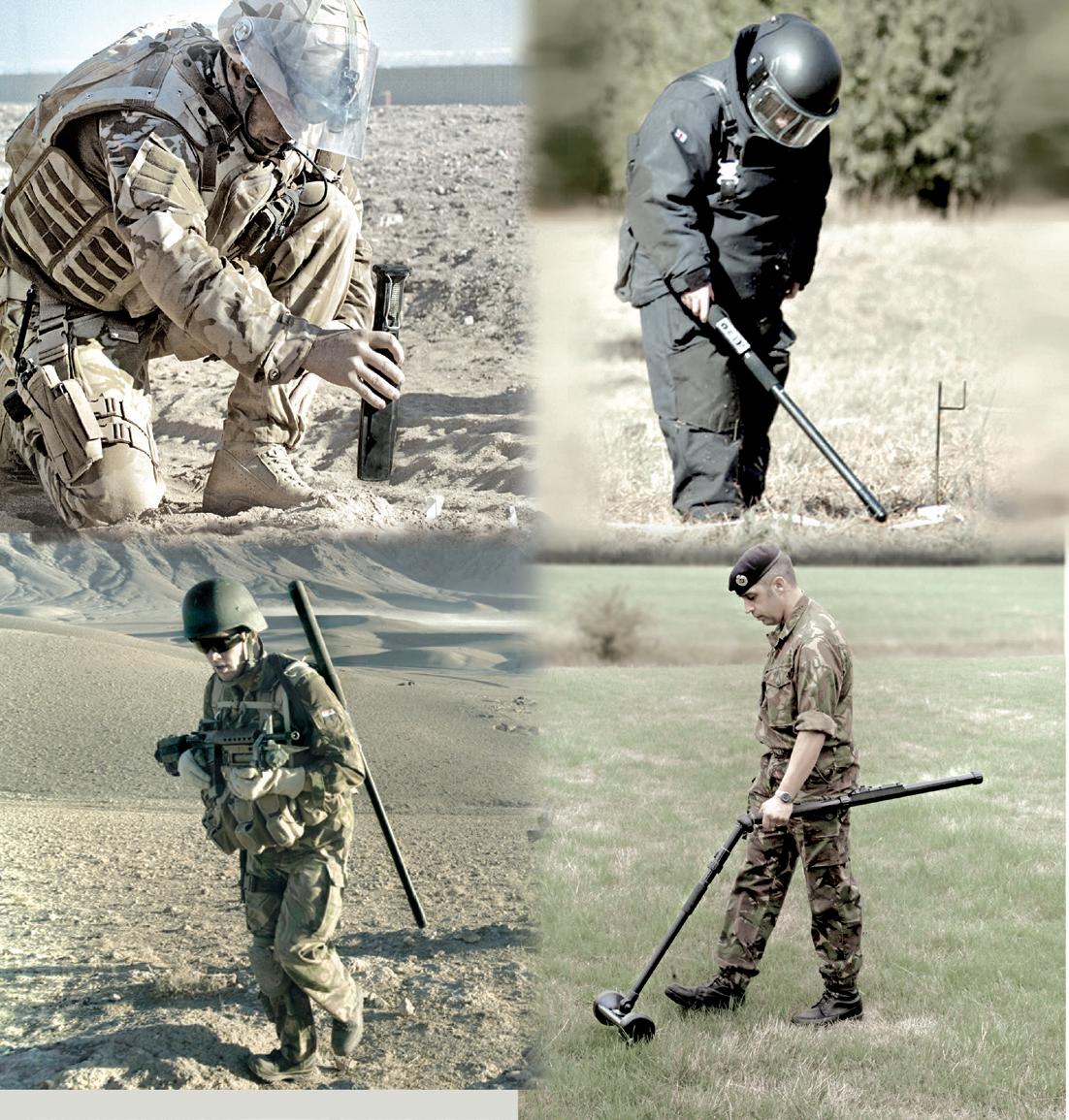
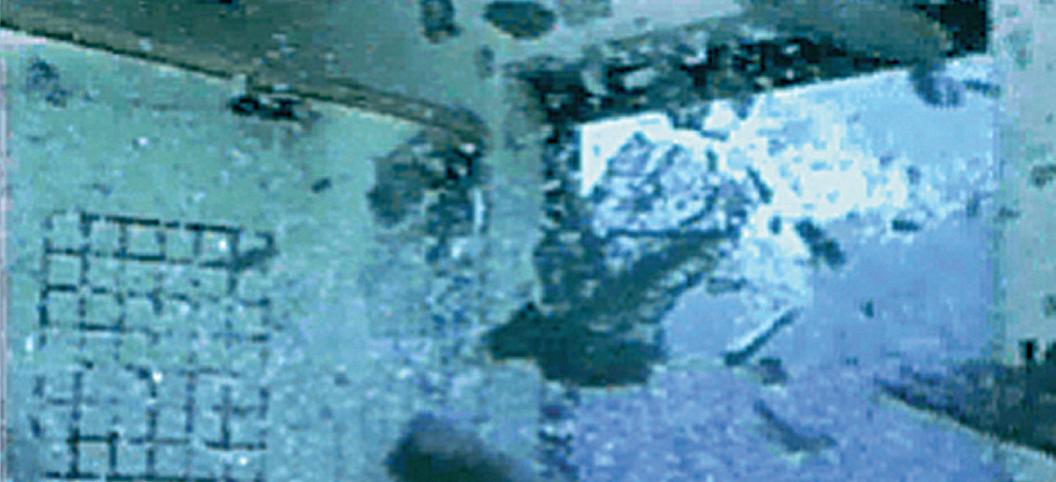
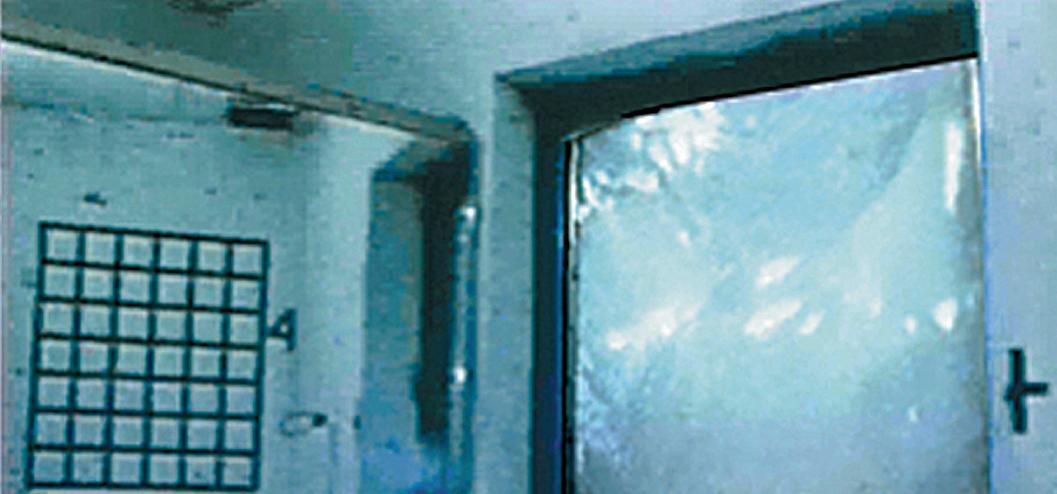
For details call 0118 989 5200 or email to mail@durable.co.uk or visit h�p://www.durablecommercial.co.uk/index.php/bomb-blast CONTAINS glass in the event of an explosion dramatically reducing the risk from flying glass and limiting collateral damage.


US ON STAND I28 AT


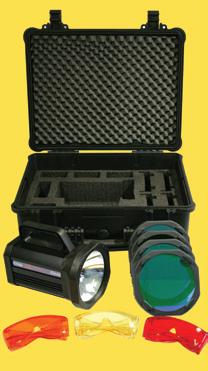

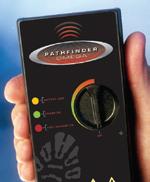
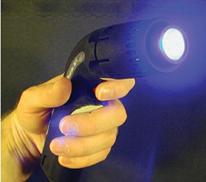



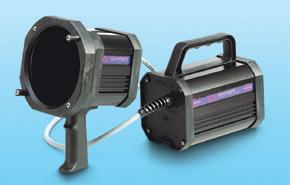


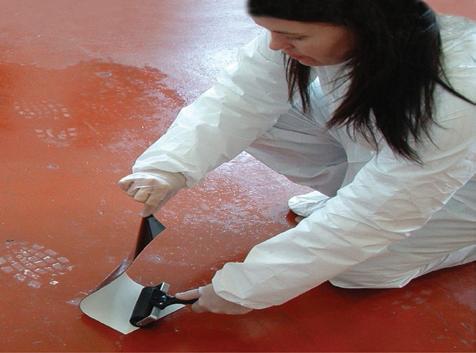
R&T LTD IS A LEADER in intelligent surveillance systems for Homeland Security. The full power of IT connectivity is realised through AR&T’s NetWatch® surveillance suite. Scaleable common architecture, thermal imaging, integrated video capture, video analytics, recording, transmission, monitoring and review, bring all the elements of CCTV surveillance into a single, easy to manage package, configurable to suit changing security requirements.
AR&T’s MIST® (Motion Image Separation Technology) provides NetWatch with a powerful function to detect intruders under all weather conditions on land, sea and air. Using thermal imaging cameras, and new image-processing techniques, the system alerts operators when objects, of pre-defined sizes, enter protected areas. Using distributed intelligent
‘outstations’; a MIST system can protect compounds, airfield perimeters, and country borders. The system uses ‘Virtual Tripwires’ drawn into the video image. All objects detected by the TI cameras are tracked; any that meet predefined criteria and cross the virtual tripwires raise an alarm.
The NetWatch suite also includes facilities for video data protection, archiving, editing, enhancement and evidence submission management.
In use by government, military and major utility companies with over 1,000 installations, NetWatch is established as a reliable and effective system contributing to the fight against terrorism and crime.
FOR MORE INFORMATION
Tel: 01623 477320
Fax: 01623 477322
E-mail: sales@ar-t.co.uk
Web: www.ar-t.co.uk

THE UK REMAINS A major terrorist target and it is thought that more than 200 terrorist cells with racial, political or cultural issues are active in the UK.
The common form of attack is arbitrary bombing implicating innocent people. In the event of an explosion in any builtup area 90 per cent of injuries and fatalities result from flying glass travelling at up to 40 metres per second.
Durable Limited advices organisations on the installation of antifragmentation window films based on their knowledge of blast dynamics around buildings and how they affect different glazing configurations.
High technology antifragmentation window films contain glass and absorb the energy following an explosion reducing the risk to people and of collateral damage. As such window film is the basic
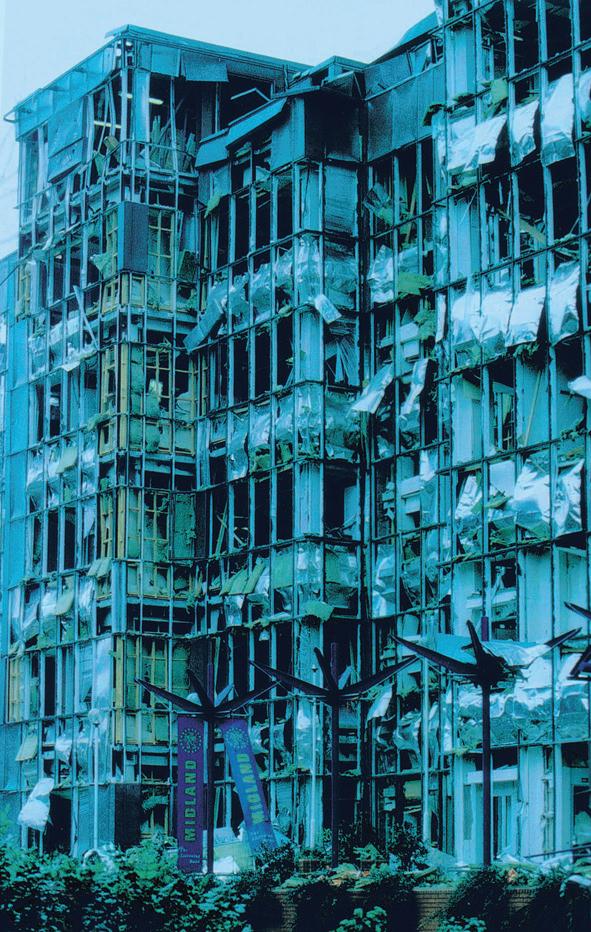
of protection for any building which could find itself at risk.
FOR MORE INFORMATION
Tel: 0118 989 5200
Fax: 0118 989 5209
E-mail: mail@durable.co.uk
Web: www.durable.co.uk
CRIME SCENE Investigation Equipment Ltd (CSI) have always specialised in the manufacture and supply of forensic equipment for the Investigator.
Our commitment to the recovery of evidence extends from the tips of fingers to the soles of shoes. Amongst our many products is our unique fingerprint powder ‘Magneta Flake™’. Listed as a Millennium product, this powder, the development of which was funded by the British Home Office, researched by Swansea University and exclusively manufactured by CSI, is now the powder of choice for the discerning Forensic Investigator.
‘Pathfinder’, our revolutionary compact Electrostatic Dust Print Lifter without doubt the safest ESL unit available today, has become standard issue for Law Enforcement Personnel. Developed in association with Leicestershire Constabulary in the United Kingdom and the Taipei City Police, Taiwan we are now offering

‘TreadMark™’ our Forensic Identification System that can hold records of Footwear, Tyre-Track, Tool Marks, and Glove Marks. An extremely effective, affordable product, available as a networked or standalone system designed to analyse and compare scene marks. ‘TreadMark™ has been developed for those Agencies serious about the investigation of crime. As criminals increasingly become more sophisticated and crimes such as terrorism try to slice through our cultural harmony, Law Enforcement Departments looking for cutting edge equipment can do no better than contacting CSI.
FOR MORE INFORMATION
Tel: 01908 58 50 58
Fax: 01908 58 50 51
E-mail: sales@csiequipment.com Web: www.csiequipment.com
PELI REMOTE AREA
lighting systems, torches and protector cases are widely used throughout the emergency services.
Those who demand reliability, performance and durability in all the equipment they use, find Peli products perfect for use in the harshest of operating conditions.
Peli cases offer watertight, dustproof and crushproof equipment protection in 37 sizes. Peli cases are tough providing essential protection while transporting fragile or expensive equipment.
Peli’s remote area lighting systems are designed to provide portable, instant light where there is no mains power.
Ideal for security services, these rugged products offer powerful, rechargeable, LED lighting for remote locations. They can be used for forensic investigations, search and rescue and illuminating remote field operations.
The larger RALS units are self contained systems housed within
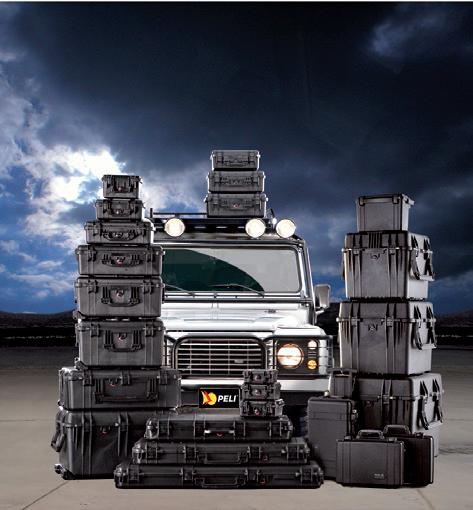
a wheeled Peli Protector Case for easy transport. They offer a choice of up to four heads to illuminate the required area.
New for 2010 – Peli Shelter lighting is a self contained kit comprising three independently switched light heads offering instant illumination for a temporary shelter.
Peli torches are compact, rugged lightweight and designed for professional use. The range includes helmet/ head lamps, rechargeable torches, tactical LED versions and hands-free torches.
FOR MORE INFORMATION
Tel: 01457 869999
Fax: 01457 869966
E-mail: sales@peliproducts.co.uk
Web: www.peliproducts.co.uk
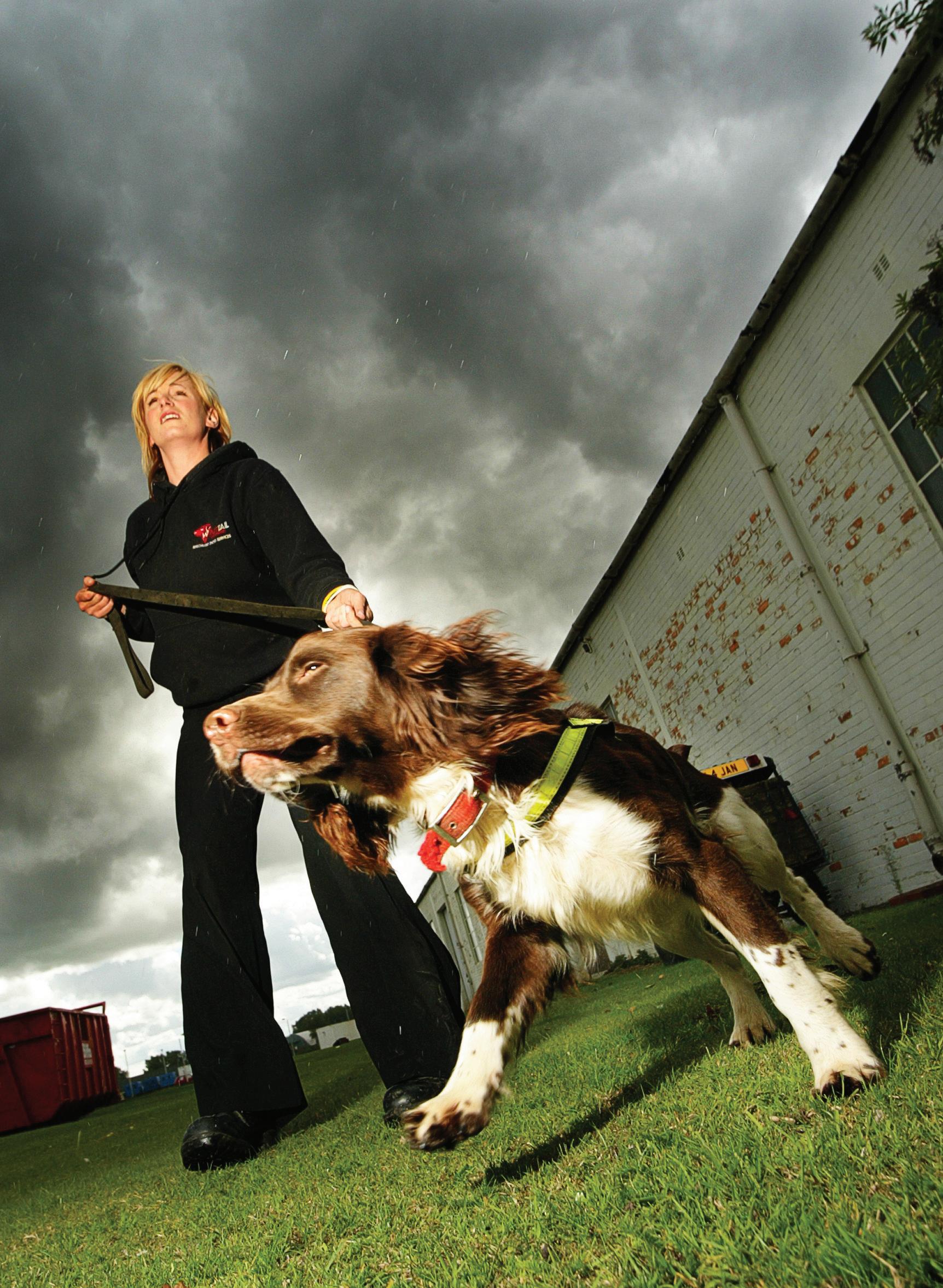



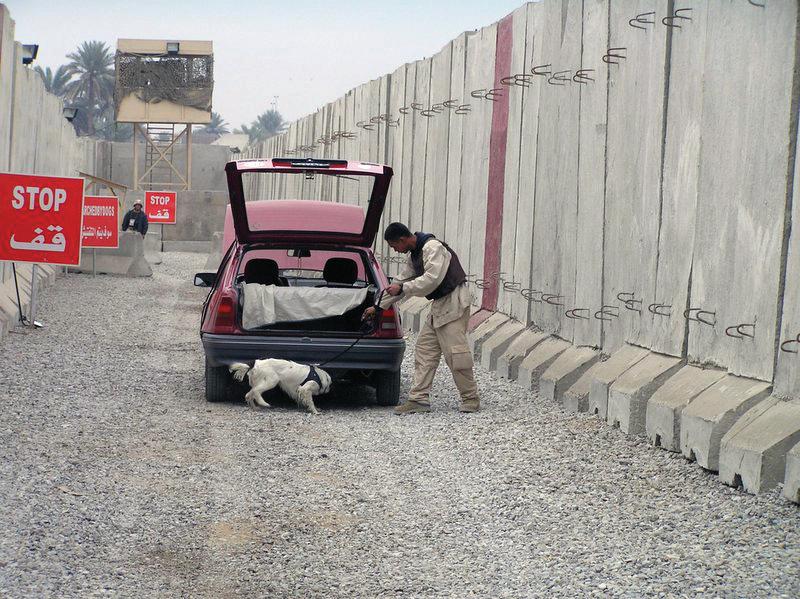
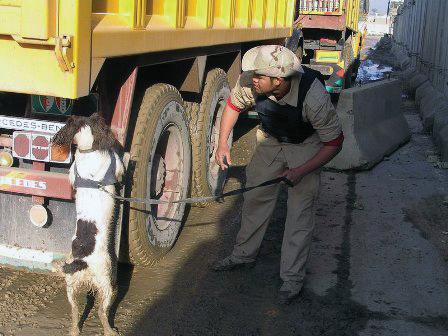
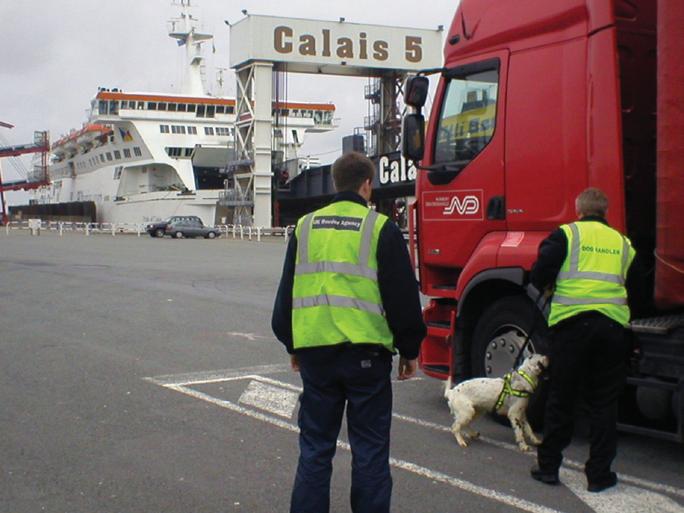
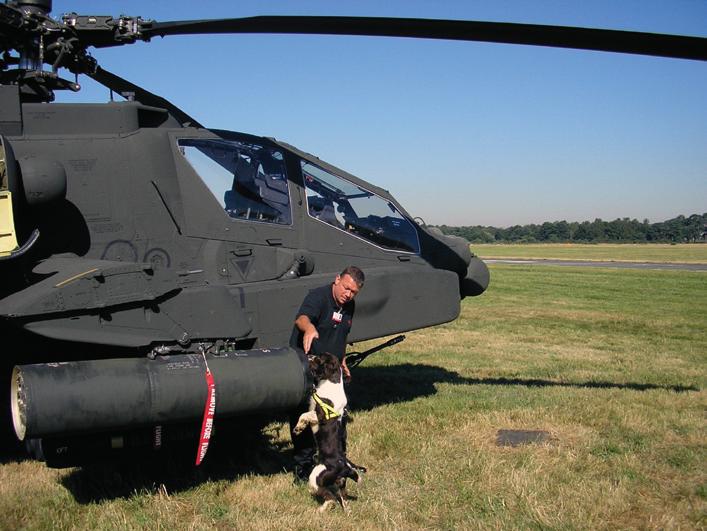


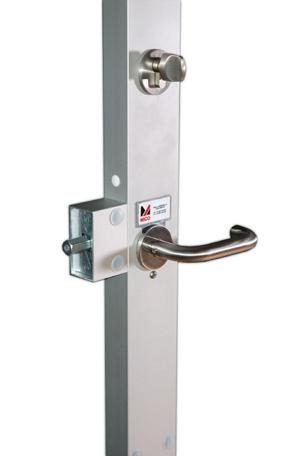
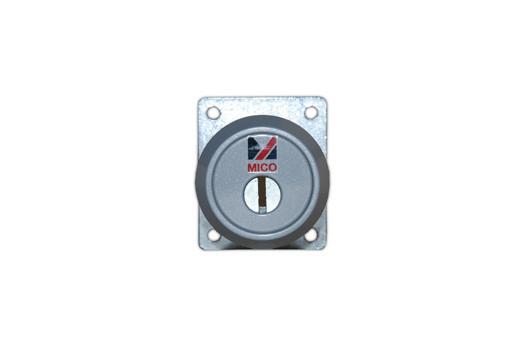
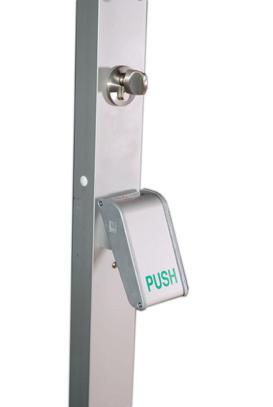
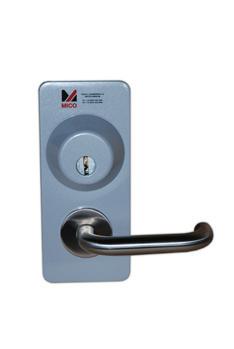
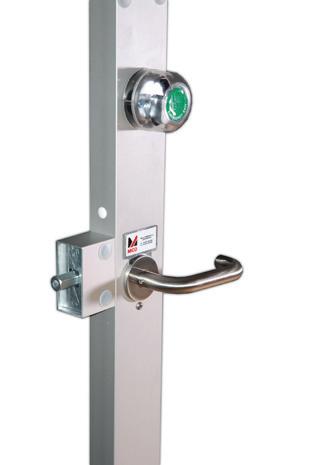
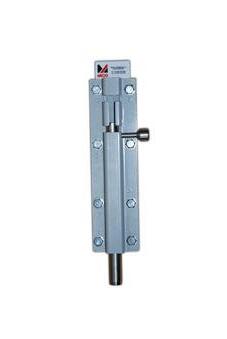
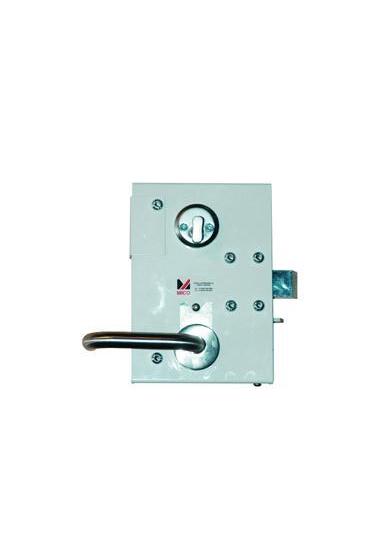

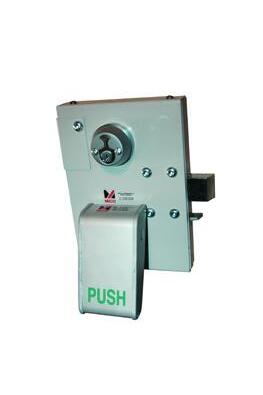
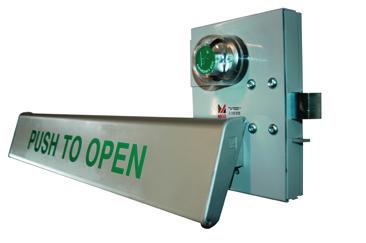

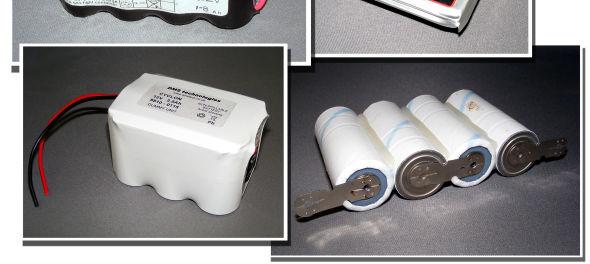
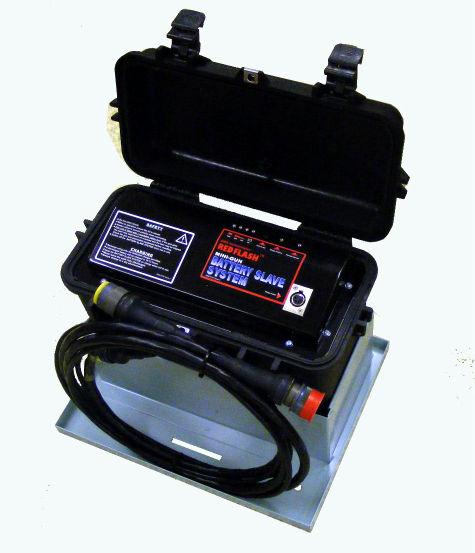

Jabil provides comprehensive electronics design, production and product management services to a wide variety of technology companies. Jabil’s UK site in Livingston, Scotland specializes in high-complexity, low-volume for a range of industries, including medical, industrial, aerospace and defence. The facility is structured for companies seeking a local or regional EMS provider, offering the full range of electronic manufacturing services for local industrialization. The site applies lean manufacturing principles, driving waste - and cost - out of manufacturing.
Contact: Martin Gaffney, at + 44 1506 447385 Martin_Gaffney@jabil.com Jabil Livingston, Oakbank Park Drive, Mid Calder, Livingston , EH 53 0TJ, Scotland
BI-STEEL IS A CORUSpatented composite that offers unrivalled performance in the most demanding applications. The material is made by connecting two plates of steel by an array of friction welded bars to form panels, the void between them being then filled with ready-mixed concrete.
Corus has worked with government and industry to deliver hostile vehicle mitigation schemes to protect from terrorist car or truck bomb attack at sites across London, including Palace of Westminster and New Scotland Yard, and the recent Whitehall Streetscape Project currently underway in Westminster. Bi-Steel is also being used to protect other high profile government and commercial facilities in the UK and overseas. This includes protecting major UK airports, cash distribution centres, military bases and Government Embassy perimeters.
Bi-Steel is ideal for the following: Blast protection.
Bi-Steel is used to create blast

protective structures (complete buildings or protected areas within a structure), blast walls and blast containment areas.
Perimeter and stand-off protection. Bi-Steel perimeter and stand-off hostile vehicle mitigation solutions, including permanent anti-attack vehicle walls and bollards, and re-deployable antiattack vehicle barriers, are designed to provide robust physical protection against attack by VBIED. They have been extensively tested and meet the performance standards of PAS 68:2007.
FOR MORE INFORMATION
Tel: +44 (0) 1344 751670
Fax: +44 (0) 1344 751671
E-mail: bi-steel@ corusgroup.com Web: www.corussecurity.com
THE PROTEK Blast Bags are a great innovation in the field of blast protection. The Protek Blast Bags are lightweight weighing only 200 grams when dry and increase to 23 Kilos when wet. They greatly reduce “throw out” when used in blast situations including, the detonation of IED’s and safe detonation of “Blinds”. They can be used in conventional demolitions or for operator safety when preparing detonators. The bags can be used for Forensic Collection on Pipe Bombs et al. The bags also have ballistic use and can stop an AK47 round (7.62mm) in only two bags and keep the round completely undamaged which is good for forensic applications. We have tested

a Glock 19 stopped in 1.5 bags fired from 30 feet. A Bushmaster stopped in two bags fired from 52 feet and a Signard Sniper rifle stopped in two bags fired from 52 feet. Overall a fast and easy use low tech piece of kit for rapid deployment and easy logistical application.
FOR MORE INFORMATION
Tel: 0044 (0) 5602 097 620 Mobile: 0044 (0) 7971 017689
E-mail: a.anderson@ protekriskuk.com Web: www.blast protection-protek.com
ORLDWIDE TERRORIST events have resulted in HM Government to issue a ‘Safer Places’ Consultation Document under their CONTEST strategy, with Pensher Skytech ideally placed to offer expert advice and planning design to overcome the potential threat from forced entry, fire, bullet and/or bomb blast attack in these situations.
Recent prestigious projects have included bomb blast resistant entrance portals to one of the world’s most high profile and busiest airports, bullet resistant windows to foreign embassies, London, plus various military and petrochemical projects, and 2No current highly sensitive projects in Afghanistan for both an ISAF Coalition Government plus International Peacekeeping Agency, where in the event of blast, the threat level could be classified as severe.
6

Under bomb blast conditions severe damage is caused through flying glass but it is not simply a case of using safety film or laminated glass to overcome this, since incorrect and inadequate framework/ installation can permit the entire window to become a projectile or worse still cause structural damage and potential building collapse.
Pensher Skytech enjoys the capabilities and expertise to ensure that all product designs are fully compatible to approved BSEN Standards to meet the ever changing and increasing threat from terrorist attack – wherever.
FOR MORE INFORMATION
Contact the Sales Team Tel: 0191 4380 455 E-mail: sales@pensher.co.uk Web: www.pensher.co.uk
in all types of radio, telephony and satellite communications for both voice and data. We specialise in covert communications installations in both vehicles and fixed locations.
Our knowledge of the communications requirements of our clients ensures that we can always provide a solution that is relevant to the operational situation, regardless of where in the world they are located. From concept to realisation, our expertise will ensure that your communications needs are professionally assessed and delivered. The earlier in the planning process that you involve us, the better is your chance of implementing a cost effective and operationally functional network.
Our engineers are highly experienced and all hold security clearance at SC or above. Many are ex-military with Special Forces experience or have spent time working overseas in hostile

environments with organisations such as the UK’s Department for International Development and the United Nations.
Our services include: Network design and management, frequency planning, bid support, technical evaluation, network maintenance, helpdesk 24/7, customer intranet, installation services, covert vehicles, standard vehicles, C2 (command and control) vehicles, base stations, video and surveillance vehicles, training, technical and engineering management, system planning, installation training covert and standard, operator training, system or product specific training.
FOR MORE INFORMATION
Tel: 01454 610050
Fax: 0870 7622167
E-mail: andrew@g6-global.com
Web: www.g6-global.com

Liddle Doors Limited are the established Leaders and Innovators of High Security Steel Certified Products. Providing bespoke Steel Security Solutions to the industry over the last 30 years. Products tested and independently certified by LPCB to the Loss Prevention Standard LPS1175 Issue 6, Security Ratings Levels 2, 3 & 4.
Design, manufacture and installation of:
• Steel Security Doorsets
Security Ratings Levels 3 & 4
• Steel Security Bottle Storage Frames
Security Rating Level 2
• Steel Security Barsets
Security Ratings Levels 2 & 3
• Steel Security Boxes
Security Ratings Levels 2 & 3
Liddle Doors are constantly developing and testing security products to meet the demand of the industry.
LIDDLE – SPECIFY WITH CONFIDENCE
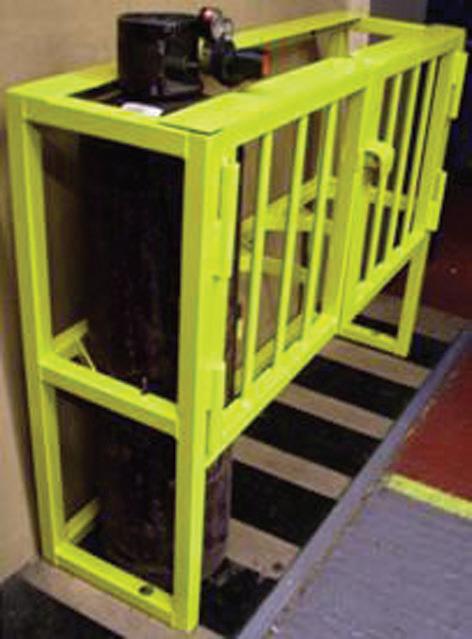
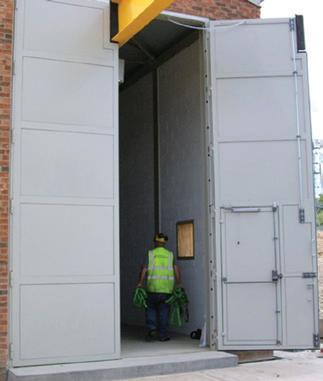
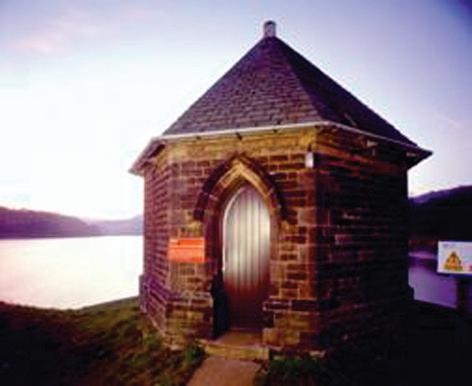
NE31 1SP
0191 4835449 Fax: 0191 4890698 sales@liddledoors.co.uk www.liddledoors.co.uk

Corus Bi-Steel
Tel: + 44 (0) 1344 751670
Email: bi-steel@corusgroup.com
Web: www.corussecurity.com
Bi-Steel is a Corus-patented construction material comprising two steel plates that are permanently connected by bars to form panels, which are then filled with ready-mixed concrete. The resultant Bi-Steel panel is ideal for situations where superior protection against explosive blast or vehicle bomb attack is required.
Bi-Steel is currently specified for UK and US Government protected buildings work. It also meets the requirements of the UK Government and police for antiattack vehicle barrier systems and has successfully met the performance requirements of PAS 68.
Bi-Steel is available for the following uses:
1. To control vehicle access and protect from vehicle borne explosive (VBIED) attack
• Bi-Steel redeployable anti-attack vehicle barriers - these redeployable surface mounted units are ideal for use on a temporary basis at major events or where perimeter security layouts might need to be changed in the future.
• Bi-Steel bollards and wall systems for permanent perimeter protection - these provide enhanced protection at key site perimeters. Due to Bi-Steel’s high strength, its bollards and walls require minimal foundations. This reduces the need to re-route local under-surface utilities, facilitating faster installation and minimising disruption.
2. To provide blast protective structures
• Bi-Steel panels can be used to construct complete buildings, or to create blast-protective areas within existing structures, eg communications centres, temporary refuge areas, or exit/entry and evacuation routes.
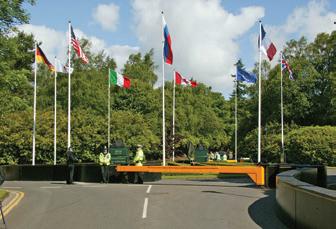
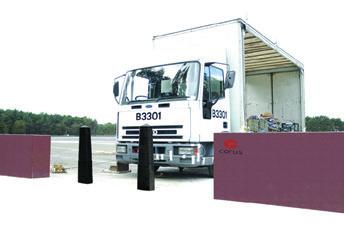



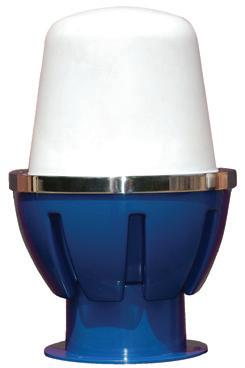
Manufacturers & Installers of Steel Fire, Security & Industrial Doors & steel Louvre Systems
The ExecDoor®R2, ExecDoor®R3 and ExecDoor®R4 are ranges of single and double leaf security steel doorsets to be utilised in situations where security is of paramount importance such as protecting MOD premises, strategic utility buildings, police stations, banks, building societies and high value retail. Available in a wide variety of locking options suitable for personnel access as well as panic and emergency escape.
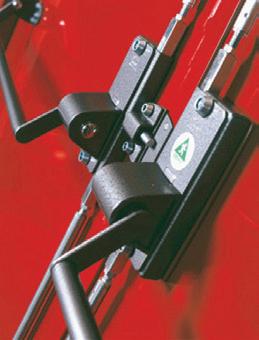
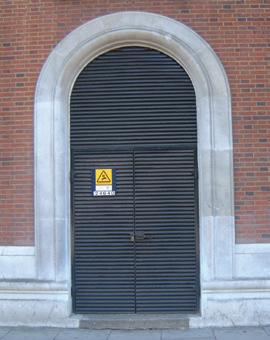







ALLIFORD TRY
Infrastructure Security (GTIS), part of Galliford Try Plc with revenues of circa £1.4 billion, has over 10 years experience in the design, construction and installation of security solutions across the UK. With our excellent project management capability, and using expertise from traditional contracting with the application of our specialist skills and experience with strategic partners, GTIS is well positioned to meet the demands and needs of our clients.
Understanding the specific security and operational requirements is fundamental in the ever changing markets in which our clients operate. We have built our success on values that provide an open and trustworthy approach. Our client base extends across all nine Critical National Infrastructure sectors and we pride ourselves on the high levels of cooperation and partnering we establish with our customers and

supply chain partners.
Our skills in the planning and delivery processes together with our technical knowledge and experience enable us to undertake full turnkey services including; strategy alignment, security vulnerability/operational impact assessments, and design and construction services for Critical National Infrastructure assets to internationally recognised standards. Whatever your security requirement, Galliford Try Infrastructure Security can help. Visit us at Counter Terror Expo, stand G75.
FOR MORE INFORMATION
Tel: 01455 222792
Fax: 01455 222758
E-mail: security@ gallifordtry.co.uk Web: www.gallifordtry.co.uk
UARTEL TECHNOLOGIES
Ltd is an established company which has built its’ reputation on the design, development and manufacture of high quality, professional metal, mine and cable detection equipment.
Key Counter IED and Search Products – WD100 Cable Detector. The WD100 Cable Detector is the only commercially available detector specifically designed to detect surface laid and buried command wires used to initiate Command Wire Improvised Explosive Devices (CWIED).
MD4 Metal Detecting Probe. The MD4 is used by many NATO countries, it is rugged and simple to use The detection capabilities allow the operator to locate small targets and to gauge the depth and size of objects such as victim operated switches. MD4 is self calibrating with operator zeroing function.
HD6 Hand Held Metal Detector. The HD6, is rugged and simple to use, the HD6 is weather
ROTEL SOLUTIONS is a leader in the provision of mobile surveillance solutions, combining the very latest technology from the fields of mobile telecommunications to secure store-andstream media appliances. ProTel Solutions specialises in providing cutting edge security and telecom solutions for military, government and security requirements for worldwide deployments.
ProTel’s solutions are portable, mobile units that deliver live images directly to a PDA, PC, laptop or dedicated monitoring system via a 3G mobile phone technology, broadband and wireless LAN networks, free from most geographical restrictions.
ProTel Solutions offers
overt and covert mobile awareness and tracking solutions. Our solutions can be located anywhere, can be worn or fitted to vehicles, making our solutions ideal for fixed or mobile surveillance requirements for government or commercial applications.
FOR MORE INFORMATION
Tel: +44 (0)845 057 0176
Fax: +44 (0)8714 339 296
E-mail: enquiries@ protelsolutions.co.uk
Web: www. protelsolutions.co.uk
resistant and can be utilised indoors or out doors. HD6 can be used for person search and also IED target confirmation.
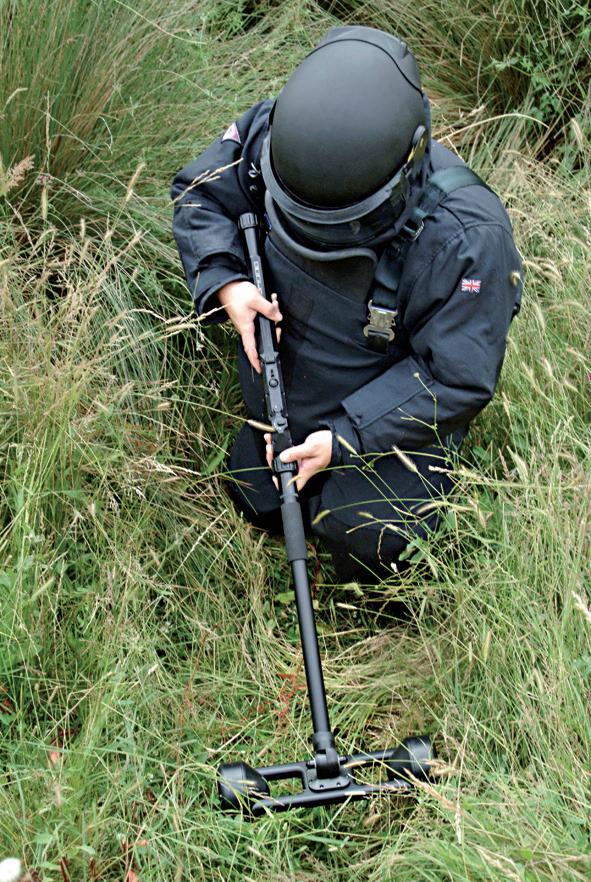
Metal Detector, designed at the request of a military client, the HD7 retains all the capabilities of the HD6 with the addition of selectable alarm modes: silent vibrate, audio, visual/audio.
Future Projects – Passive/ Active Command Wire Detector, Compact Mine Detector.
FOR MORE INFORMATION
Tel: +44 (0)20 7384 3001
Fax: +44 (0)20 7610 6856
E-mail: info@guartel.com
Web: www.guartel.com
FS WAS FOUNDED in 2003 and began research into through-water and through-ground RF communications and sensing in 2004. The Headquarters is in Livingston near Edinburgh; with offices in Washington DC, Houston, Aberdeen and an R&D office in Belfast.
The company is the world’s leading developer of throughwater and through-ground electromagnetic (EM) communications and sensing products. With over 60 patent applications filed in Europe and North America, our revolutionary products deliver cost savings and new capabilities to the Homeland Security & Defence, Oil & Gas and Environmental & Industrial industries.
WFS’s wireless communications technology enhances defence systems by delivering real-time data transmission through water and through ground. WFS radio modems will pass through concrete, rock, mud, earth and hitherto impenetrable materials, and into the air to provide secure communications. This removes the need for

impractical cabled solutions and enables such applications as emergency communications in underground public transport networks, and extending Network Enabled Capability into underground sensors. For through-water applications data transfer is unaffected by harsh weather conditions or ambient noise and will operate in shallow and congested waters and also support data transmission across the water/air boundary, thus enabling communication in complex environments such as ports and harbours, estuaries, and waterways.
FOR MORE INFORMATION
Tel: 0845 862 1589
Fax: 0845 862 6601
E-mail: vince.dobbin@ wfsdefense.com
Web: www.wfsdefense.com



























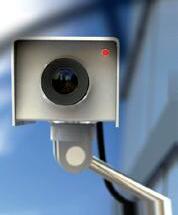

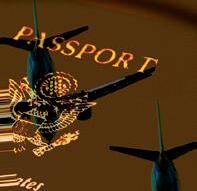








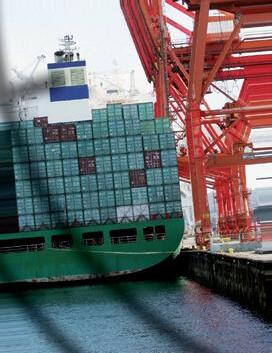
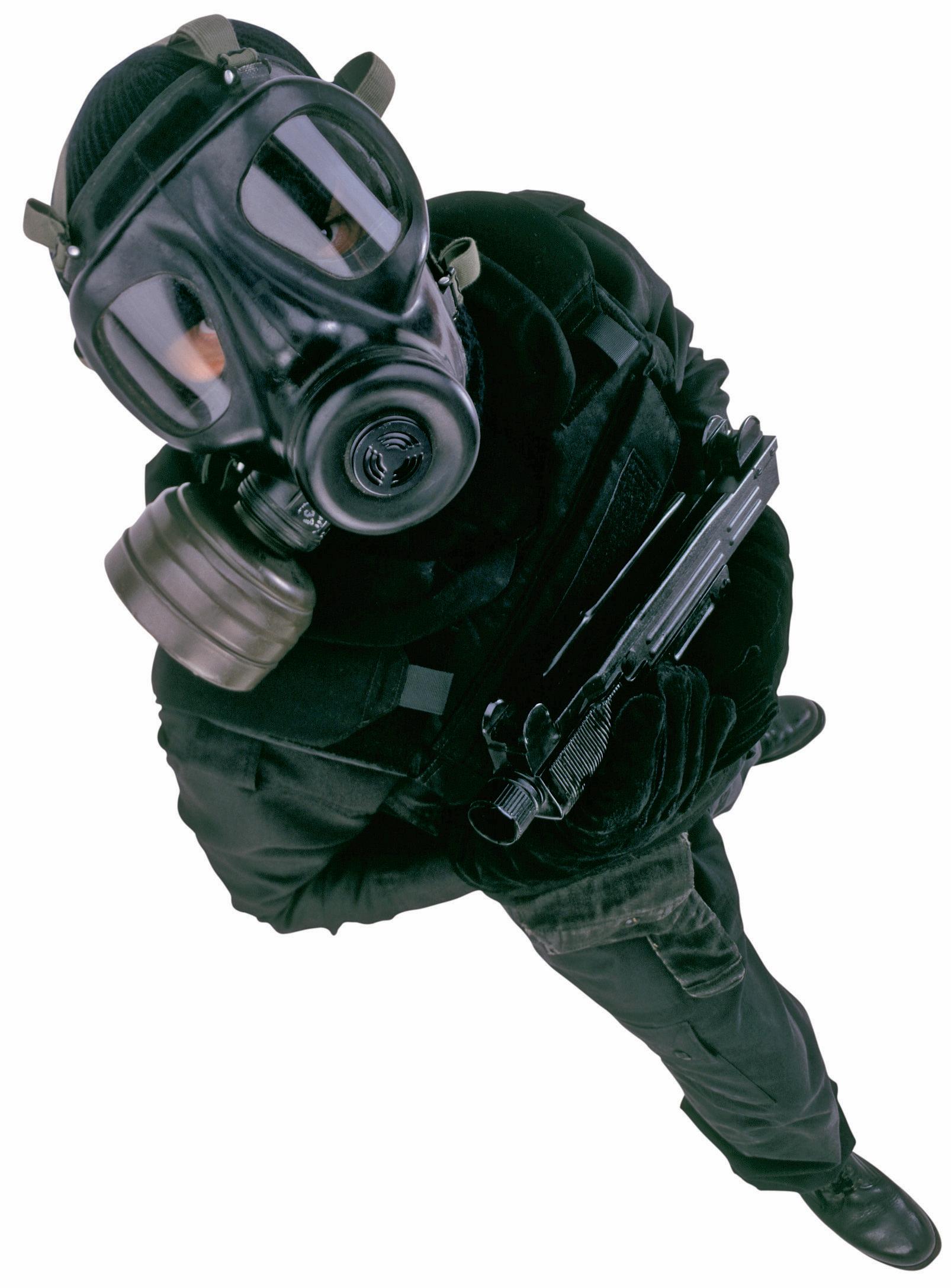

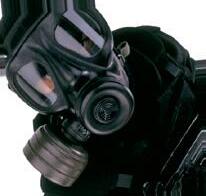












































REMPLOY
FRONTLINE
is an international leader in the design, development and manufacture of chemical, biological, radiological or nuclear (CBRN) personal protection equipment (PPE) and is the sole supplier of CBRN suits to the UK Armed Forces, it is also at the forefront of several governments’ war on terror.
The company has been a long-term provider of CBRN PPE to military and emergency personnel worldwide, and has delivered more than 35,000 three-piece CR1 suits to UK police forces over the past ten years. In September 2009 the UK Home Office awarded Remploy Frontline a £14.75 million contract to fulfil its Quick Don tender with its Swift Responder 3 (SR3) suit that will supplement and to some extent, replace the CR1. We believe that we have
breached a technology barrier with the SR3, a significantly lighter weight and ergonomic CBRN garment that can be donned in under five minutes whilst providing maximum protection.”
The SR3 suit uses the material innovations from UK-based W. L. Gore & Associates (UK) Ltd, to deliver protection against chemical and biological warfare agents and toxic industrial chemicals to the UK’s police forces trained to handle CBRN emergencies.
FOR MORE INFORMATION
Tel: +44 (0)845 241 2990 E-mail: frontline@remploy.co.uk Web: www.frontline. remploy.co.uk
FIMS IN CONJUNCTION with Mirion Technologies provides inspection and measurement capabilities for UK defence and homeland security agencies offering a range of products and services addressing radiation measurement, radiological protection requirements.
JFIMS has the capability to deliver comprehensive service and support to ensure the maximum value is obtained from hardware. JFIMS staff can support products throughout their lifecycle, from installation and commissioning, warranty support, calibration, planned and breakdown maintenance, spares provision and integrated logistical support. Specialist products for military and civil defence users include appropriate personal dosimetry and hand-held search and frisk probes for detecting, locating, identifying and classifying radioactive material. For largescale emergencies, ruggedised

and transportable portal monitors and body contamination monitors can be used to screen large numbers of individuals. Human and vehicle portal monitors are also appropriate for surveillance of people and vehicles entering and leaving key facilities or transport hubs.
JFIMS has experience in supporting the specific challenges of radiation protection in the military environment with rugged and dependable radiation detection and measurement equipment (RDME) and support services. JFIMS supplies the SOR/T military dosimeter and its associated reader and software currently in-service. JFIMS also supplies the RDS200 rate meter and associated probes used in the New Dimension programme.
FOR MORE INFORMATION
Tel: +44 (0)1244 520058
Fax: +44 (0)1244 535440
E-mail: contact@jfims.co.uk
HIGHLY SECURE, very effective yet simple and cheap solution. Can this be true? Absolutely, say the manufacturers of Label Lock™.
A host of features hidden in these security labels means they cannot be replicated, but are easily monitored. This saves hours of productive time and money for airports, airlines, buildings and perimeter managers – and provides peace of mind for anyone who comes across them. ‘Just Label Lock™ and leave’. The website www.labellock.com tells you the rest, and includes a helpful video of the labels in action.
So what are the security features? Most so-called ‘security labels’ are made from a bulk supplied that usually just consists of a wallpaper ‘void’ text. Such materials are widely distributed, so easily obtained by fraudulent printers. Label Lock™ labels have a clear border, as well
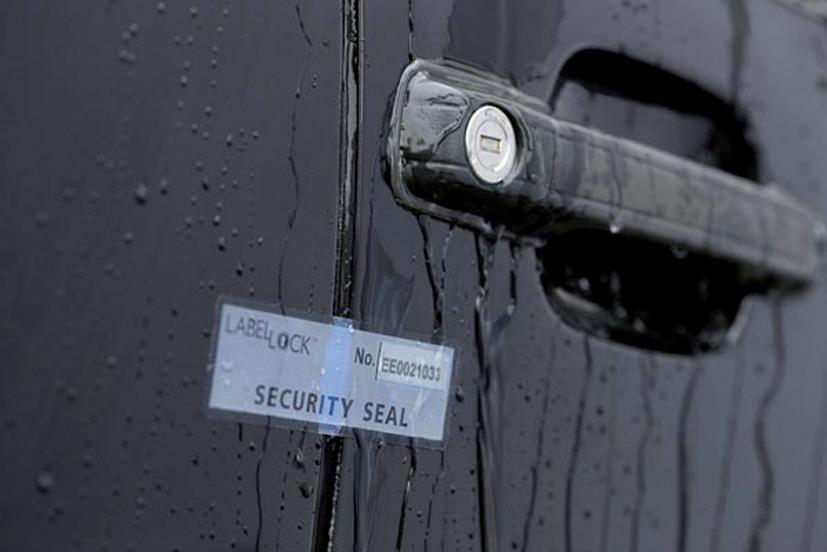
as a unique coded sub-surface printed number – and no ‘wallpaper’ void text, making it impossible to construct from bulk rolls of material. Use ‘NO RESIDUE’ to protect aircraft, doors, hatches and panels. Use ‘DUAL LAYER’ for documents, seals, plastic bags, forensics and disposables. Many more covert or overt features can be incorporated for custom designs. Simple but effective. Just Label Lock and leave!
FOR MORE INFORMATION
Tel: +44 1543 431099
Fax: +44 1543 431077
E-mail: sales@securitylabels.com
Web: www.labellock.com
ITH IMPROVED physical security becoming a key requirement for various facility types Sunray is proud to be a market leader in the design, manufacture, supply and installation of steel commercial, industrial, security and fire door systems. The company has an extensive client base throughout the UK ranging from MOD, hospitals, schools, utilities, data storage and laboratories.
Established for almost 30 years the company holds LPS1175 Security Rated 3 (also available with vision panel) and Security Rated 4 steel security doors with one of the most comprehensive ranges of locking options available in the marketplace today. Growing demands of clients and the market has lead Sunray to develop a Security Rated 4 door with 4 hour fire rating and also a range of Security Rated 2 steel security doors. These additions will complete a range of security rated steel doors that can cover the exacting
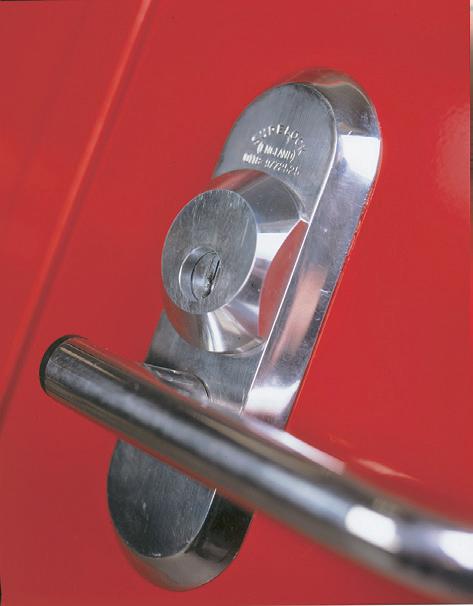
requirements of clients, which is further supplemented by offering an installation service (certified to LPS 1271) – making Sunray an open and shut case for Security Rated 2, 3 and 4 steel doors. They are proud holders of ISO 9001, 14001 and 18001 together with being an ACPO “secure by design” license holder and members of ADS.
FOR MORE INFORMATION
Tel: 01233 639 039
Mobile: 07748 967 620) Fax: 01233 625 137
E-mail: robert.playford@ sunraydoors.co.uk
Web: www.sunraydoors.co.uk

HETHER ON LAND or at sea, satellite broadband delivers reliable and resilient communications in locations where traditional GSM and terrestrial networks are unavailable due to geographical or coverage constraints, network overload or even failure. It provides access to high speed broadband services enabling real-time voice, data and video information to be securely shared with Gold Command to achieve a common operating picture.
Founded in 2001, Excelerate Technology has become the leading supplier of voice, data and video solutions to the emergency services and other government agencies using satellite and wireless-based technologies. The company provides a range of core solutions and services that deliver significant benefits to counter terror operations enabling personnel to maintain access with other security services and responders regardless of location. These satellite and wireless-based solutions will ensure that effective operational decisions can be made using the latest information or intelligence from around the world.
Excelerate Technology has extensive operational expertise and proactively works in partnership with customers on every project. The company also maintains close working relationships with leading specialist coach builders which have been key partners in delivering a wide range of mobile incident command units and rapid response vehicles that are now in daily use by police, fire and ambulance services as well as local and central government departments across the UK.
Excelerate Technology is the exclusive technology supplier nationally for the Department of Health’s HART programme, which is delivering a new generation of civil contingency vehicles. Throughout, Excelerate has actively recommended new and innovative approaches that would provide a comprehensive, joined up operational picture of all functions associated with major incidents and enable command decisions to be clearly and effectively communicated. HART vehicles have already been deployed at many major incidents including the recent floods in Cumbria.
Excelerate is committed to designing and delivering solutions that meet specific customer requirements. According to Nick Smith, group manager at West Yorkshire
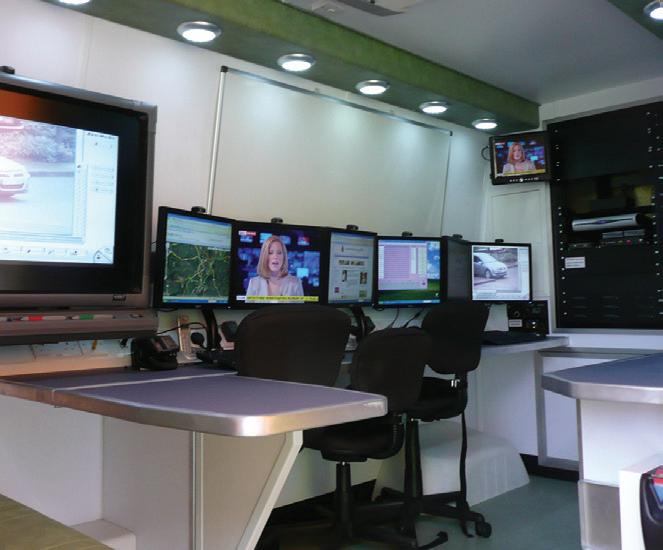
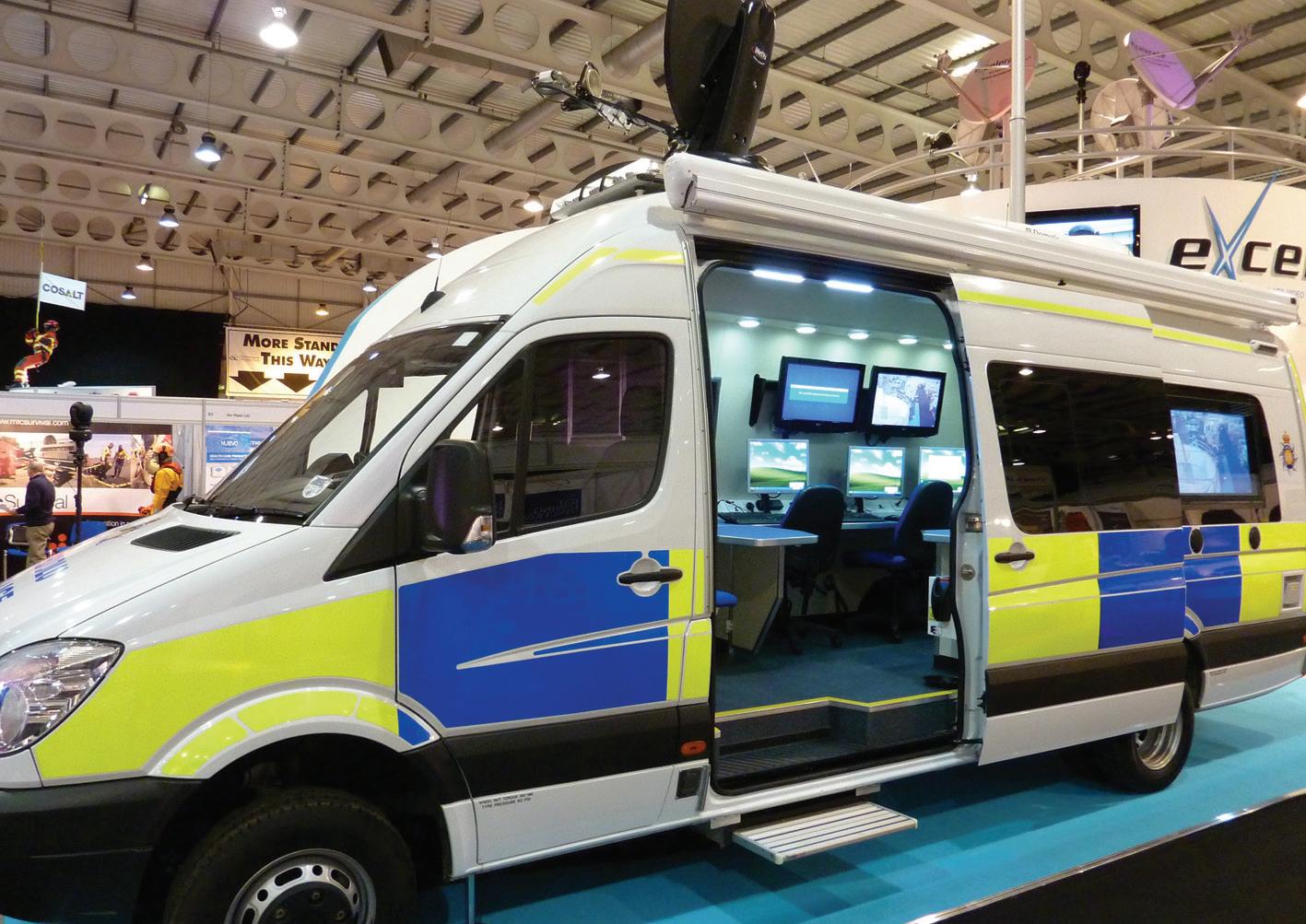
Fire and Rescue Service, which is about to take delivery of a new command vehicle: “Our new command unit was developed in partnership with Excelerate Technology who provided important advice on the technologies that would deliver the greatest operational benefits. It will empower commanders to make faster, more effective decisions and enhance the management of major incidents throughout West Yorkshire.”
This view is supported by Simon Leonard of Gwent Police, which recently unveiled what is almost certainly the most advanced mobile ICU to be ordered by the UK’s police service to date. The vehicle provides a tactical silver command solution to ensure preparedness for all civil contingencies throughout the region and will also be deployed at public events such as the Ryder Cup and the Ebbw Vale Eisteddfod. He commented:
“We worked hand in hand with Excelerate Technology to develop an overall solution that has met all our tactical, strategic and technological requirements within available budgets. We are extremely proud of our new mobile ICU which will enable us to better serve our local community and improve public confidence in our work.”
Excelerate has also provided West Midlands Ambulance Service Trust with a new Mobile Emergency Operations Centre (MEOC) to further improve resilience and help achieve interoperability with other emergency services during major incidents. According to Daren Fradgley, Regional Head of Emergency Operations Centres at West Midlands Ambulance Service Trust: “The new MEOC allows us to set up a robust series of
command and control arrangements at any incident allowing seamless communications and live streamed pictures where appropriate both night and day to Gold Control and any EOC around the region.”
In these changing times, however, it is a fact that all this technology could be of little use if operators are incapacitated as a result of HAZMAT or CBRN incidents. Excelerate Technology is actively engaging in the wider area of operator health monitoring and protection to ensure continued operational effectiveness and is taking the same innovative approach that has already helped the company achieve so many technology firsts.
To provide the highest level protection, mobile ICUs and personnel are now being equipped with FAST-mask®, a new positive pressure breathing apparatus. This new mask is safer and delivers significantly higher levels of performance than commonly used escape breathing apparatus sets that are still based on national standards and designs from around 30 years ago. It automatically deploys to be operational within three seconds when needed and is expected to become an essential part of HAZMAT kits carried on mobile ICUs.
FOR MORE INFORMATION
Tel: 0845 658 5747
Fax: 08700 516792
Web: www.excelerate.info
E-mail: nicolas@excelerate.info
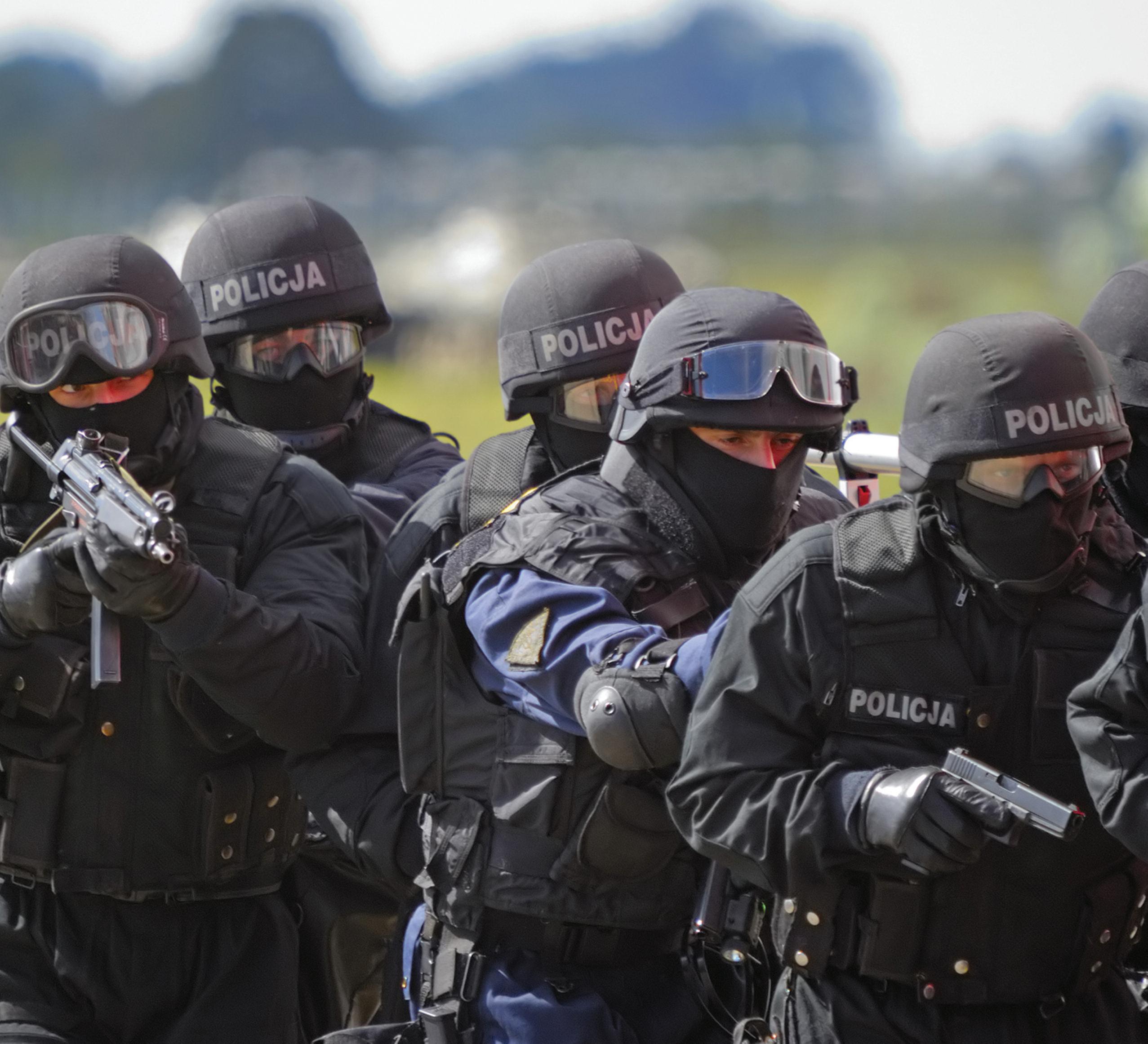
TOWARDS A NEW Dawn’ is the theme for the Annual International BAPCO Conference and Exhibition, taking place at the Business Design Centre in April. This leading educational event offers a unique insight into the future of integrated communication and information technologies designed to improve and deliver public safety-civil contingency services. The BAPCO conference welcomes keynote speakers from across the world presenting real life case studies, and futureview information, support and solutions to the challenges facing emergency planners and service delivery agencies.
CONFERENCE HIGHLIGHTS
Once again, the BAPCO conference features a dual stream format, offering a wide range of discussion under two key streams all with a highly educational focus. To support individual personal development and training programmes, all conference delegates receive a Certificate of Attendance. On day one of the conference, Tuesday 20 April, Julie Stinson, project manager, 5 Star Team, will present on the 2010 Winter Olympics Communications Planning in Washington State. Also on the Tuesday, Dr Ahmed Aldabbagh, principal engineer at QinetiQ will provide a background on SECRICOM, an EU funded FP7 research project addressing secure communications across all agencies involved in large scale crisis. The presentation will cover two aspects: (i) the work undertaken by
BAPCO and QinetiQ to establish the user requirements and capability shortfalls and (ii) the application of technologies to address these shortfalls, concluding with an illustration of how the implementation of SECRICOM can be achieved.
On Day two, Wednesday 21 April, Paul Holman, operations manager – Specialist Emergency response Department, Ambulance Victoria, will give an insight into Australia’s summer of 2009 entitled “Visited by Hell and all its Fury”. This presentation will outline the principles and key features of the Ambulance Victoria Emergency Response Plan in addition to its application in the Victorian Heat Wave in January 2009 and the catastrophic “Black Saturday” bushfire event of February 2009.
On Thursday 22 April sessions open with a presentation from Jeanette Innes, assistant director, Programme Manager for Telecommunications Resilience from the Civil Contingencies Secretariat Cabinet Office. Jeanette Innes will discuss in detail the relationship between the Cabinet Office and the Civil Contingencies Act.
Running alongside the conference, the free-to-attend BAPCO exhibition offers delegates and visitors from the emergency services, local and national governmental agency professionals and public safety officers the chance to see the future public safety communications systems, and technologies that will be shaping operations and facilitating
future inter-agency communication, from over 100 leading suppliers.
The latest in the Phonak product range of in-the-ear hearing protection products and specialist covert wireless earpieces, ideally suited for use by police, emergency services and industry will be available from new exhibitor Abiom Communications Systems. Abiom will also display the Phonak Profile zero interference covert earpieces, which could be of great benefit to undercover officers on trains and in cars.
Damovo UK will launch its Complete Online Digital Evidence System (CODES) which provides secure interview and evidential recording for the police, law enforcement and security services and aims to replace outdated analogue tape recordings and meet the National Policing Improvement Agency’s (NPIA) recommendations for ICT best practice. Microbus will display its latest in-vehicle computers designed to reduce road traffic accidents, as part of a new roadside initiative by Greater Manchester Police.
Radio Telecom Services Ltd, will be available to discuss its new appointment as distributor of the Infinity GPS Microphone from Kirmuss Associates of Colorado USA.
For the latest exhibition news, full exhibitor list and conference programme visit www.bapco.co.uk
FOR MORE INFORMATION
For more information and to register visit www.bapco.co.uk
Tis a leading global manufacturer and supplier of radio terminals, network equipment and accessories.
Tait’s digital and analogue VHF/UHF radio products and systems are designed to deliver communications for the most challenging operations – in the harshest environments. Our range of deployable and covert radio communications equipment is specifically designed for specialist operations, surveillance and emergency response situations – enabling emergency services, security professionals and armed forces in more than 100 countries to communicate quickly, efficiently and securely during mission critical operations. To ensure critical communications remain robust, Tait offers innovative and flexible support packages while our comprehensive encryption solutions protect your communications against
unauthorised listeners – when you need to keep vital information secure.
Tait’s analogue and digital solutions can be supplied with a range of encryption mechanisms designed to protect against unauthorised listening, hacking, spoofing and masquerading.
A number of encryption algorithms can also be fitted in our products, including customer/ country-specific algorithms if required.
Tait’s system design expertise and consulting services are available to ensure the complete integration of radio technology into your communications systems.
Because Tait solutions are based on global open standards they are readily integrated with a wide variety of dispatch consoles, mobile data, AVL/GPS platforms and other third party solutions. Agencies remain free to choose without being “locked in”.
Modern public safety organisations are always on the move. Inter-agency teams
and task forces often have changing communications needs across many vehicle types. Because Tait makes it easier to programme radios, manage call groups and reconfigure networks, agencies can focus on getting the job done. Tait is solely focused on radio communications and specialises in the unique needs of public safety agencies. Talk to us. We will listen!
FOR MORE INFORMATION
Tel: +44 (0)1480 52255
E-mail: teuenquiries@tait.co.uk
Web: www.taitworld.com



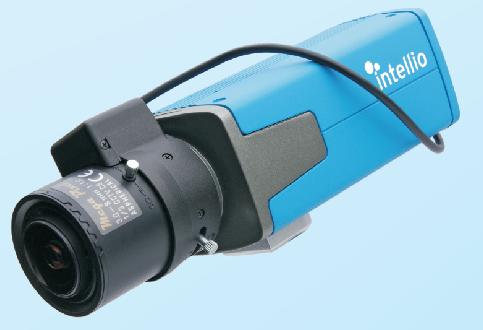

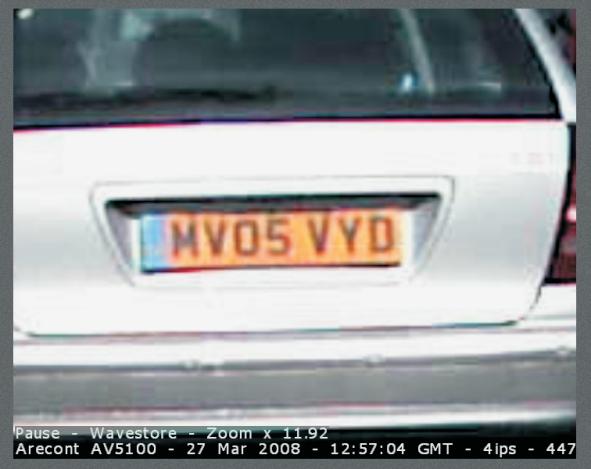
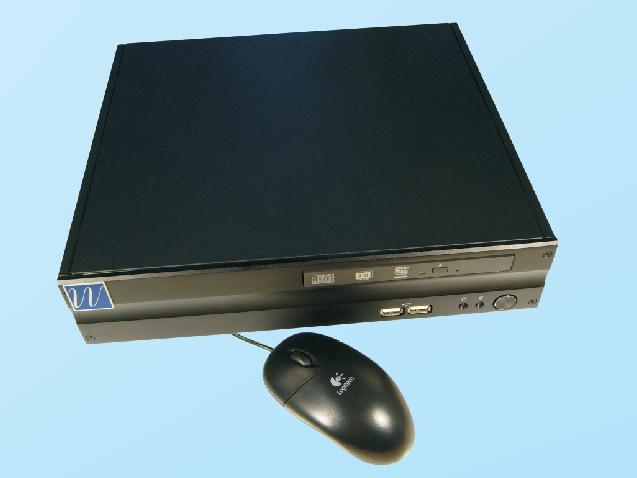

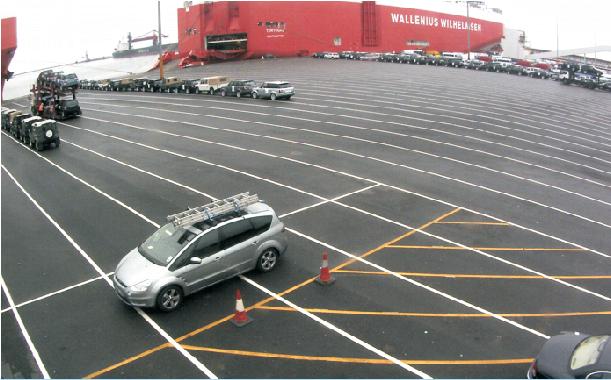



ARY HUMPHRIES, an Ex British Special Forces soldier, seems to find himself in the most remote and inhospitable places on earth as a safety and production coordinator for the TV and film industry. In October 2009, having received a call from the BBC Top Gear productions team, he headed off to Bolivia to drive the 1,000 mile route from the Bolivian jungle to the coast of Chile to see if the route was viable.
The roads of Bolivia are infamous for their horrendous conditions with tarmac roads outside of La Paz being rare and roads inside the city being questionable. The dusty, rutted roads vibrate cars, people and equipment to pieces.
Holes appear in roads for no apparent reason, as he found out to his cost.
The extreme cold sucks the life from batteries and the midday sun bakes equipment. Electrical items just give up. The mixture of altitude and cold contracts and expands sealed containers and metal objects, while dust covers every inch of the equipment.
Sadly to say, this led to the demise of his previous laptop. The constant ingress of dust, the extremes of temperature, constant vibration and ever present humidity caused the laptop on that reconnaissance trip to die. Seeing as on the second visit to Bolivia, he would need to plan routes and write reports while living out of a 4x4, he needed to have a serious rethink with regards to his laptop options.
After meeting James Munger-Styles from Blazepoint Limited at a defence show earlier and telling him of the dilemmas experienced during the previous reconnaissance trip in South America, he convinced Gary with his infectious enthusiasm that the ndura RUGGED® range of products would be ideal for the task at hand. With its rugged design, swivel touch screen, highest possible dust ingress code and excellent water resistant protection, Gary was confident that this rugged laptop would allow him to successfully complete his filming trip in Bolivia with Top Gear. They began their Top Gear adventure to drive three 1970’s 4x4 vehicles from the Bolivian jungle to the Pacific Ocean from the town of Rurrenabaque. Their first challenge was to cross the tributaries of the River Beni in the vehicles, which resulted in the equipment taking regular unplanned baths. Much to his amazement, however, the Blazepoint ndura RUGGED laptop powered up and continued as normal, despite having sat in a submerged bag. A week into the adventure and the extreme conditions were playing havoc on the presenters’ cars. A 36-hour modification session awaited them in La Paz. Jeremy
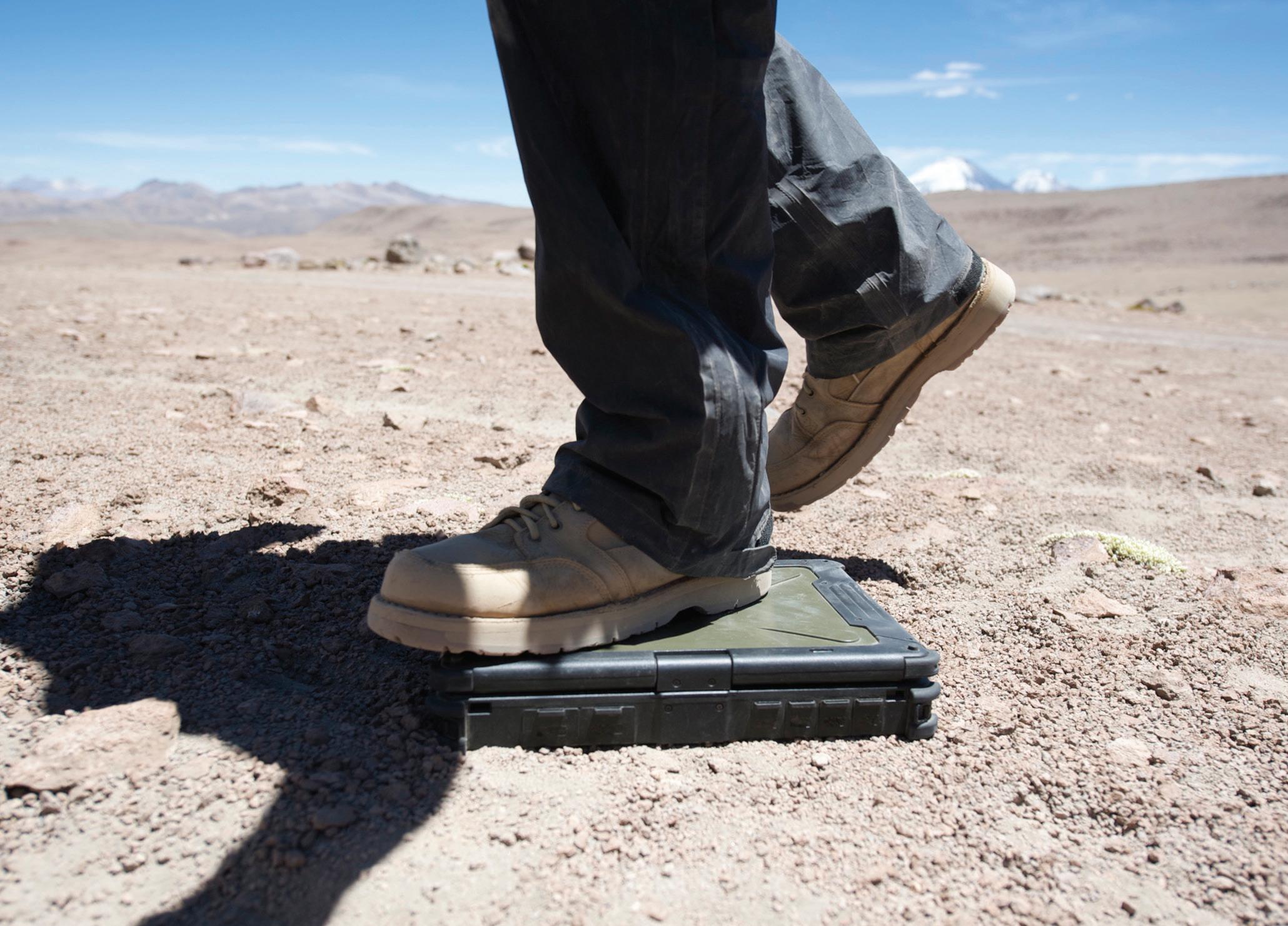
Clarkson’s Range Rover was having lift kits fitted to its suspension, while Richard Hammond’s Land Cruiser was in need of winches and extra lights. Meanwhile, the ndura RUGGED laptop was really showing its true colours: in one example, it had mysteriously evolved a boot print on the top of the screen. Later that day, when the laptop was booted up, a 90Kg cameraman said: “I’m glad it’s working as I have been stood on it for the last hour while filming from the sunroof.”
The final challenge involved crossing the Chilean Atacama desert. Sand Devils (mini tornadoes) danced across the land and away into the distance – and the sand particles lashed against the vehicles wearing them down to bare metal and entering the air conditioning. Sudden gusts of wind picked up handfuls of sand and regularly covered the laptop, blanketing the screen and keyboard in grit, but it carried on regardless each time after a quick dust down.
Gary commented: “The ndura RUGGED laptop had been treated roughly. Though battered and bruised, it continued to successfully perform throughout the adventure. I think it could be equally at home in any office or on the side of a volcano in Chile. It’s the Challenger Tank of the laptop world – it’s rugged design highest possible dust ingress code and proven water resistant protection, making it solid, reliable and definitely tough.“
Cambridge Consultants recently selected the ndura RUGGED®Laptop to remotely control, monitor and record information gathered by Prism200, an advanced hand-held radar system that enables the user to locate people on the other
side of a wall in dangerous and high risk situations. The system is already in use with national security agencies, security services, emergency services, the military and Special Forces throughout the world to improve safety and discretion in surveillance exercises when managing hostage situations or when searching a building for criminals or terrorists. Steve Williamson, Prism product manager at Cambridge Consultants, added: “We selected the ndura equipment supplied by Blazepoint as it offers levels of environmental protection in line with those of Prism200. We also appreciated the level of support we received from Blazepoint, who provided a very balanced and honest view of their equipment capabilities and look forward to offering their equipment in association with Prism200.”
The ndura RUGGED® range of products are currently aimed at the defence sector, emergency services and those involved in civil contingencies and emergency planning. Given their ability to operate continuously in almost any environment makes them ideally suited to command and control applications, such as the control and monitoring of UAVs, for completing standard forms by Scene of Crime Officers, or for providing geographic information using mapping and demographic applications.
Further details on Blazepoint rugged products can be found at www.blazepoint.co.uk or contact James Munger-Styles at Blazepoint on: Tel: 01865 892030
E-mail: sales@blazepoint.co.uk


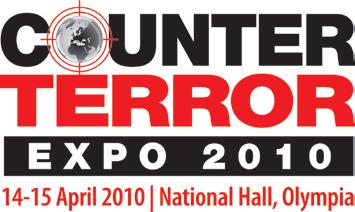
ON JANUARY 16, 2010 when a passenger entered a restricted exit inside the American Airlines terminal at New York’s John F. Kennedy International Airport the terminal was evacuated. After a high-security sweep all passengers went through security screening a second time. Arrivals were stuck on the tarmac; departures delayed for hours.
This is only one of a number of New York-area airport ‘false alarm’ breaches in just a matter of months.
How about other costly incidents? In 2004 a United Airlines 747 bound from Sydney, Australia, to Los Angeles dumped fuel over the Pacific so it could return to Australia because a discarded airsickness bag was discovered with the letters “BOB” scribbled across it – reportedly interpreted as ‘Bomb on Board.’ There was no bomb.
In 2008 a man carrying a backpack, thought to contain explosives, scaled a perimeter fence at Heathrow days before opening of the new Terminal 5. He managed to make his way into the active field before being arrested, closing a runway for two hours and causing numerous flight delays and cancellations. There were no explosives.
In addition, military aircraft are scrambled over and over again to intercept wayward, lost and ‘suspicious’ civilian aircraft in the skies above North America.
These are just a few examples of costly reactions to security breaches, both in terms of money and damage done to an industry still reeling from the 9/11 attacks. But are the actions being taken always appropriate, ‘measured responses?’
It appears the terrorists are winning, not by multiple, devastating security breaches and attacks, but by exploiting hysteria and the current inability to react to security breaches with intelligent measured responses that minimise escalation of breaches and prevent unnecessary costs.
The key to solving this serious flaw in the world’s security infrastructure is to design security solutions that integrate ‘threat profiling’ with technology. These integrated solutions are designed to help characterise the severity of a security breach so that an effective and efficient response can be implemented.
Let’s start with the concept of threat profiling: Threats represent goals of an adversary; for example, to enter a restricted area, smuggle a bomb through security, tamper with and compromise security peripherals, etc. A threat profile is a set of all threats that characterise what an adversary is actually trying to accomplish, such as hijack and destroy an airliner.
Knowing your enemy is critical when architecting security solutions, but translating that knowledge into a spectrum of threat profiles is even more important. The intelligent use of technologies to integrate with the threat profile is the second key component of an effective and cost-efficient security solution.
These technologies are embedded in security peripherals, such as cameras, scanners, access control systems, trip wires, motion detectors, etc. Most important is a process of threat-profile verification through the use of integrated technologies offering what Oncam has called SATIV, which stands for:
Surveillance that is persistent and pervasive
Acquisition of multiple events associated with a threat profile
Tracking of multiple events with the ability to Interrogate events using analytics, such as facial recognition, behaviour patterns, etc., resulting in Verification, by correlating results of interrogation, with rule-based characteristics of a verifiable event.
Most deployed security solutions embrace at least one of the SATIV elements, but very few utilise all components. Even those solutions which incorporate surveillance, acquisition, tracking and interrogation lack the overall integration necessary to achieve verification of an event. We place great emphasis on verification because the solutions we’re offering are designed to be effective and cost-efficient – features that are not part of solutions that tolerate false alarms. Threat profiling integrated with SATIV is essential so that responders can assess the severity of a security breach and execute a true measured response. These are dangerous times and we cannot afford to compromise the security of the world’s critical infrastructure, commercial assets and our homes. However, an ineffective, transparent and costly response to a security breach can be just as – if not more – damaging than the breach itself.
James Ionson, Ph.D., is CEO, Oncam Global Group. He was a member of the U.S. Department of Defense Senior Executive Service credited with the creation of the Innovative Science and Technology Directorate for President Reagan’s Strategic Defense Initiative (“Star Wars”), now called the Missile Defense Agency. He has held top-secret and other national security clearances with the Defense Intelligence Agency and has advised the Pentagon and NASA on critical technology issues.

Knowing
your enemy is critical when architecting security solutions, but translating that knowledge into a spectrum of threat profiles is even more important. The intelligent use of technologies to integrate with the threat profile is the second key component of an effective and costefficient security solution
nvironmental instrumentation company Quantitech has been awarded a contract worth in excess of £1 million to provide advanced air sampling and analysis equipment to the multi-agency air quality cell that has been established following the recommendations of the Major Incident Investigation Board for the Buncefield incident.
Quantitech has supplied 18 sets of instrumentation including advanced portable Gasmet FTIR multi-gas analysers in addition to TCR Tecora high volume Echo and low volume Delta air sampling equipment.
The company has also been responsible for the provision of a thorough training programme covering instrument operation, maintenance, calibration and service. The project was created to develop an air monitoring and modelling capability for major pollution incidents affecting England and Wales. Participants include the Environment Agency, the Health Protection Agency, Public Health Wales, the Met Office, the Health and Safety Laboratory, the Food Standards Agency and local authorities.
Quantitech’s Dr Andrew Hobson has been responsible for providing initial training on the instruments. He says: “We are delighted that the Gasmet DX4030 portable FTIR gas analyser has been chosen for this project because it was developed for applications in which almost any gas might need to be identified.”
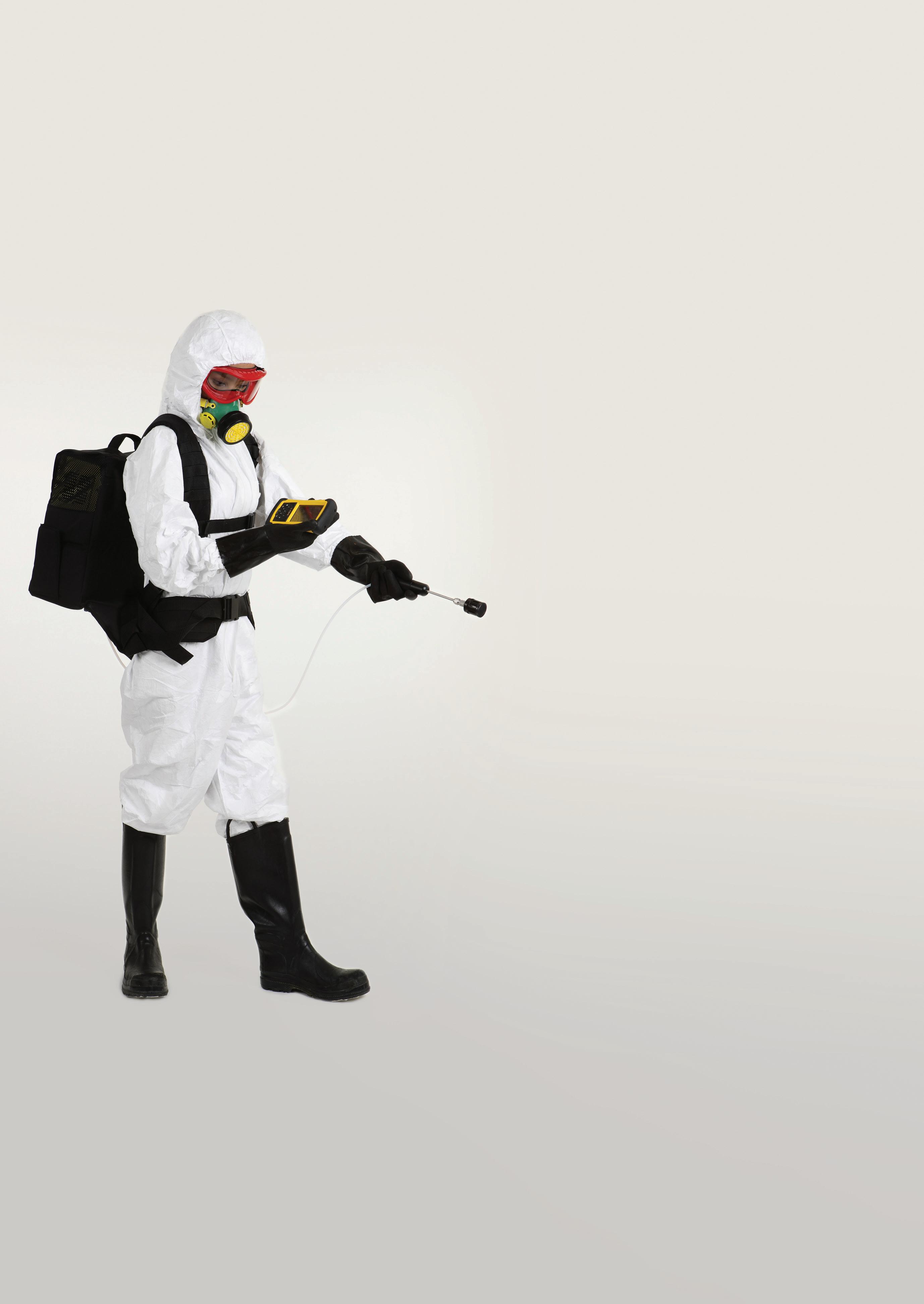
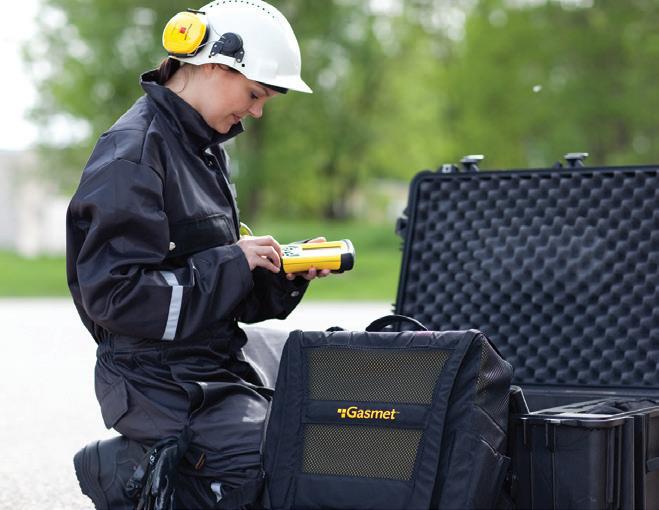
The FTIR analyser is located in a backpack and effectively provides laboratory grade analysis in a field instrument. A Bluetooth connection to a handheld PDA provides simultaneous measurements for up to 25 compounds and the collection of a complete sample spectrum means that over 250 compounds can be analysed. Summarising progress to-date, the Environment Agency’s Gillian Hickey, service manager for monitoring in the Air Quality in Major Incidents project, says: “Over the last six months we have responded to a number of chemical air pollution incidents with enhanced interim arrangements.
“Our experience and the lessons learned at these incidents, which have included fires at tyre recycling sites, a waste management transfer site, an electrical recycling site and a publishing warehouse, are proving invaluable in the development of our
monitoring and modelling capability, which will be fully established in April 2010.”
Portable monitoring equipment is vital to the success of the project because of the rapid response times that have been established by the project. The Emergency Services will notify the Environment Agency within 30 minutes of a major pollution incident and the Environment Agency will then convene the Air Quality Cell (AQC).
CHEMET air modelling information from the Met Office will be available within 20 minutes with more detailed modelling provided later.
The Environment Agency will mobilise monitoring teams from one or more of eight locations and monitoring data will be provided to the AQC within two to six hours of the incident.
The Buncefield explosion near Hemel Hempstead in December 2005 raised a number of environmental issues and Quantitech’s Dr Hobson says he is “delighted to have played a role in one of the very positive outcomes to have been initiated by this major incident,” adding, “This is a very important contract for Quantitech and one that has enabled us to exercise the core capabilities of our company. Namely, leading edge technology in combination with the highest levels of technical support.”
FOR MORE INFORMATION
Tel: 01908 227722
Fax: 01908 227733
E-mail: sales@quantitech.co.uk

CCTV-based Video Content Analysis can detect suspicious activity at the earliest possible stage, says Pauline Norstrom, the British Security Industry Associaton’s CCTV Section Chairman
ACED WITH the on-going challenge of global terrorism as evidenced by the 7/7 attacks in London, the Madrid train bombings and the tragic events in Mumbai, India, it is not surprising that governments, law enforcement agencies, and those responsible for key areas such as the transport infrastructure, are adopting ever more sophisticated surveillance techniques to help to detect suspicious activity at the earliest possible stage. Video Content Anaylsis (VCA) – also referred to as Intelligent Video Analytics (IVA) – is the name commonly given to the automatic analysis of CCTV images to create meaningful information about the content. In theory any ‘behaviour’ that can be seen and accurately defined on a video image can be automatically identified and an appropriate alert raised.
POTENTIAL APPLICATIONS
One capability of particular interest for VCA is the potential to set-up a detection tripwire solution for a vulnerable area. This enables the creation of virtual tripwires along existing fence lines or in areas where physical security is impossible or impractical, such as railway tracks and airport perimeters, whose extensive nature can prove challenging for more conventional
approaches. In this case, alarms associated with the detection tripwire can be enabled in either (or both) directions across the software generated threshold. This ability to identify intruders rapidly, in real time, can potentially mean the difference between reactive and proactive steps being taken. VCA can prove especially useful in situations where a bag, or other item, has been left unattended in a railway station or airport. The solution alerts CCTV control room operators so further action can be taken to ascertain whether there is an innocent explanation or if it is a suspicious package which may necessitate immediate evacuation of the adjacent area.
For some time now, when it comes to VCA the BSIA has recognised that there has been a pressing need to provide clear and effective guidance for endusers who are looking to utilise this key technological development in CCTV to combat criminal and terrorist activity, as well as offering specifiers general advice to assess suppliers and their products.
There is little doubt that the number of producers, the range of products, and the installation implications can present an extremely confusing picture for potential buyers. With this in mind, the CCTV Section’s Technical Committee worked to develop an appropriate industry guide to VCA.
Key areas addressed within the BSIA’s

VCA document include: the main elements of a VCA system and a description of the two main types of VCA platforms. The document distinguishes between Central or Core based packages that are typically rack mounted for use in CCTV control rooms, with the video sources analysed centrally, and Edge based solutions where a smaller –occasionally ruggedised – unit is integrated within or placed close to the CCTV camera. The term ‘embedded’ is also defined as being when VCA software is designed into the CCTV camera, DVR (Digital Video Recorder) or other unit, either as part of a dedicated design or an add-on card. In addition, the guide outlines how analysis actually works in practice; the importance of perspective setting; the key technology challenges – specifically the Detection Probability and False Alert Rate; the impact and benefits of VCA; what VCA can do; when VCA should be considered; the selection process for systems and cameras and, crucially, presents some detailed questions to pose to providers.
The publication of the VCA industry guide should help to demystify VCA and assist end-users to make informed decisions when they are considering the introduction of VCA technology for the purposes of security, safety, people management or event counting. Moving forward, the message has to be that, when applied correctly, CCTVbased VCA can make a positive contribution in areas which face a heightened threat from crime and, crucially, terrorist activity.
A copy of the guide can be downloaded by visiting www.bsia.co.uk/publications
FOR MORE INFORMATION
Tel: 0845 389 3889
E-mail: info@bsia.co.uk Web: www.bsia.co.uk
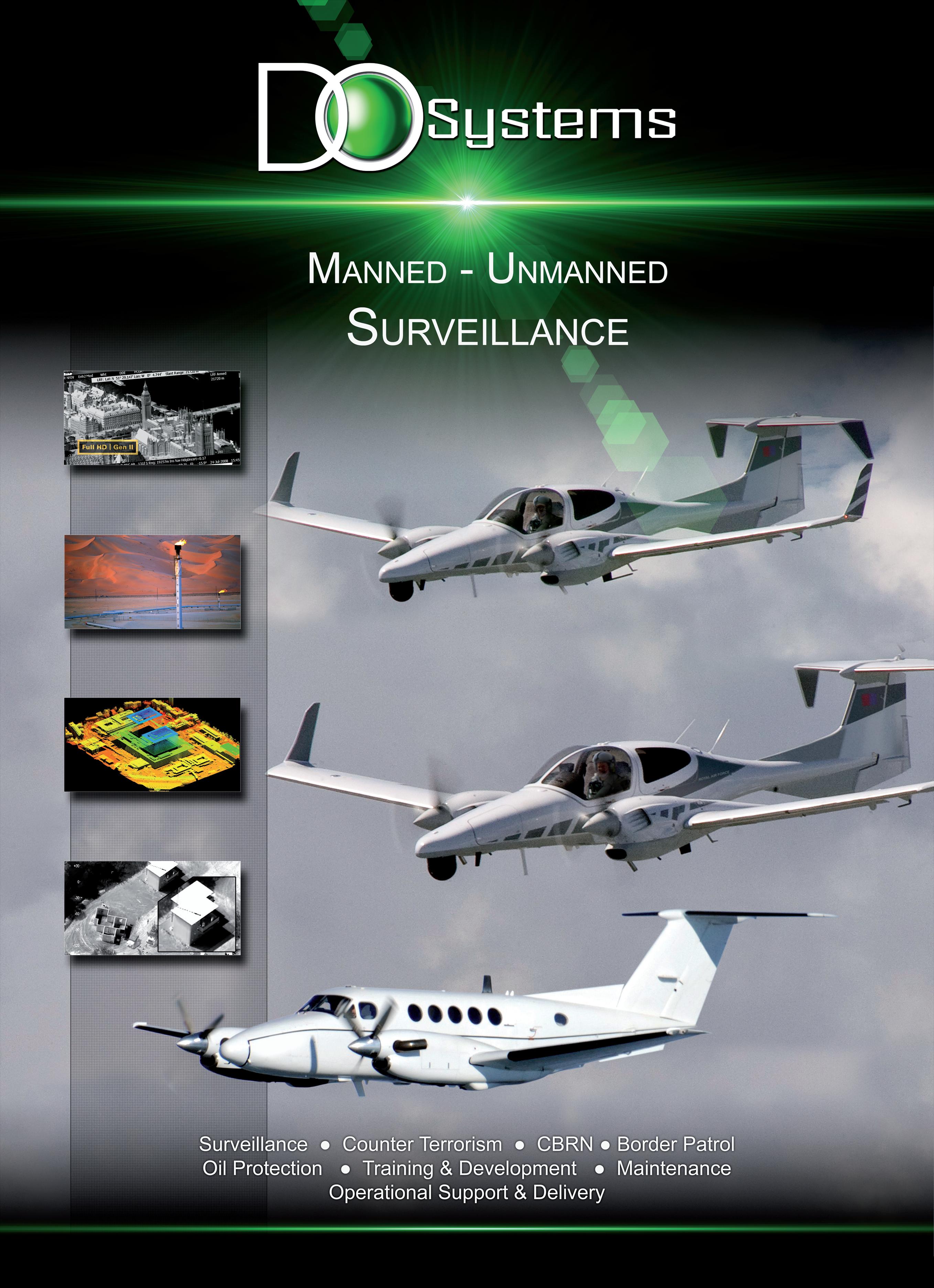


Ashley Smith, the BSIA’s Civil Aviation Security Section Chairman, examines the various measures that are available
to enhance an airport’s security system
THE SECURITY of our nation’s airports is increasingly under the spotlight in a post-9/11 society. Many different security solutions are used to protect the people, goods and aircraft that pass through UK airports each day.
Due to the size of airports and the high volume of people that pass through them on a daily basis, security is paramount. The safety and protection measures at airports are in a potentially very different league to other facilities. If a commercial building is broken into, the damage is probably quantifiable, but if things go wrong at an airport, the consequences may be incalculable. To best protect themselves, airports can use a combination of security measures including physical, electronic and security guarding systems, in order to achieve efficient and effective results in the combat against terrorist attacks.
Perhaps one of the most noticeable methods of security that people come across in an airport is the checks conducted on passengers and hand luggage. All hand luggage and items such as coats, handbags, laptop computers, mobile phones and cameras, undergo x-ray examination before passengers are allowed to enter the departure lounge. In addition, travellers pass through metal detectors and may be subject to a physical search.
The security guarding function is one
of the most visible security solutions, as officers operate x-ray and scanning equipment and search passengers to ensure that the security of the aircraft and those onboard is not put at risk. Electronic security measures also play an essential role, with access control, CCTV and biometric technology being amongst the tools used by a modern airport.
Another important area is that of physical security, whereby gates, fencing, locks and security doors, provide vital barriers against security breaches. Many airports also rely on the services of security consultancies, which undertake risk assessments to ensure that the most appropriate security measures are used depending on the level of risk.
The BSIA Civil Aviation Security Section pools the expertise of member companies that work to secure the UK’s airports and airlines. The section focuses on exchanging best practice and cooperating with key bodies for the benefit of the industry and its customers.
Recently, Manchester airport stepped up their security searches with the introduction of a full body scanner that produces images of passengers. This enables security staff to instantly spot any hidden weapons or explosives and has already been trialled in a number of airports overseas as well as Heathrow back in 2004. The
Department for Transport will decide whether to install them permanently at the end of the trial at Manchester airport, which is expected to last a year.
In light of the full-body scanners recently hitting the headlines again, the British Security Industry Association (BSIA) is highlighting the importance of safety over sensationalism. Just a few weeks ago claims were made from Bollywood actor Shah Rukh Khan that on a recent trip through Heathrow Airport his scanned image was printed out and shared among staff. Following this incident, we have heard warnings from the Equality and Human Rights Commission that body scanners may be illegal because they could breach passengers’ rights to privacy.
The attempted terrorist attack that took place over Detroit on Christmas Day alone provides a stark reminder of the importance of aviation security. Technology such as fullbody scanners plays a vital role in helping airport staff to maintain vigilance and carry out all-important security checks.
To better protect an individual’s privacy, full-body scanners should not work in the same manner as the hand-luggage scanners we are all used to seeing at the airport. Image analysis should be done remotely, out of sight of the scanned passenger, with systems incapable of storing, exporting or transmitting those images. All images should be automatically deleted from the systems after they have been reviewed.”
The use of full-body scanners is simply an evolution of existing security technology and allows passengers to travel safely and securely with minimum delay or disruption to their journey. With this in mind, the private security industry has welcomed the government’s support for full-body
A|D|S is the trade body advancing UK AeroSpace, Defence and Security industries with Farnborough International Limited as a wholly-owned subsidiary. A|D|S also encompasses the British Aviation Group (BAG). It is formed from the merger of the Association of Police and Public Security Suppliers (APPSS), the Defence Manufacturers Association (DMA) and the Society of British Aerospace Companies (SBAC).
For more information visit www.adsgroup.org.uk

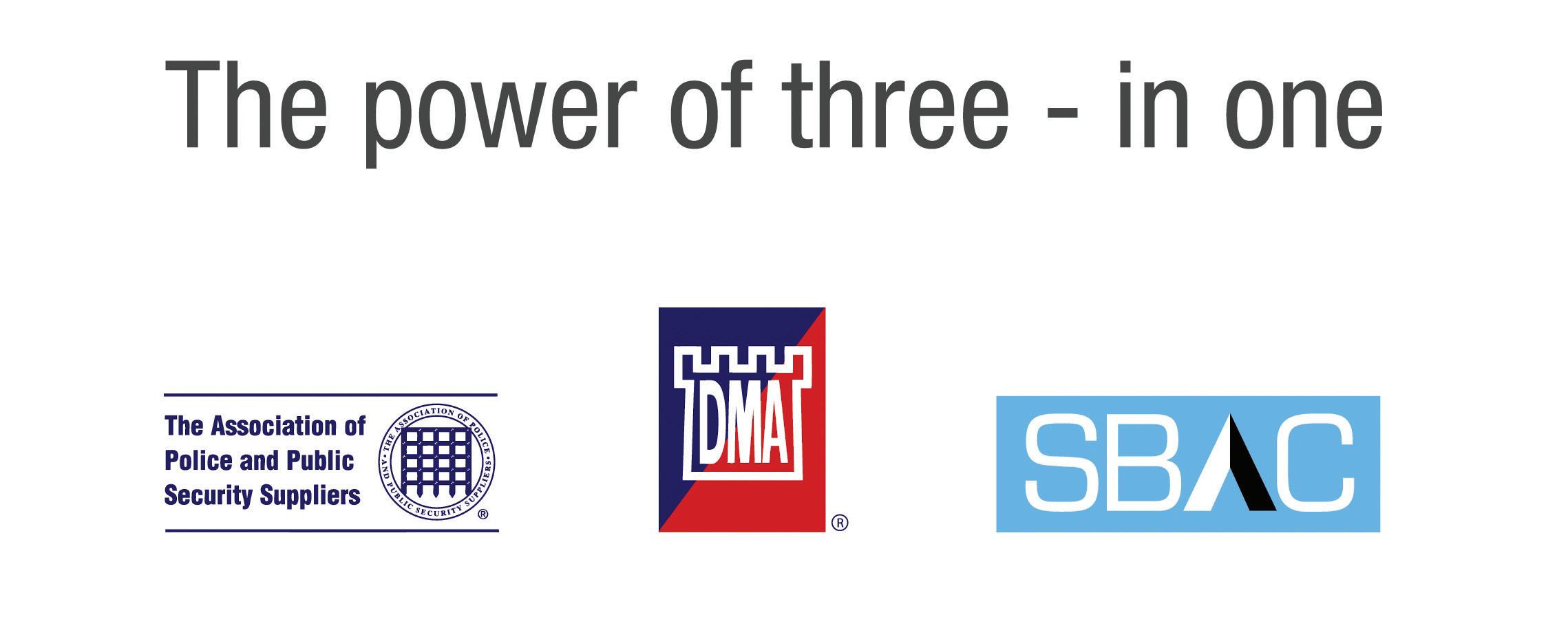
Protecting the perimeter of an airport is a vital security measure and can be achieved through the use of fencing, bollards, security doors and locks. Electronically monitored and physically fortified chain link fencing can alert the security team if attempts are made to climb or cut it, with ground-based detector systems capable of sensing people movement both beneath the fence and in the surrounding area
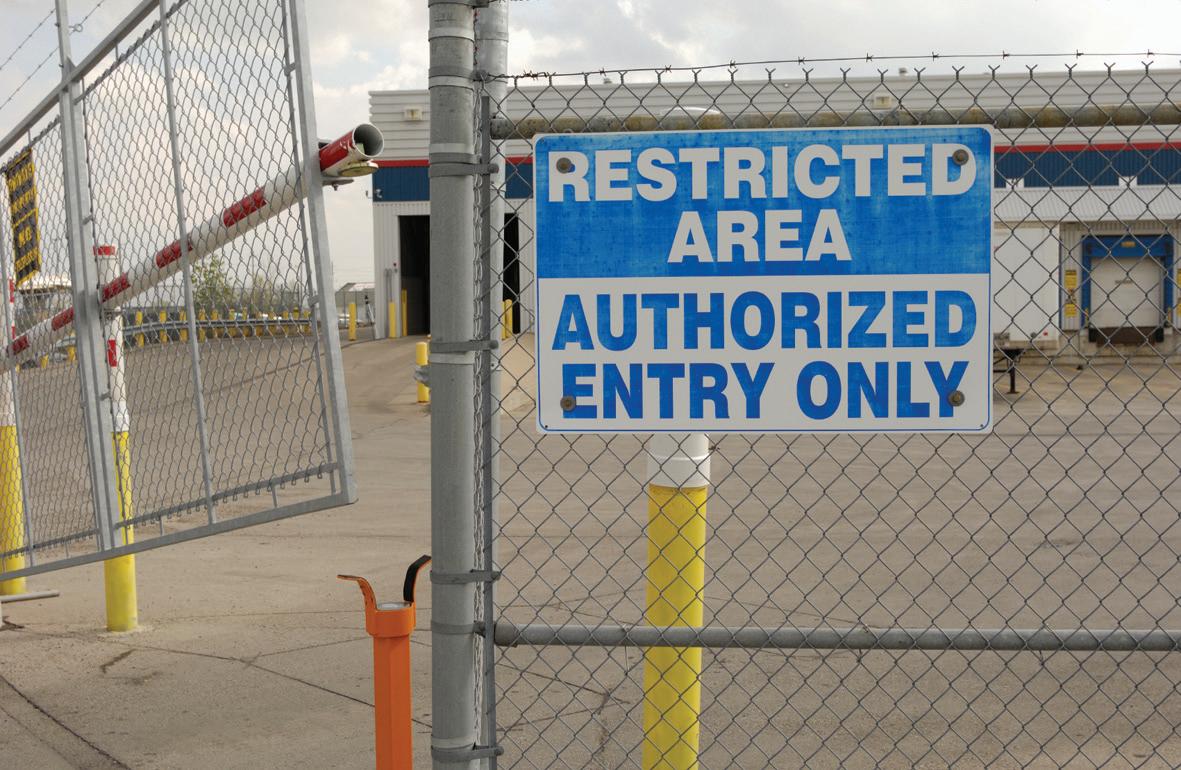
scanning technology in UK airports. Combining this system with the likes of CCTV is effective in enhancing an airport’s security. CCTV systems are applied all over airports to closely monitor the actions of individuals and more recently, airports seem to be using the technology in baggage holds to ensure no contraband items are being added to a bag for criminal or terrorist reasons. In recent years CCTV has seen a major development in the form of Video Content Analysis (VCA). VCA is the name given to the automatic analysis of CCTV images, which is used to create useful information about the content. The technology has a wide range of uses including detecting intruders, left packages, wrongly parked vehicles and counting the number of people entering or leaving an area. Specific uses of VCA include Facial Recognition and Automatic Number Plate Recognition (ANPR). ANPR can alert security staff to the presence of vehicles returning to an area and this forewarning will allow response staff to investigate before a situation escalates.
Pairing CCTV with access control is common practice and is used to log, authenticate and track personnel movements in and out of areas. Access can be granted by photo ID cards, key fobs, swipe cards and PIN-codes through to fingerprint and other biometric-based technologies to ensure a real-time audit trail for those passing through the doors. Staff access to buildings, hangars, storage and other areas can be graded according to their seniority, using the access control system. If a staff member leaves or loses their access card/ tag, a computerised electronic system can delete or replace it quickly and easily. Protecting the perimeter of an airport is a vital security measure and can be achieved through the use of fencing, bollards, security doors and locks. Electronically monitored and physically fortified chain link fencing can alert the security team if attempts are made to climb or cut it, with ground-based detector systems capable of sensing people movement both beneath the fence and in the surrounding area. Integrating this with the use of CCTV will enable staff to zoom in and focus on a particular area, check for false alarms and direct colleagues on the ground to intercept any intruders.
Detecting intruders is an important part of airport security and intruder alarm systems can provide control room operators with the visual, audible and sequential verification that they need. This technology is also useful for detecting false alarms and saves security staff wasting time visiting an area of the site, which has not been infringed. A BSIA member worked with Doncaster’s Robin Hood International Airport to provide an Alarm Event Display system, which enables security staff to view devices and alarms via graphical maps of the airport
site. In the event of an alarm, areas are highlighted red and blinking with operators then able to zoom into different layers of the maps. In the case of a violation, security staff are instantly alerted with the access control system instructing the CCTV system to display images from the nearest camera to the control room monitor.
Choosing a BSIA member to provide security solutions means selecting quality and gaining peace of mind. The BSIA is the only trade association that requires its members to be independently inspected to the quality standard ISO 9001:2000 with a UKAS accredited certification body. This provides independent assurance that a company is run consistently. The inspection also includes confirmation of compliance to relevant British and European standards and/or BSIA codes of practice.
BSIA members are at the cutting edge of standards development in the UK and Europe. Each year BSIA develops a number of its own codes of practice, which often go forward to be developed into British Standards. Customers can be confident that the products and services of BSIA members reflect the latest industry standards.
Members of the BSIA are kept up-todate on the latest changes in the law. Therefore, you can rest assured that BSIA members are aware of the latest legislative developments and how they affect their business and yours.
Best practice is second nature to BSIA members. As an Association we are striving to increase professionalism within the industry. Our members train their employers to be up-to-date with the latest industry developments.
We are aware of the importance of long-term business relationships. That is why we look into our members’ financial records before they are admitted into membership to ensure that they are financially sound. We also vet the directors of our member companies. Vetting of all employees is a prerequisite for membership where it is relevant to the services provided. These key factors mean that our members’ customers can have peace of mind and are able to build long-tern relationships with their security suppliers. By applying and integrating the broad span of security measures that are available, airports can continue their work to prevent and deter terrorist attacks in order to provide the very best protection to their staff and passengers.
The British Security Industry Association (BSIA) is the professional trade association of the UK security industry. Its members produce over 70 per cent of the country’s security products and services to strict quality standards.
Web: www.bsia.co.uk
Local rate helpline: 0845 389 3889
N A GLOBALISED WORLD
Ithe security of our aviation network is vital to ensuring the safety of millions of citizens and the health of our troubled economy. The aviation industry directly contributes £11.4bn to UK GDP and employs over 500,000 people, and it is partly through the efforts and advances of the security industry that this successful sector of the UK is able to continue operating. It should therefore come as no surprise that the security industry’s involvement in airport security contributes to the decisions made by the world’s governments on how best to ensure the safety of these important focal points for today’s global society. What may not be so widely known is that the UK security supply community has a vital role to play in ensuring the security of the global aviation network. The UK boasts a broad range of security capabilities and solutions that can be deployed in the support of aviation security, and that can also help the country out of recession. To
achieve both these objectives, the UK must maintain the levels of strategic advice that industry is providing to the government. We must also think more holistically about the industrial elements of the design and operation of our aviation security system and recognise how the rules within it place limits on what we can achieve.
A|D|S in its role as the trade organisation advancing the UK aerospace, defence, space and security sectors, is actively taking part in this debate. Representing over 450 large, medium and small companies supplying to the public and private sector security markets, A|D|S was formed in October 2009 as the result of the merger of the Association of Police and Public Security Suppliers (APPSS), the Defence Manufacturers Association (DMA) and the Society of British Aerospace Companies. This wealth of experience in the security industry is further enhanced by the British Aviation Group (BAG). BAG, which is a part of A|D|S, includes a membership of 200 companies many of which have a
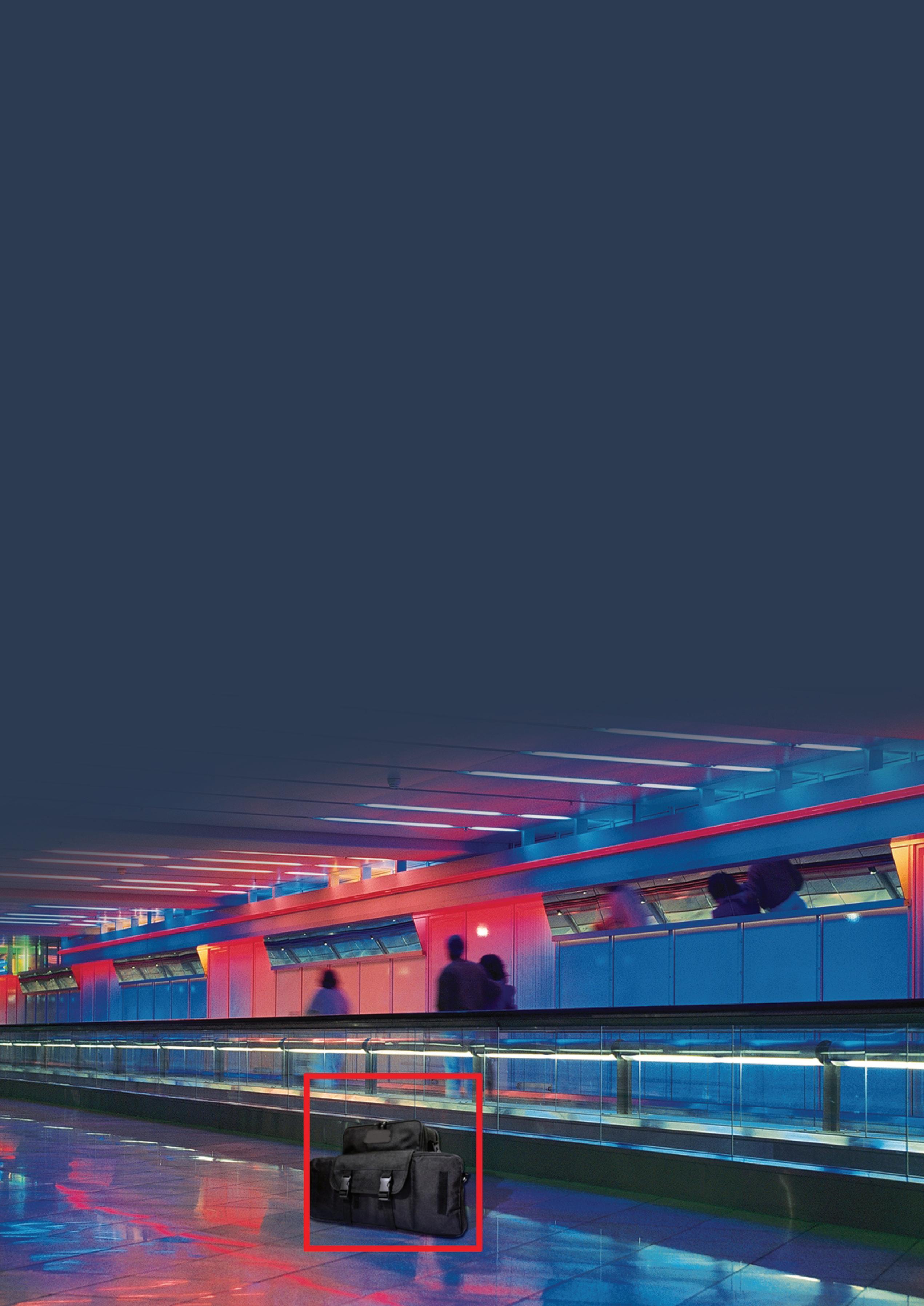
direct and long-standing interest in airport service markets worldwide. Recognition of A|D|S’ presence in the UK security industry, has further been recognised by the Home Office Scientific Development Branch which has asked A|D|S to co-organise this year’s HOSDB Exhibition in Farnborough.
Any security response to the threat posed to today and tomorrow’s airport security must be multi-faceted, with an all encompassing and agile approach adopted, which is why it is important to consider how industry can contribute.
We can recognise the breadth of capabilities that the UK security industry has to offer to understand the many important aspects of aviation security. Though the UK industry is a well known world leader in the manufacture of security detection equipment, such as the hotly debated full body scanners and x-ray explosive detection systems, these are only one part of the whole solution. Equipment and technologies can never be the panacea for airport security’s problems, but they are an integral part to the necessarily multi-faceted response.
As the nature and diversity of threats grow and change, it is increasingly more important that we think of airport security as an integrated system, rather than in separate compartments such as scanning, surveillance etc, and that an adequate level of investment is maintained to ensure the success of this approach.
Industry in the UK has a much broader range of capabilities at its disposal than is
commonly thought. Solutions include the standoff detection of suicide bombers using technology; blast mitigation engineering that protects the facades and sensitive areas of airports; and behavioural science. All of these are important elements of airport security. Intelligence will still be crucial, as will the right systems provided by the members of A|D|S that can process the information gathered quickly and accurately. Furthermore, let us not underestimate the enhancements that are being made to existing technologies. Whilst not always popular in the public psyche, the deployment of CCTV at airports and even on board aircraft is an important element of the response. CCTV is a key part of the policing operation at airports – as too is the deployment of innovative communication and information-sharing systems, all of which technologies contribute to ensuring that the airport security system works well and smoothly. It is important that an environment for innovation continues and that industry is given the opportunity to flourish, which can only be possible through adequate investment. Looking to operational issues, it is useful to see how industry is informing the airport
HMG and industry will frequently take place in security cleared environments, and rightly so, but there are public issues associated with aviation security where greater light could be shed. There is a delicate balance between security measures and the appropriate protection to privacy, of which industry is fully cognisant – our role in the “security vs liberty” debate is after all unavoidable, if only because new capabilities can be regarded with instant suspicion. However, industry is also aware that there is a danger in being too open about current capabilities because there is the potential risk of exposing gaps in the current security arrangements.
A|D|S believes that the answer to this should be an increase in awareness of the multifaceted nature of aviation security, which should extend to the broad range of existing and emerging capabilities that industry is capable of providing to deliver aviation security. Public awareness is ultimately essential, as in the end it is society that will decide what security measures are acceptable and how much it wishes to pay for security in our skies. The economic conditions will play into this but the level of public debate also needs
The UK boasts a broad range of security capabilities and solutions that can be deployed in the support of aviation security, and that can also help the country out of recession. To achieve both these objectives, the UK must maintain the levels of strategic advice that industry is providing to the government
security debate on a strategic level. The UK security industry is supporting the Office for Security and Counter Terrorism (OSCT) in providing through RISC – the UK Security and Resilience Industry Suppliers’ Community – the expert advice that needs to flow from industry to government on the capabilities that it now depends upon. As the March 2009 UK Strategy for Countering International Terrorism (CONTEST) spelled out, new ways of thinking have emerged on how government working together with industry can meet the challenges ahead. Since its formation in 2007, RISC has facilitated and helped to establish a strong dialogue between government and industry, including in the field of airport security. The importance of such dialogue between government and industry should never be underestimated, particularly under the current economic conditions. Through such consultation industry has been able to develop a greater understanding of the level of terrorist threat and the nation’s security priorities, which in turn enables industry to understand where it should focus current and future investment. By its very nature, such debates between
to be extended by our political leaders to ensure that society is fully informed about the risks in the current security landscape, and the investment that will be needed to meet them. Following the attempted attack on an airliner over Detroit at Christmas, industry accepts that technology needs to be effective while non-intrusive and believes that during this time of constrained resources, the most efficient way of achieving this is if security is developed with the public’s consent. Did you know that a poll for the Financial Times in March 2010 stated that 60 per cent of Britons favoured the introduction of body scanners? As well as deciding what precautions and security measures are acceptable, the public should also consider how much it is prepared to pay for aviation security. Under the long standing government policy that ‘costs lie where they fall’, expenditure on aviation security lands largely upon the shoulders of the private sector, be it airports or the airlines. With multiple airline and airport operators, the difficulty in measuring the level of resource dedicated to aviation security is high, particularly when one realises that airport security is also exposed to significant commercial constraints arising
from the current economic conditions. This is not to say that private operators are ignoring their responsibility to provide and invest in airport security – far from it. According to Virgin Atlantic Airways in 2005, European airlines and airports are paying out £3 billion for additional antiterrorist security measures imposed by EU governments following the tragic events of 11 September 2001. In February 2009, the European Commission quoted ACI-Europe figures which suggest that security costs now represent up to 35 per cent of overall airport operating costs instead of 5 per cent to 8 per cent prior to the events of September 2001. However, is such a level of investment in security realistic under the current economic conditions, especially in the context of the widely reported substantial decline in passenger numbers?
This is an important question for industry, for while government issues regulations on the new security measures that will be implemented, it is the private sector and police forces who will be expected to foot the bill. It seems clear that in the context of the economic conditions we must start thinking more about the extent to which private airlines and airports will be able to bear new costs arising from new requirements. Whilst international comparisons are difficult to make, central government through TRANSEC was allocated a budget of around £19m for transport security in 2007/8, which was dwarfed by its counterparts in central government in the United States –the Transportation Security Administration – which had a budget of around $6.3bn in 2007. A|D|S has noted with interest that the US stimulus package is providing funds for investment in industrial capabilities for domestic security purposes to the Transport Security Administration, including $1 billion for explosives detection systems and checkpoint screening equipment.
In the UK, we do not have the luxury of such resources but we must create the conditions for ongoing investment in aviation security so that the innovation of the UK security industry can flourish. This could be done by the UK adopting a world-leading position in the development of international security standards. Once this is achieved, we can ensure that the UK security industry can maintain and even improve its place in the competitive global security market.
As one can see, there are numerous constraints at play for both government and industry. However, continuing the current interaction and further development of this partnership on security matters, there is little doubt that industrial capability, as demonstrated by A|D|S’ members and the UK security sector as a whole, will be able to ensure our ‘security in the skies’.





A resurgence in Al-Qaeda terrorist attacks has promted governments on boths sides of the Atlantic to question their counter-terrorism strategies
WHEN AN AL-QAEDA militant, Abdullah Hassan Tali’ al-Asiri, blew himself up in the Jeddah office of Saudi Arabian Deputy Interior Minister, Prince Mohammed bin Nayef, back in August of last year, the incident rattled counter-terrorism officials globally. Here was a militant on Saudi’s most wanted list who, by subterfuge, had gained access to one of the most protected men in the Kingdom and attempted to assassinate him with an improvised explosive device.
Initial reports of the attack were sketchy at best. They pointed to al-Asiri having passed through security at two airports and being in custody for some 30 hours en-route to repent in person to the Prince for past crimes, but whilst carrying an explosive device subsequently detonated remotely and just moments after al-Asiri was ushered in to meet with the Prince.
Naturally, the global counter-terrorism community wanted fast answers. Within a week a high level US delegation, headed by White House Homeland Security Advisor John Brennan, met with Saudi officials and the slightly injured Prince himself, to discuss the attempted assassination and offer assistance in the major investigation by then on-going. That visit kick-started close cooperation between US and Saudi officials on the investigation into both the mechanics and forensics of the attack and by the end of September a clearer picture began to build up.
A rapidly compiled report examined the incident through the looking glass of strategic threats to U.S. assets within Saudi Arabia and the wider Middle East, but doesn’t appear to have examined in any great detail the potential for further similar attacks elsewhere. It identified by forensic examination that al-Asiri had not concealed the explosive device in a body cavity as first thought, but that it had been concealed in his underwear. The report apparently concluded that this was merely an attempt on the life of a prominent Al-Qaeda adversary heading a vigorous campaign to neuter the terrorist organisation within Saudi Arabia and did not represent a significant threat in the wider world.
The report, as well as other salient information gathered during the course
of the investigation, is understood to have been distributed widely amongst intelligence and counter-terrorism officials. Clearly therefore the incident didn’t gather as much traction outside of the Kingdom of Saudi Arabia and the wider Middle East as perhaps it deserved. It has been alleged that key facts in the case were either dismissed as irrelevant, overlooked in their entirety or played down to the extent their import was lost.
One might have assumed that given al-Asira apparently passed through multiple airport security checks in airports en-route to meet with the Prince and whilst carrying an explosive device, that information would have been enough to start alarm bells ringing and prompt an immediate hardening of security measures at civil airports across the globe. No such warning appears to have been given.
ANOTHER ATTEMPT
Thus, another Al-Qaeda militant, Umar Farouk Abdulmutallab, circumvented security at two major airports and attempted to blow himself up aboard Northwest Airlines flight NWA 253, as the the aircraft descended toward Detroit Metropolitan Airport on Christmas Day.
Similarities between the two cases are stark.
An investigation into Abdulmutallab’s failed attack has already revealed that the two men belonged to the same terrorist faction, Al-Qaeda in the Arabian Peninsula (AQAP). Furthermore, the devices they were carrying were concealed in underwear and both contained the high explosive Pentaerythritol Tetranitrate (PETN).
Whilst there is no evidence to suggest the two men knew one another presently, there is ample evidence suggesting the group they belonged to possesses the technical and manpower capability to strike where it sees fit and is not necessarily the spent force we have been led to believe. Brennan was forced to defend the indefensible in relation to actions taken following the attempt on the Saudi Deputy Interior Minister’s life. Questioned intensively by reporters and others about similarities between the two cases and why warning was not given to the aviation community, he has argued vociferously that while


information was disseminated widely there was “no indication at the time that there would be an attempt against an airliner.”
A White House review of the Christmas Day attempted airliner bombing has concluded that by concentrating on the strategic threat posed by the al-Qaeda affiliate in Yemen and its plans for attacking U.S. targets there, intelligence agencies failed to focus on the group’s preparations for a direct strike in the U.S. itself.
“That lapse, along with insufficient attention to separate warnings that a specific person may have been recruited by extremists in Yemen, led to a breakdown in systems designed to connect the dots about an imminent threat to the homeland,” President Obama has stated. “The U.S. government had the information to potentially uncover this plot and disrupt the attack,” he said. “Rather than a failure to collect or share intelligence, this was a failure to connect and understand the intelligence that we already had.”
A six page declassified report released by the White House, singled out the National CounterTerrorism Centre (NCCT) and the Central Intelligence Agency (CIA) for greatest criticism. The NCTC was created after the Sept. 11, 2001, attacks to analyse terrorism-related intelligence from across the government, while the CIA retains additional responsibility for counterterrorism analysis. “The intentional redundancy in the system should have added an additional layer of protection in uncovering a plot like the failed attack on December 25,” the report said. Each failed to apply to Yemen-based al-Qaeda in the Arabian Peninsula (AQAP) “the full range of analytic tools and expertise that [they use] in tracking other plots aimed at the U.S. Homeland,” it added.
Amongst the information held by the U.S. at the time Umar Farouk Abdulmutallab boarded the first of the airliners en-route to Detroit, was a Central Intelligence Agency (CIA) biographical study of the bomber prepared after his father had tipped off Nigerian and U.S. intelligence about his son’s radicalism, but not disseminated outside the agency. Separately, the National Security Agency (NSA) possessed electronic intercepts from the Yemen pointing to an anti-U.S. plot and an unnamed Nigerian. The State Department, failed to notify other relevant agencies that Abdulmutallab had a valid U.S. entry visa.
History has a nasty habit of repeating itself when least expected or wanted. September 11 horrifically demonstrated that failure to properly address domestic security can have disastrous consequences. In focusing again rather too closely on threats to external assets, it is fair to say that the U.S. government has been guilty of believing rather too much in its rhetoric on the domestic security question. December 25 very nearly brought with it
similar horror in the American homeland. A MAJOR SECURITY LAPSE
President Obama has characterised the incident as a failure to connect the dots, directly resulting in Umar Farouk Abdulmutallab being able to board flights unhindered and reach his intended target. The incident more fundamentally speaks to significant complacency within the agencies tasked to positively identify and interdict individuals with apparent intent.
The failure in first linking these two incidents and subsequently connecting the dots to develop a picture of intent; underscore a long held belief in some circles that the further one moves away from the last major incident so the capability to meet current and future threats dissipates with the passage of time.
That the airline appears to have been radicalised in London, though significantly downplayed by the U.K. government, has not gone without notice.
Whilst nobody has yet publicly accused this country of taking its eye of the ball in respect of Abdulmutallab, a prescient report published in early February by the influential Home Affairs Committee has come close, by calling into question the country’s counter-terrorism strategy in its entirety.
The report accuses the government of “institutional inertia” over terrorism, charging that “a lack of political will has hindered the institution of valuable reforms such as regional policing counter-terrorism units; and that those involved in counterterrorism may be willing to settle for existing sub-optimal solutions, rather than pro-actively reforming to meet ever-changing threats.”
It goes on to say that “while the structures now in place may be suitable for combating the terrorist threat as currently constituted, committee members are not confident that government institutions have the desire to constantly adapt.”
Such damning commentary from a highly regarded committee at the very heart of government has not, as one might expect, been received well within the corridors of power in and around Whitehall.
Alan Johnson, the Home Secretary, has been vociferous in his condemnation, calling the report “inadequate” and “wholly inaccurate”. Nevertheless, there are those who privately agree with the analysis and most particularly in respect to a lack of political will contributing to the institutional inertia.
Following Umar Farouk Abdulmutallab’s attempt to blow up Northwest Airlines flight NWA 253, whilst it was in the descent to Detroit Metropolitan Airport, governments on both sides of the Atlantic Ocean have clearly been grappling to find answers as to why another very nearly catastrophic terrorist attack on home shores occurred, as well as plug the holes in a deeply flawed security regime that allowed him to come close to succeeding. Whether the measures that are now being put in place in numerous different areas are sufficiently robust to fulfil the promise that such an event will not be allowed to happen again remains to be seen.
Countering the terrorism threat is high up on the list of priorities for the Government, police and the security industry and a partnership between the three is vital in order to ensure that risks are reduced. The private security industry is playing an increasing role in this through its support of CONTEST, the Home Office’s counter-terrorism strategy. David Evans, a British Security Industry Authority’s (BSIA) director, looks at how the private security industry can support this strategy
THE ATTACKS of 9/11 and the subsequent 7/7 London Underground bombings, 2009’s Jakarta bombings and last year’s conviction of a would-be suicide bomber who targeted a Bristol shopping centre, have all contributed to the instant change in the national security agenda and the Government’s response strategy. With this string of attacks having taken place, the concept of homeland security has drawn the Government and private security industry close together in their efforts to protect the nation. The UK has rarely faced such an extended threat to terrorism and whilst the threat level was reduced from severe to substantial last year, a terrorist attack is still a strong possibility. With terror threats not only originating from within the UK but also from abroad, there is even more of a need for extra vigilance and
heightened security. Securing the nation is now more challenging than ever before.
In order to prepare and remain focused on the fight against terrorism, CONTEST and its supporting strategy on science and technology were written by the Office of Security and Counter-Terrorism (OSCT). These policies are of immense significance to the private security industry and, perhaps for the first time, ‘official recognition is given to the fact that the private sector has a huge role to play in countering terrorism in this country’. Through these strategies, the OSCT is encouraging a cross-government approach to identify and prioritise counter-terrorism requirements and to share them with the private sector in order to encourage the best solutions to meet the UK’s needs. The UK is the leading innovator in the design and manufacture of defence and

security equipment and therefore can contribute greatly to the development of scientific and technological solutions to counter terrorist activity. Through comprehensive training in initiatives such as Project Griffin and Project ARGUS, not to mention practical experience demonstrated through the brave actions undertaken by security officers in the wake of 7/7, the security guarding sector’s contributions to securing our communities in demanding situations has been well proven. The OSCT wants to ensure that these combined capabilities are pulled into the counterterrorism domain so that solutions to problems are delivered and exploited effectively. To achieve this, the Government is now committed to work with the private sector to ensure that providers know what is needed and understand how to put innovative solutions forward.
Developed in 2003, CONTEST – the Home Office’s counter-terror strategy – laid the groundwork for increased collaboration between the public and private sectors, encouraging Government and industry to work together proactively to counteract the threat of terrorism. Revised in 2009, CONTEST continues to be the main platform for delivering the internal counter-terrorist strategy.
CONTEST recognises the vital role that the private sector plays in this strategy, particularly in securing crowded places and ensuring the safety of the UK’s critical national infrastructure (CNI). At present, the CNI is protected, provided and guarded almost entirely by the private sector, as are crowded places such as shopping centres, which could potentially be subject to terrorist attacks. In addition to counter terror efforts, resilience planning is also key to protecting the Critical National Infrastructure should a natural disaster – such as flooding – occur.
CONTEST is split into four key elements: Pursue, Prevent, Protect and Prepare. In each of these areas the private security industry can contribute. For example, under Protect the private sector is a key partner in delivering security enhancements across the national infrastructure, transport system, crowded places and hazardous sites. With the majority of the sites and assets that the Government is seeking to protect in the ownership of the private sector, it is vital that Government works in close partnership to identify proportionate programmes of security enhancements.
The private security industry can also show its commitment to CONTEST through the UK Security and Resilience Industry Suppliers’ Community (RISC) of which the BSIA is one of the three founder trade associations.
RISC was established as a mechanism by which government engage with industry and is formed from industrialists, the three major trade associations (ADS, BSIA and
Intellect) and academia. It plays a key role in ensuring that the dialogue between government and the industry is regular and effective. Through RISC, five joint Industry Advisory Groups have been established in conjunction with the OSCT in areas of particular importance to the CONTEST strategy and these cover: chemical, biological, radiological, and nuclear (CBRN) critical national infrastructure, information and communication technology (ICT), detection of suicide bombers and Olympic security. The purpose of these five groups is to better exploit Government funded research, develop Government
requirements, focus private sector investment and enable access to innovation.
In joining counter-terrorism efforts the private security industry will clearly play a fundamental part in strengthening the protection of terrorist targets, including business interests, transport and essential services. Looking ahead to 2012 when the UK will be hosting the Olympic and Paralympic Games, the private security industry will play a vital role in securing the nation. Planning is already well underway to ensure that the country is focusing on how it can best protect itself from attack.
The BSIA and its members understand the important role they have to play in making the CONTEST strategy become a reality and will seek to contribute all the elements which are dependent upon the private sector to deliver. To learn more about the CONTEST strategy, visit www. security.homeoffice.gov.uk/counterterrorism-strategy and to find out more about the BSIA, visit www.bsia.co.uk.
The British Security Industry Association (BSIA) is the professional trade association of the UK security industry. Its members produce over 70 per cent of the country’s security products and services to strict quality standards. For further information, visit www.bsia.co.uk or call 0845 389 3889.
David Evans is a director for the British Security Industry Association (BSIA). David is directly responsible for focusing the work of the BSIA for the 2012 Olympic Games and is heavily involved in the planning for London 2012. His role involves fostering an environment whereby the Association’s members are recognised as the leading resource for private security services in the UK and ensures that BSIA members are fully aware of the opportunities available to them by keeping them up-to-date with the latest developments in the run up to the Games through face-to-face meetings.
THE ADVANCEGUARD™ surveillance solution combines advanced radar technology, CCTV and integrated intelligent software to provide unrivalled threat detection and situation awareness for wide area and perimeter security. From smaller sites to large facilities covering several square kilometres, AdvanceGuard™ delivers ‘metre by metre’ coverage over the entire site. A single unit can provide up to two million metres squared of coverage in all weather and light conditions. Multiple units can be networked together to provide coverage for larger sites. AdvanceGuard™ is inherently suited for wide area surveillance. It sweeps a full three hundred and sixty degrees every second, analysing the return signals to determine if there is any movement in the pre-defined detection zones. If AdvanceGuard™ detects movement or something that was not previously there it will alert the operator and then automatically direct the nearest, or most appropriate CCTV camera to focus on this area. The image
will then be clearly displayed on the control room monitor. AdvanceGuard™ operates in all weather and lighting conditions and can work over land and water, detecting a variety of targets: e.g. crawling, walking and running people, as well as vehicles and boats. AdvanceGuard™ can determine the exact target location and accurately assess the threat level.
FOR MORE INFORMATION Web: www.navtechradar.com

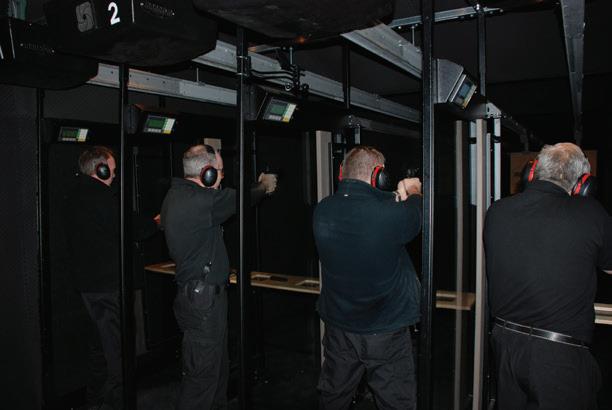
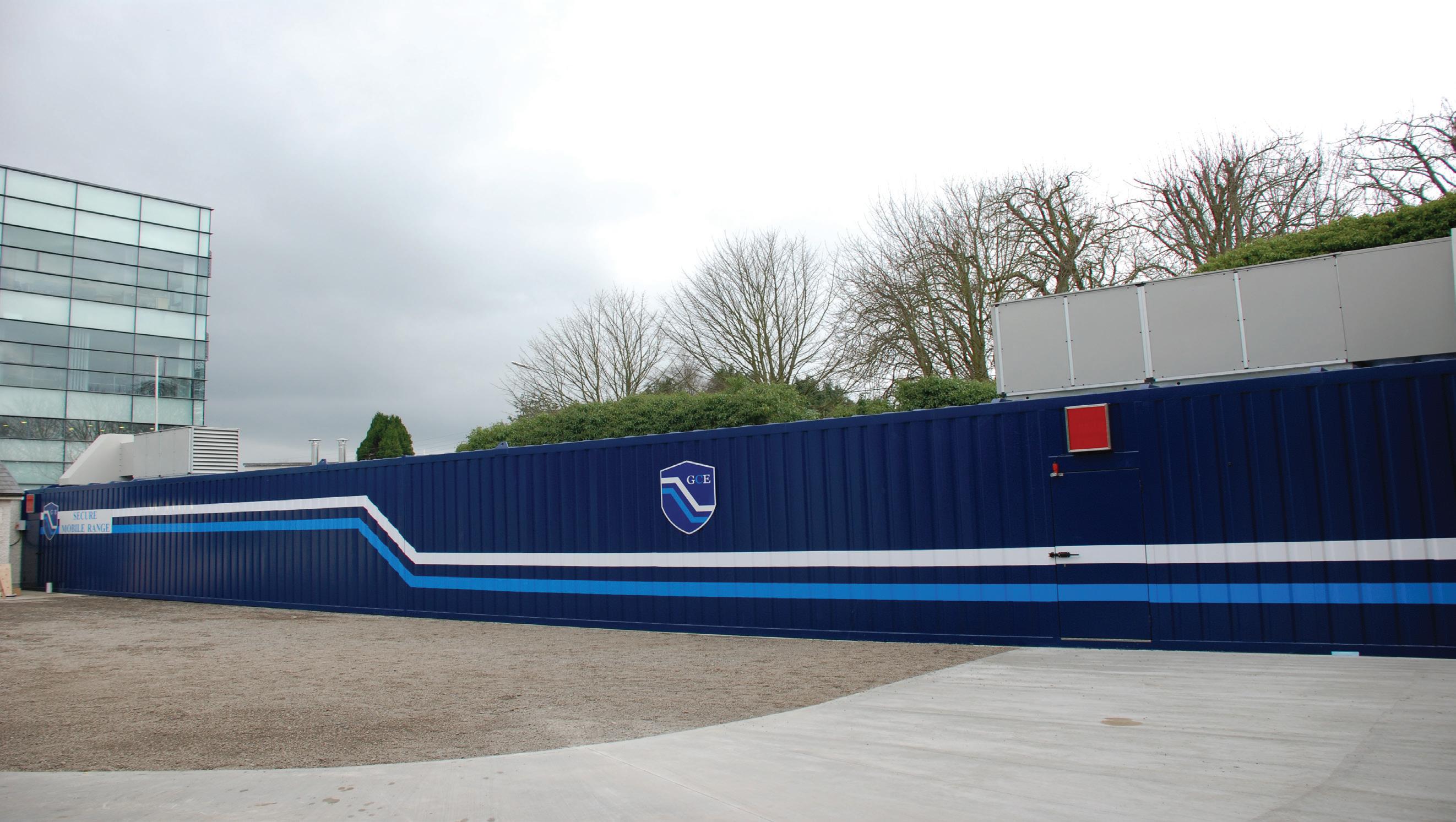
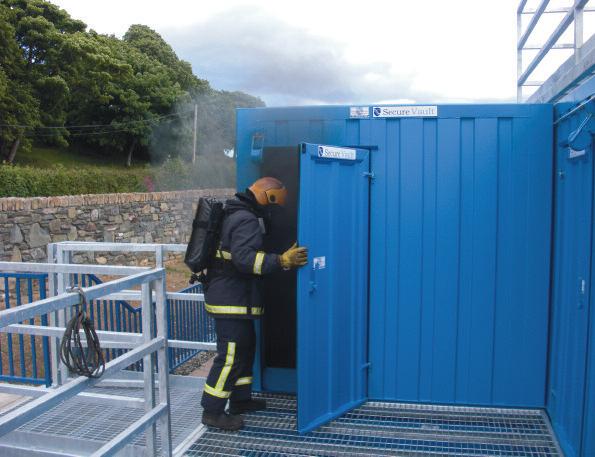
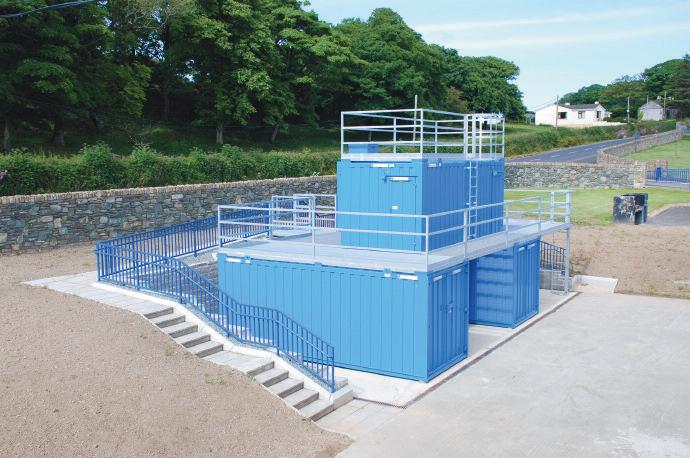




Shephard’s 13th Search and Rescue 2010 will provide the largest international gathering of SAR experts in Europe. The event will cover SAR and CSAR in the four environments – air, maritime, mountain and urban
OVER THE LAST decade, the rapid advance of technology has brought with it the convergence of search and rescue operations in many developed nations. Developing nations, too, are learning lessons quickly from those who already have the sophisticated tools for all-terrain SAR. It is becoming clear that the ‘search’ element of search and rescue is reducing through the impact of location and communications technology, and that there is more emphasis being placed on the means of rescue.
Helicopters with greater speed and endurance, and high-speed rescue craft, enhance the modern SAR armoury. In the offshore industry in particular, there have been significant developments with the introduction of platform based SAR fleets either acting independently or supporting

the nation’s SAR services. Tackling fires at sea is also developing, with specialised Maritime Incident Response Groups (MIRGs) being established. Both of these aspects will be included in SAR 2010.
The important area of ‘human factors’ will be tackled at SAR 2010, with prominent psychologists in the fields of survival and cold water shock, and the psychology of the journalist from an experienced SAR press man. The use of simulation for training is becoming more common, and the maritime world is beginning to mirror what has happened in aviation. There have been significant developments in FRC simulation, and for the offshore industry, developments in davit and free-fall lifeboat simulation –these will be introduced into SAR 2010.
In the military world, there have been improvements, too, in combat SAR with the increased use of unmanned vehicles for
surveillance and detection both on land and in the air. There have been development programmes introducing new aircraft and vessels within military regimes. SAR 2010 will look at developments in this field. We will also have presentations on real-life combat SAR missions. Combat SAR will be a separate conference, which will run alongside the SAR programme on day one. All this and more will be presented and exhibited at SAR 2010, where delegates will have the opportunity to discuss many important SAR issues. There will also be ample opportunity for delegates to explore the exhibition, and to see and experience new hardware and software first hand.
Search and Rescue 2010 will take place 21-22 April at Aberdeen Exhibition and Conference Centre. Registration for a free exhibition pass is now open. Book your delegate place now via shephard.co.uk/ events or e-mail bookings@shephard.co.uk.
facilities include: Live fire arm ranges – can be manufactured to any length and width in modular design or, as our demonstrator enclosure, in two sections of 17metres x 4.3metres that provides 4 target ranges of 25metres long, control room, programmable targets and lights, communication system, air speed and temperature control and ballistic containment to JSP403 standards. In addition, the entire enclosure is sound proofed to provide external decibel levels to approximately 65dba@1metre and also aids internal reverberation and less noise for instructors and trainees. GCE can also manufacture other weapons training systems for close combat training such as shoot houses for simulated and live fire arms, briefing rooms including software for scenario training. In addition we can supply standby or prime time power for remote or stand alone site conditions. We can work
with our clients to provide a cost effective, high quality and versatile solution for all training and accommodation requirements.
Fire and rescue training facilities – single and large modular steel enclosures for fire fighting scenario training with high temperature carbonaceous fires or gas powered fires, smoke filled rooms, sprinkler systems and with temperature monitoring of required areas. Projects to replicate building fires, boat/ship fires that includes various door accesses, vertical ladders, stairs, decks and walk-ways have been built and commissioned by GCE and we work closely with our clients to develop the final design that best meets their training requirement. We can also supply briefing room, lecture rooms, showering and changing facilities to mention a few possibilities.
General Cabins and Engineering Ltd has been manufacturing steel enclosures for over 25 years and has Lloyds Registry approval to manufacture to not only
standard ISO Shipping Containers but also specialised ISO CSC Plated Steel Enclosures and we use our design experience, knowledge, expertise and imagination to manufacture and supply turn key projects to suit your application.
FOR MORE INFORMATION
Please view our websites www.generalcabins.com and www.army-technology.com or call: 028 87747566.



Reflecting the need for today’s society to have effective counter measures against the ever present threats on the UK and international landscape – the counter terror area at IFSEC 2010, the world’s largest annual security event, offers visitors an opportunity to browse products, services and technologies to reduce the vulnerability of the national infrastructure.
IFSEC, returning from 10-13 May 2010 to the NEC Birmingham, provides security installers, manufacturers, distributors, IT integrators, end-users and consultants with a platform to keep up to date with the ever-changing developments of the global security industry.
The counter terror area will bring together international companies that will assist organisations on national resilience, counter terrorism, border security, surveillance and policing issues. With more than 50 industry leading companies showcasing their latest products and services, IFSEC 2010 is the place to see the latest technologies being launched to combat terrorism. Exhibitors include Axis Communications, IndigoVision, Sony and Synectic Systems Group.
James Blue, director of Fire & Security at UBM Live, organisers of IFSEC, said: “Although the recession has been filling the newswaves recently, terrorism and counter terror measures are always high up the agenda. It is something our visitors want to learn about and therefore we take it upon ourselves to offer a dedicated area of the exhibition in which they may address these issues. IFSEC remains the world’s largest annual security event for a reason – we work with the industry all year round to develop the programme and to ensure we are providing our visitors with everything they need.”
Products on display in the counter terror area at IFSEC include Indigovision’s complete end to end IP Security Management Systems, suitable for airports, city centres and other mass population destinations which create an efficient operation, enhance public safety and enable a timely emergency response. Access Management Solutions has developed its IFSEC 2005 Innovation of the Year product to such an extent they’ll be demonstrating the new Cyber Lock –an intelligent locking system. The locks can operate on time restrictions and one key can be programmed to open more than 10,000 separate locks – controlling which entry points staff have access to. The system also provides an auditable trail of who has been where and at what
time. Cyber Lock also removes the risk of lock picking and illicit copying of keys.
Whether you look after the security needs of an airport, hotel grounds, ports, or any location which has a perimeter fencing, the ability to successfully track a person of interest is paramount to establish their current location – and where they’ve been.
A new system developed by Video IQ allows users to successfully track individuals and vehicles in a live search. Cameras are installed which create a virtual tripwire set to your own specifications. Once that alarm is triggered, an alert is sent to the control room to assess the threat whilst the cameras begin to track the threats movements.
IFSEC 2010 will also see a range of companies demonstrating all elements of physical security, biometrics, mobile CCTV, protection clothing and much more. Visit www.ifsec.co.uk/planyourvisit to discover which companies you need to meet.
The Intelligent Integrated Zone, sponsored by ISM, will demonstrate how a successful integrated security system can work for you. A series of pods in this feature area will showcase the latest innovations and technology covering: Access Control, CCTV, Alarms, Radio Systems, and IP & Network Solutions. This is a superb opportunity for you to bring colleagues responsible for facilities management, health and safety, and IT to discover how an integrated security system can counter terror.
Within the exhibition there will be a number of international pavilions in which visitors may seek the latest products and services from all over the globe.
Supported by the US Commercial Service, IFSEC 2010 will feature its first US Pavilion. Based in hall 4, this pavilion will house a plethora of innovative manufacturers to allow visitors to source US security products and services in one concentrated location. Commercial staff from the US Embassy in London will also be on hand to answer any queries.
In addition to the US, there will be a raft of other pavilions for visitors to take advantage of including those representing Belgium (new for 2010), China, France, Italy, Korea and Taiwan. Furthermore, IFSEC 2010 will feature its first Spain Pavilion with the Secartys association, a voluntary organisation which represents more than 1,200 industries in electronics, information technology, telecommunications and solar energy across Spain, also introducing new exhibitors from Spain in the different product areas within the exhibition.
Following the resounding success that was last year’s IFSEC Conference, this year’s
conference promises to be another three days of carefully researched high-level content delivered by some of the most senior players in the industry. Day one of the conference is entitled ‘Countering Terror and Protecting the Nation’ and promises to deliver unparalleled educational content for delegates.
TOPICS WILL INCLUDE:
• Countering the Changing Face of International Terrorism
• Challenging increasing diversity of the terrorist threat
• Reducing vulnerability of the UK’s critical national infrastructure
• Collaborating with businesses, the police and community to increase national security
• Preparing for Olympics 2012
The conference takes place from 10-12 May at the NEC in Birmingham as part of the IFSEC exhibition, and conference places can be purchased via the IFSEC website. Finally, the IFSEC Security Industry Awards, organised in association with the British Security Industry Association (BSIA), returns to acknowledge the people, products and technological advancements that have played a big part in the security industry over the past year. Awards will be handed out to the following categories which have evolved to reflect the changing landscape of the international security industry:
PRODUCT CATEGORIES
(OPEN EXCLUSIVELY TO IFSEC 2010 EXHIBITORS)
• CCTV Camera Equipment of the Year
• CCTV System of the Year
• Intruder Alarm or Exterior Deterrent Product of the Year
• Physical Security Product of the Year
• Access Control Product of the Year (including biometrics)
• Communication Product of the Year
• Integrated Security Product of the Year
NON-PRODUCT CATEGORIES (OPEN TO BOTH EXHIBITORS AND NON-EXHIBITORS)
• Security Project or Security Installation of the Year
• Guarding Service Delivery to Customer
• Best Policing Partnership of the Year IFSEC 2010 will be co-located with Safety & Health Expo and The Facilities Show at the NEC Birmingham from 10-13 May 2010.
For more information on the event and to register for free entry, please visit www.ifsec.co.uk. Companies interested in exhibiting at IFSEC 2010 should contact Charlie Cracknell on +44 (0)20 7921 8069 or at charlie.cracknell@ubm.com.
Further details on IFSEC 2010 will be announced in the coming weeks. Please keep visiting the website, follow us on twitter @IFSEC and join our LinkedIn group for the latest information.
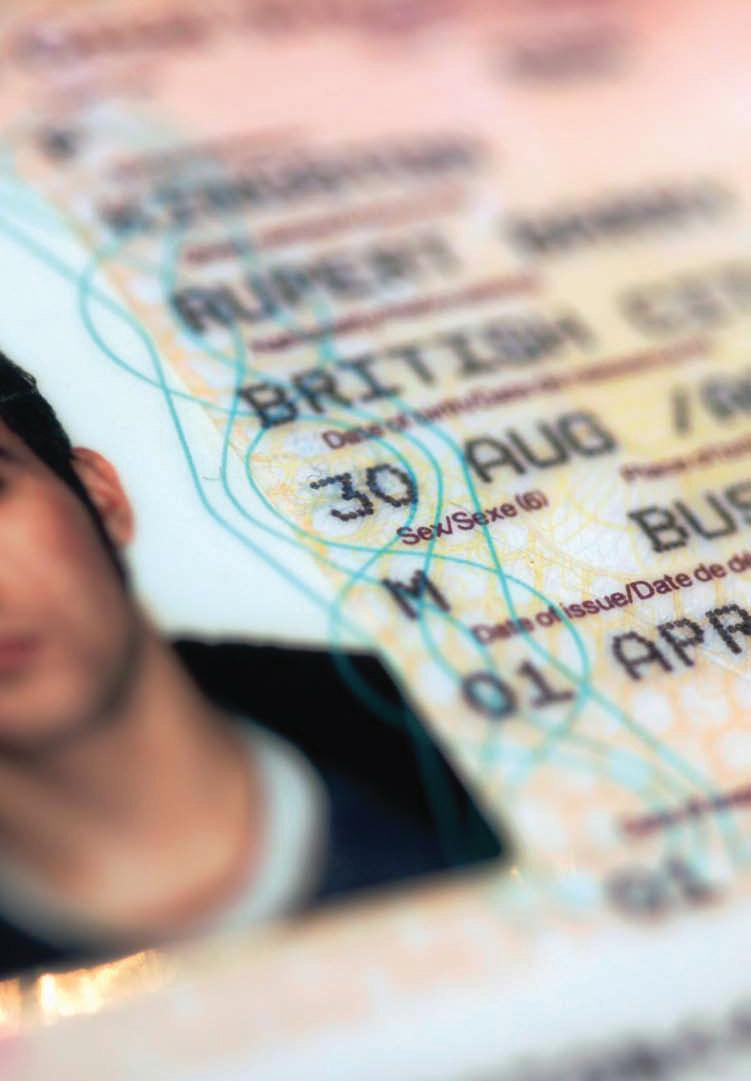


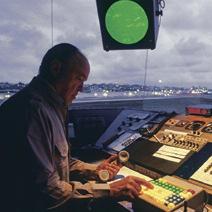
Security is not just something we do at ARINC – it’s part of who we are
For years, we’ve helped develop and implement solutions for commer cial, gover nment, and defense industries to help strengthen security around the globe
Whether it’s sending and receiving infor mation securely, providing mobile wireless networks, suppor ting systems that guar d nuclear power plants, or developing the latest biometric tools, ARINC delivers.
As a capabilities-driven company with communications, engineering, and integration as our core competencies – you can tr ust us to handle your greatest security challenges

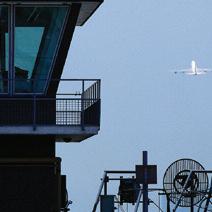


ATIONAL LAW enforcement agencies already have their work cut out preventing terrorist activity within their own borders. No wonder more and more governments are demanding that all available technology is employed to prevent importing undesirables from other countries – with suspected terrorists and those involved in related activities such as organised crime and drug trafficking top of the list. And with aircraft passenger numbers alone forecast to reach 2.28 billion in 2010, reliable systems for secure and streamlined processing are critical.
Just such a system is available from master systems integrator ARINC, which has been helping to develop and implement security solutions for commercial, government, and defence industries for many years. Its versatile Electronic Borders immigration data service portfolio provides a comprehensive passenger-screening solution that meets the needs of border control agencies, airlines and ports around the world.
ELECTRONIC BORDERS WITH IMPECCABLE CREDENTIALS
The low-cost Electronic Borders service is comprised of three elements – Advance Passenger Information System (APIS), Interactive APIS (iAPIS) and Passenger Name Record (PNR) processing.
Its credentials were established when components from the Electronic Borders portfolio were used in a pilot project carried out by the UK government that triggered over 20,000 alerts and more than 3,000 arrests.
The common-language application overcomes multiple international data requirements by translating messages from disparate agencies and systems, providing a unique solution that meets international immigration demands with a single interface.
APIS is designed to capture biographic data and travel details of all passengers and crew members on commercial and charter airlines and cruise ships prior to their departure. Using International Civil Aviation Organisation (ICAO)-defined machine-readable zones (MRZs) on passports, the information is stored and processed
electronically. The data is then translated into the relevant border control agency formats to be checked in the destination country against computer databases and watch lists and used for immigration processing, security and customs purposes.
Many governments, including the USA, Spain, China, Syria, Kenya and Morocco, now insist on API before they will allow travellers to enter their country. Some governments require API only from airlines flying particular routes that are deemed to be high risk. Carriers failing to provide such information can expect a hefty perpassenger fine for each transgression.
While API performs an important security function, making it easier to process lowrisk travellers and harder for unauthorised or suspect passengers to slip through the net, the information is only forwarded to the destination country after take-off. Such post-departure risk assessment leaves an aircraft open to a costly and disruptive recall or diversion if checks against watch lists reveal a suspect passenger.
Interactive iAPIS solves this dilemma by allowing airline staff to conduct a real-time pre-boarding check against immigration databases as well as circulating the information to relevant agencies –police forces, Customs officers, Interpol and intelligence services. No boarding pass will be issued to a passenger until specific authorisation is received.
The information for PNRs is drawn from the airline reservation system, providing details of how and by whom tickets are booked and paid for, as well as relevant addresses and telephone numbers. Together, PNR and API maximise security by giving border control agencies, law enforcement organisations and intelligence services a valuable headstart on checking names against watch lists, highlighting suspect travel patterns, assessing potential risks and locating suspects.
While data protection issues are a real concern for passengers, transmission through ARINC’s fully-managed AviNet global communications and message switching network gives the end-to-
end security that is not feasible with a public internet connection. This allows carriers to meet their legal obligations while protecting passenger privacy.
Thereafter the situation is less clearcut. While there are international guidelines on how the data may be used by law enforcement agencies, and the European Union has strict regulations covering the use and storage of data, some countries undoubtedly interpret the guidelines more leniently.
Among the governments using ARINC’s immigration data services are Bermuda, South Korea, the USA, the UK, CARICOM, Spain, Hong Kong and a number of European and South American countries.
The service can be tailored and scaled to meet specific customer requirements while simultaneously complying with industry standards and guidelines defined by international trade organisations and governments. Airlines can select the service that best suits them – Type A Host to Host, Type A Host to Terminal, Type B and the manual method. ARINC can also provide a network protocol conversion service or any customised data format required. This flexibility aids project implementation by taking into account the requirements and budgets of individual airlines.
In today’s unstable world, information exchange, risk assessment, cooperation between governments and carriers and global harmonization of standards are key factors in maintaining effective vigilance against terrorist threats. Electronic Borders is just one of ARINC’s cutting edge technology solutions designed to enhance security throughout the entire travel process.
FOR MORE INFORMATION
Web: www.arinc.com/secure E-mail: emea@arinc.com
Due to the nature of their work, high profile government and industrial figures face a number of threats in their everyday lives. To ensure their safety, a Close Protection Officer is often employed to provide protection. Dave Allison, the British Security Industry Association’s Close Protection Section Chairman, examines the role of the CPO in protecting these high profile figures

THE MAIN DUTY of a Close Protection Officer (CPO) centres on providing the highest level of protection for their client and in some cases that individual’s family and assets. They have a duty to keep that person comfortable and safe in carrying out their role and responsibilities and ensure that the needs of their client are met. This can sometimes go beyond the normal responsibilities of physical protection to the protection of the client’s reputation. Depending on their relationship with the client a CPO should have the experience and integrity to advise on situations that may be detrimental to the client.
For high profile figures such as those high up in government and industry, security is of particular importance. Being in the public eye and sometimes at the centre of conflicting decisions can mean that attention is drawn to them, which may sometimes put them at risk. Companies operating the BSI 8507 standard for close protection can provide trained and licensed security professionals to ensure that the safety of such high profile individuals is maintained. With the specialist skills that are required of CPOs, clients can be assured that their safety is priority and will be maintained, leaving them to concentrate on their own roles in running government departments or businesses. CPOs must be able to react quickly on their feet and cope under pressure in a manner that does not bring themselves or their client into disrepute or harm. They should be competent in first aid and life support systems, proficient in conflict management and unarmed combat and should have the basics in anti-and countersurveillance techniques. They might be able to drive to an advanced level, and if working in high-risk zones, should have undergone firearms training. Even if the CPO is not able to carry weapons due to the local laws, having the ability to establish whether the local protection team can protect them and their client in a time of need is paramount. Language skills are a desirable quality of any CPO that is working overseas as having a basic understanding of the local dialect can sometimes make the difference between defusing a situation and it escalating out of control.
In order to successfully provide protection, comprehensive planning is needed and a CPO will undertake meticulous research in order to understand the threats and risks that face their client. Wherever possible a CPO will prepare an itinerary and will ensure that the routes, venues and hotels that their client may be visiting, are thoroughly checked to safeguard them against compromise. This also enables the CPO to liaise with the venue management, identify alternative entrances and exits and fully understand the environment. One BSIA member had a client who
needed to hold a series of very confidential meetings over three days in a time of intense pressure during a hostile takeover bid. The BSIA member worked with the client’s team in selecting the venue, hotel and travel arrangements and prior to the arrival of the client, all meeting and hotel rooms were swept for bugs and secured. The participants were picked up and brought in along routes that allowed antisurveillance teams to ensure they were not followed, all access to meeting rooms were controlled on a 24-hour basis, and the hotel and grounds were monitored.
In a separate case, a UK based businessman had to attend court in Lagos, Nigeria, to give evidence in a contentious court case. A BSIA member was selected to provide a close protection service. The BSIA member provided a close protection operator to escort the businessman on his flight from London and then in Lagos they met up with the small team who had explored and examined the hotel, the courthouse and alternative routes to ensure the businessman’s safety. There were a couple of potential incidents inside the courthouse, but early intervention by members of the team and the use of an alternative exit, ensured that the witness was safe.
Another example include a BSIA member’s client that was closing a production plant in a European country and wanted to ensure that the CEO was safe while he was there to address the workforce. The BSIA member successfully provided a low profile personal protection officer and a covert team mingling with the workforce to identify any hostile elements and respond if required.
A well-known celebrity was due to
attend a South American country to film a programme about extreme poverty for a charity. A BSIA member was picked to ensure that the celebrity was safe while on this trip. The BSIA member had to conduct the threat assessment and devise a security plan, which enabled to programme to be filmed while ensuring the safety of the celebrity. This was achieved with the use of two British advisers and a local security team. The BSIA member’s team was able to advise the camera crew to help them maintain a low profile and avoid attracting undue attention.
When sourcing close protection services, ensuring that the CPO is licensed and working to appropriate standards is paramount. All CPOs must be licensed by the Security Industry Authority (SIA) for which they must prove their identity and right to work, demonstrate that they have successfully completed an approved qualification, be qualified in first aid and pass a criminal record check. In addition, every close protection company should be compliant with the British Standard 8507, which ensures that the credentials of a CPO are closely examined and that they have the skills and training to carry out their role at the required level. With their high profiles, government and industrial figures need to know they are in safe hands and these checks help to ensure that. Thanks to the strict licensing procedures and regulation of the industry, close protection services have grown in use as well as reputation. The UK’s close protection sector has
an excellent reputation around the world and has been established as the place where the protection of high profile individuals can be confidently assured. It is therefore no surprise that CPOs are increasingly becoming the choice of more and more high profile figures in government and industry to safeguard them in their line of work.
The BSIA Close Protection Section is becoming increasingly important and contributes to the UK economy in two ways. Firstly through the increasing demand for highly trained personnel to protect people and valuable assets and secondly it exerts a valuable indirect influence by establishing the UK as a place where the protection of high profile individuals can be confidently assured.
All BSIA Close Protection Section members are required to meet the ISO9001:2008 standard. The Security Industry Authority (SIA) also introduced licensing for close protection, which provides a basic level of training and requires a Criminal Records Bureau check. As well as the identity and criminality checks, officers must undertake 150 hours of knowledge and practical skills training, leading to a Level 3 qualification in close protection and a recognised first aid certificate.
The BSIA is the professional trade association of the UK security industry. Its members produce over 70 per cent of the country’s security products and services to strict quality standards. For further information, visit www. bsia.co.uk. The BSIA operates a local rate helpline on 0845 389 3889.
COUNTER-TERRORISM applications have accelerated in the post 9/11 world with Ethernet technology being the backbone of data transmission for surveillance systems, biometric technologies and secure access points at entry borders including airports, shipping ports and highway checkpoints across the world.
GarrettCom is an industry leader in offthe-shelf industrial networking products for specialty and stressed applications. GarrettCom manufactures networking switches, routers and converters for industries such as, military, automation, power utility, telecommunications, traffic control and video surveillance. Our industrial Ethernet product range has gained agency approvals and standards compliance across a multitude of industries; we offer superior quality with value
pricing allowing for applications with an outstanding level of reliability.
GarrettCom’s feature rich products adopt a ‘customisable’ modular design allowing for vast power input options, port counts and fibre types, all in a rugged case – industrial Ethernet suitable for any level of harsh environment.
GarrettCom fully utilises enabling technologies such as Power over Ethernet (PoE), this has emerged to allow devices such as networked cameras and secure access points to receive power over the same cabling that carries the network data. These have brought video surveillance and secure entry to areas where it might not have otherwise been practical or economically feasible; it simplifies the installation and keeps the cabling secure. GarrettCom has a long, established history
in the Industrial Ethernet market. Providing solutions for industrial applications since 1989 and gaining a reputation for ‘Industrial Networking at Its Best’.
FOR MORE INFORMATION
Tel: +44 (0) 870 3825 777
Fax: +44 (0) 870 3825 098
E-mail: sales@garrettcom.co.uk
Web: www.garrettcom.co.uk


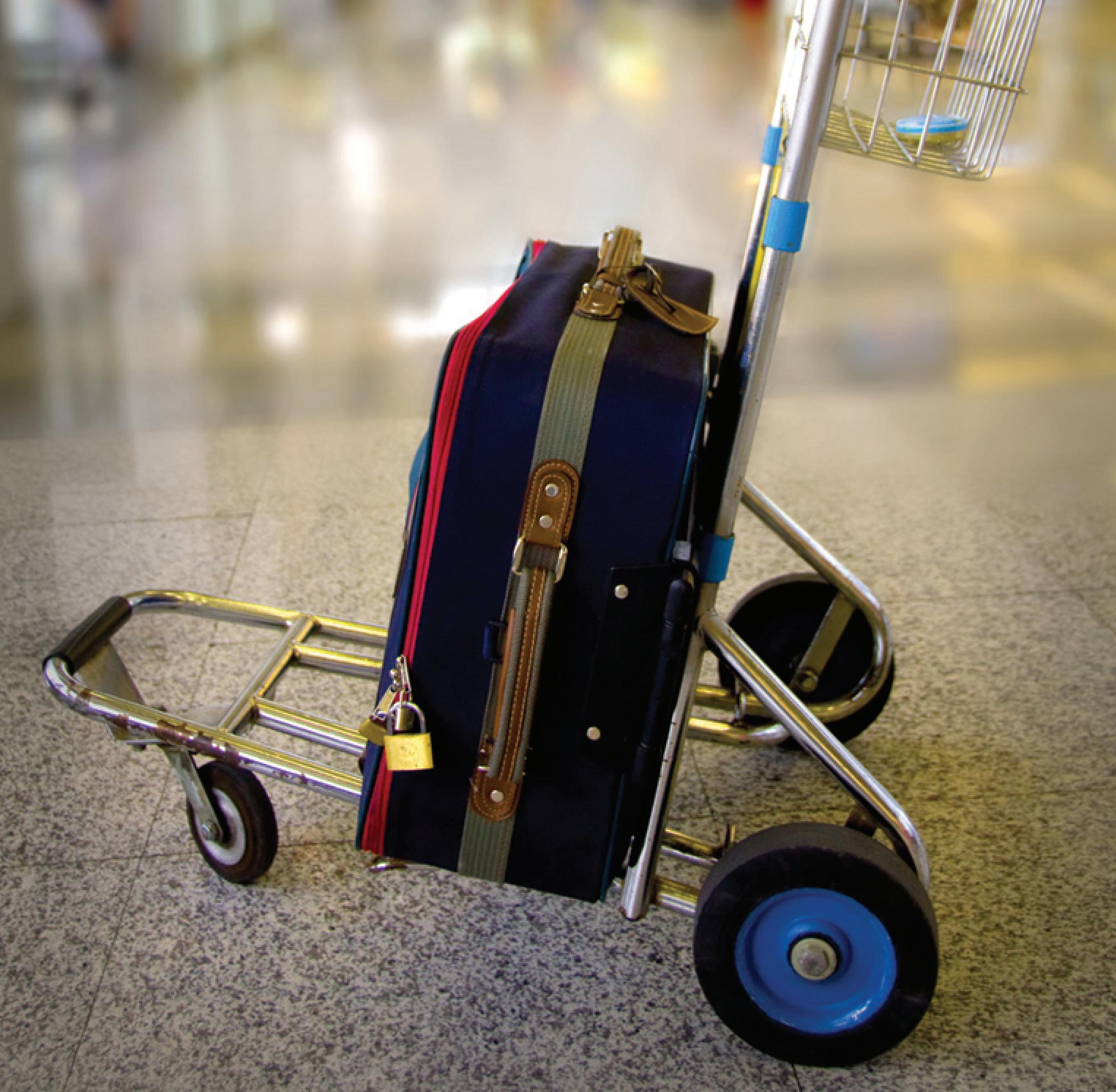
Blast and Fragment containment for blowing blinds ‘en situ’ when collateral damage is unacceptable.
I can remember a number of occasions in the UK in 22 Regt having to do that, I had plenty of sand bags but had difficulty getting hold of sand, however the fire brigade was always there or on call and they’ve got plenty of water. I would see a box of twenty mitigation bags in the back of an EOD vehicle as a great standby asset.
• Conventional demolitions and Logistic disposal (normally lots of sand bag filling required)
• Conventional demolitions and Logistic disposal (normally lots of sand bag filling required)
• Absorption of forensic evidence when blowing unsafe detonators or pipe bombs
• Back stop when using kinetic disruptors such as 0.50 De-armor.
• IED’s (improvised explosive devices, left luggage etc) forming an effective use for protecting the high order.
It may also have some applications in the CBRN field, such as emergency containment of a Chem/Bio device, maybe using the CASCAD solution instead of water to activate the mitigation bags which would contain the effects of any burster charge and help neutralize the effects of an agent. They can also be sprayed with “Tropical Bleach” and used for dirty bombs. The bags can be used for ballistic protection also and this can be seen on our website: www.blastprotection-protek.com
Contact details:
Springfield House Water
Lane Wilmslow Cheshire Sk9 5BG
United Kingdom
Tel:0044 (0)5602 097 620
Fax:0044 (0)870 3007173
Mobile: 0044 (0)7971 017689
www.blastprotection-protek.com
